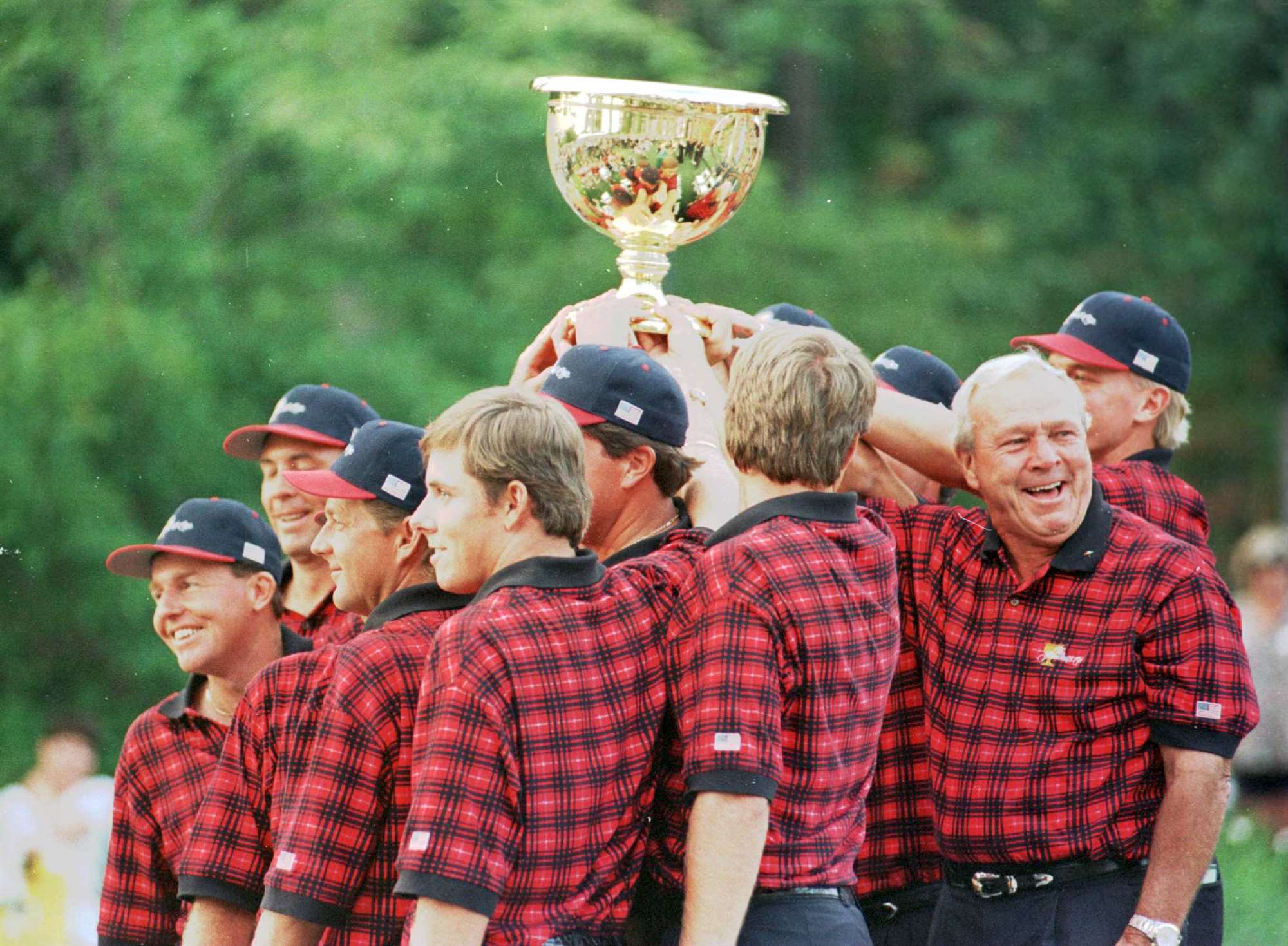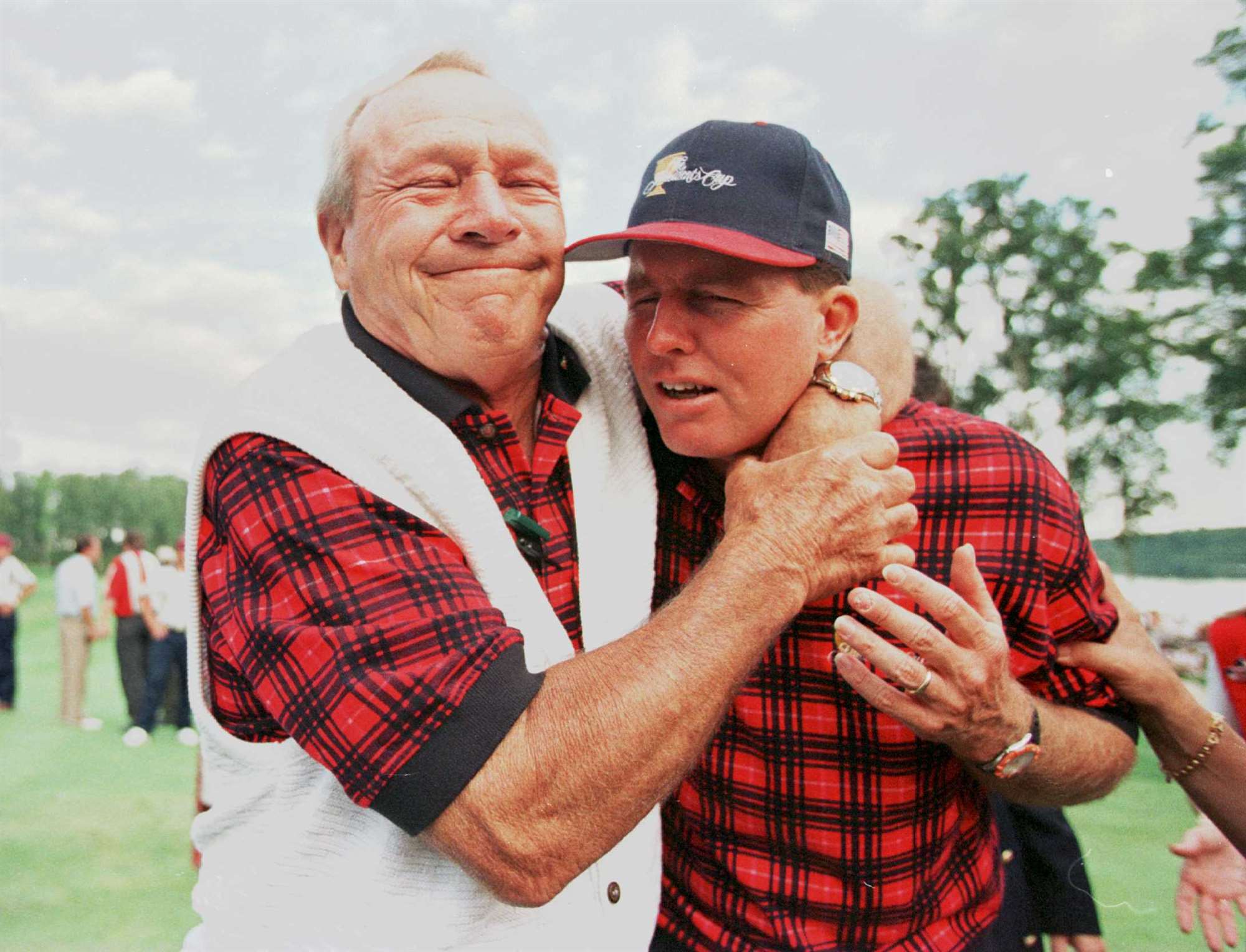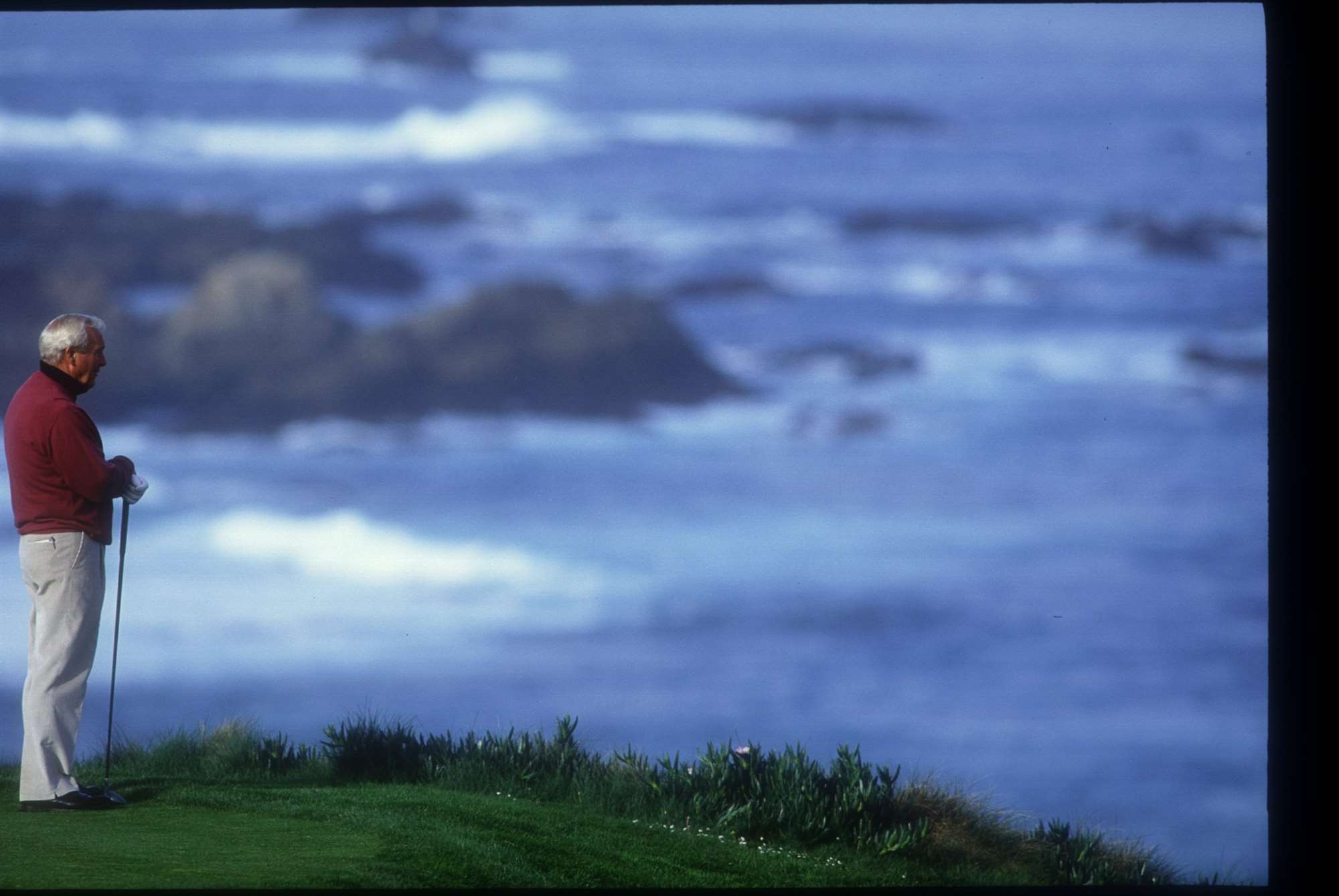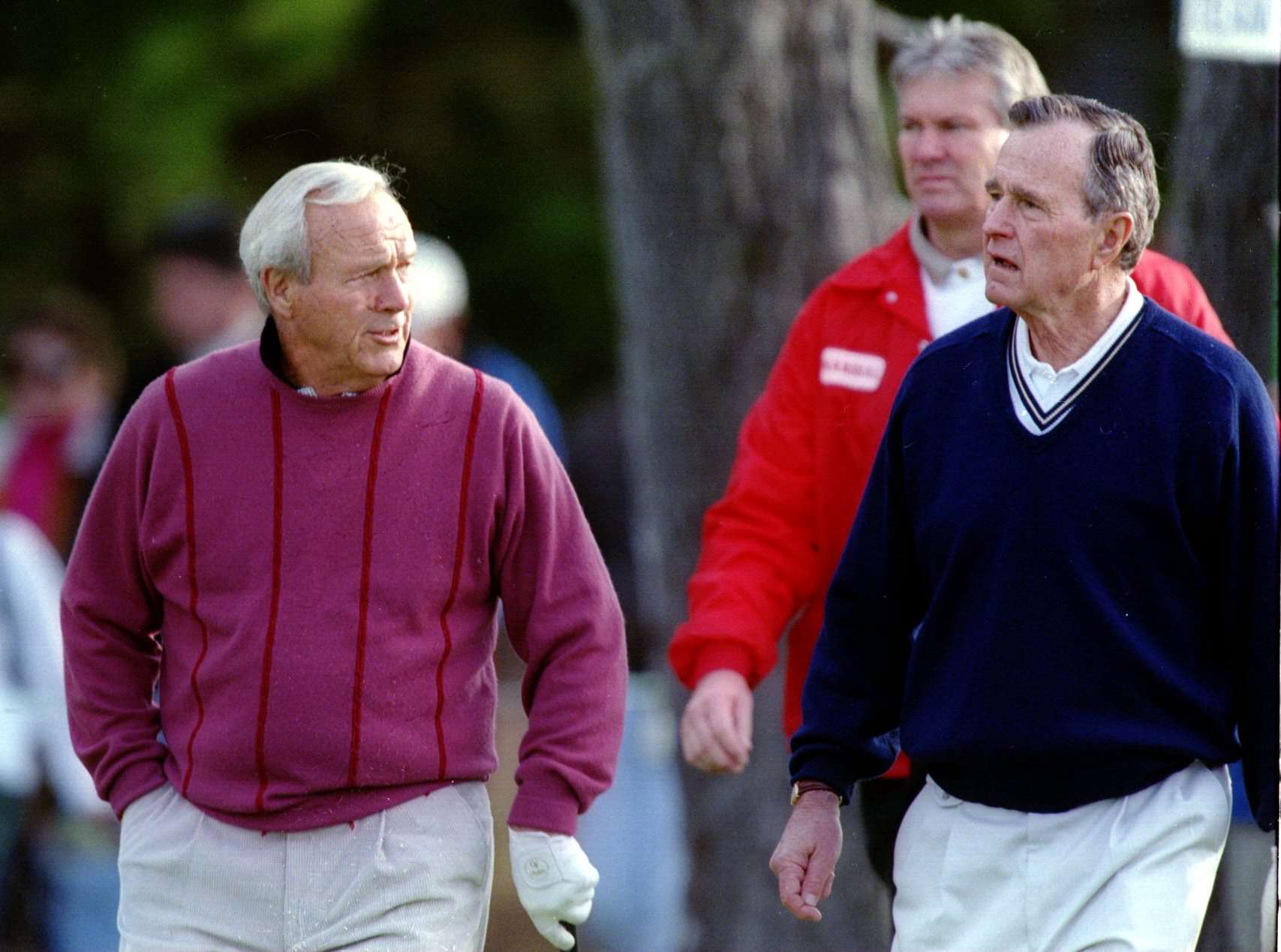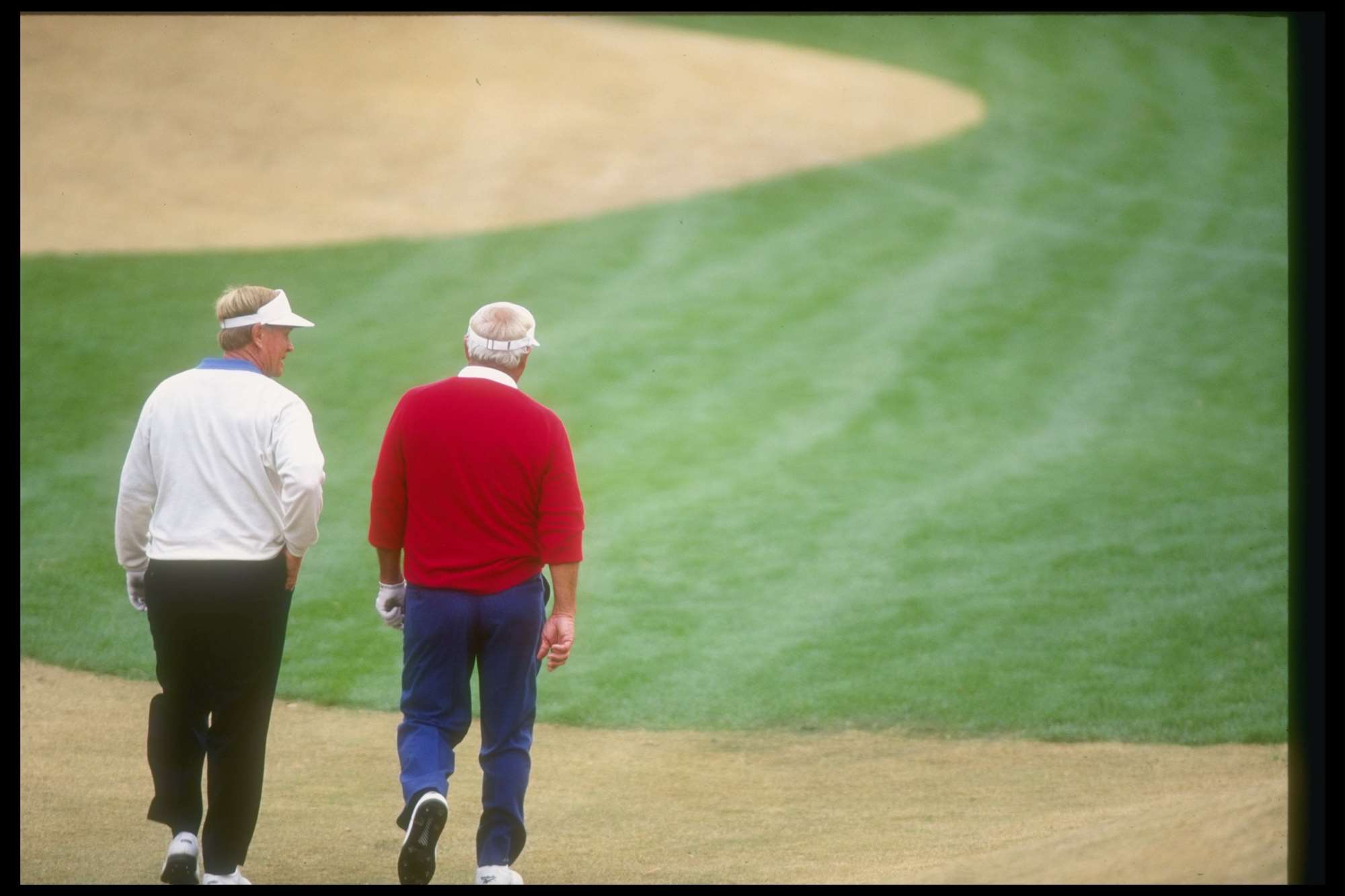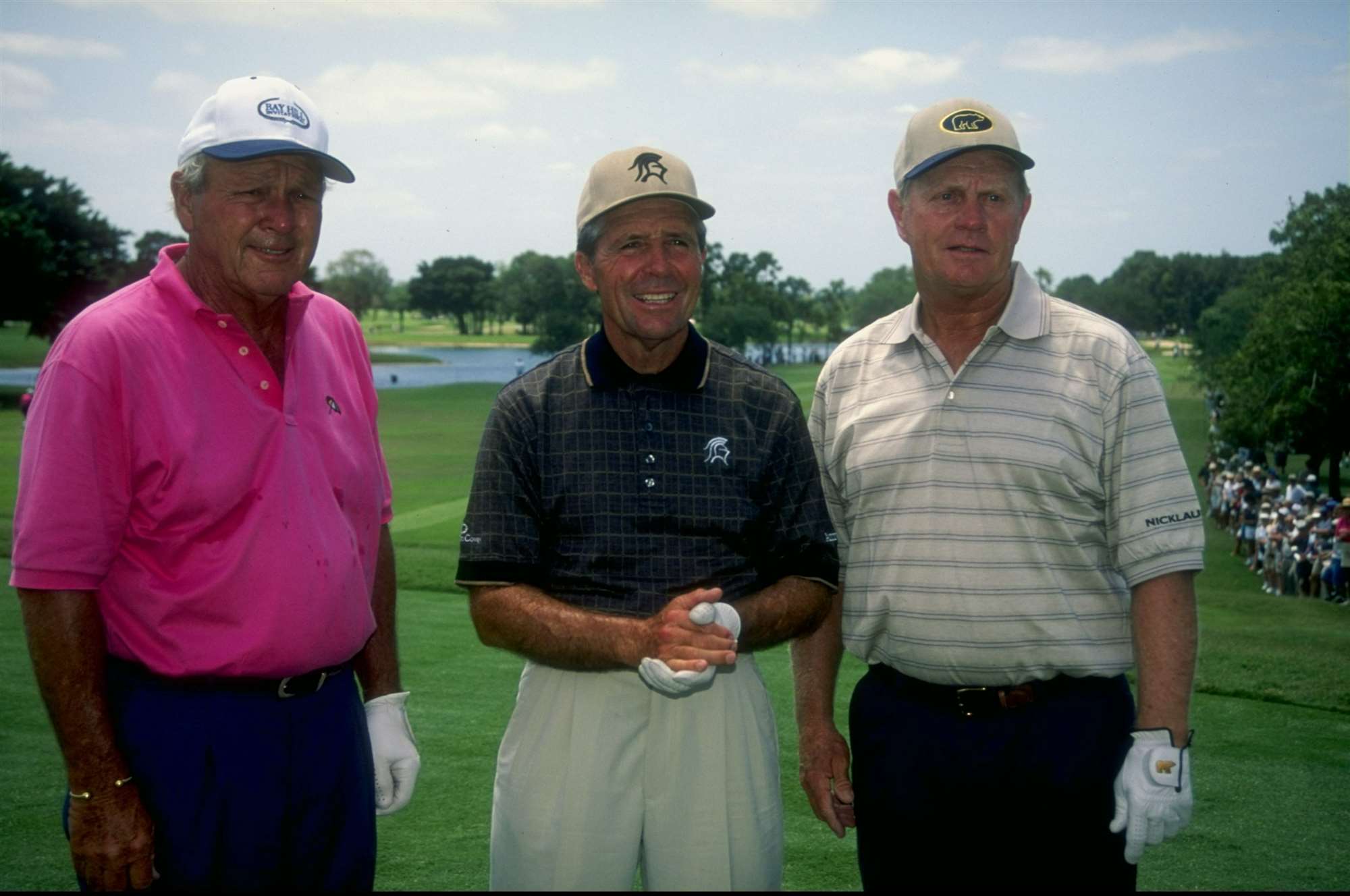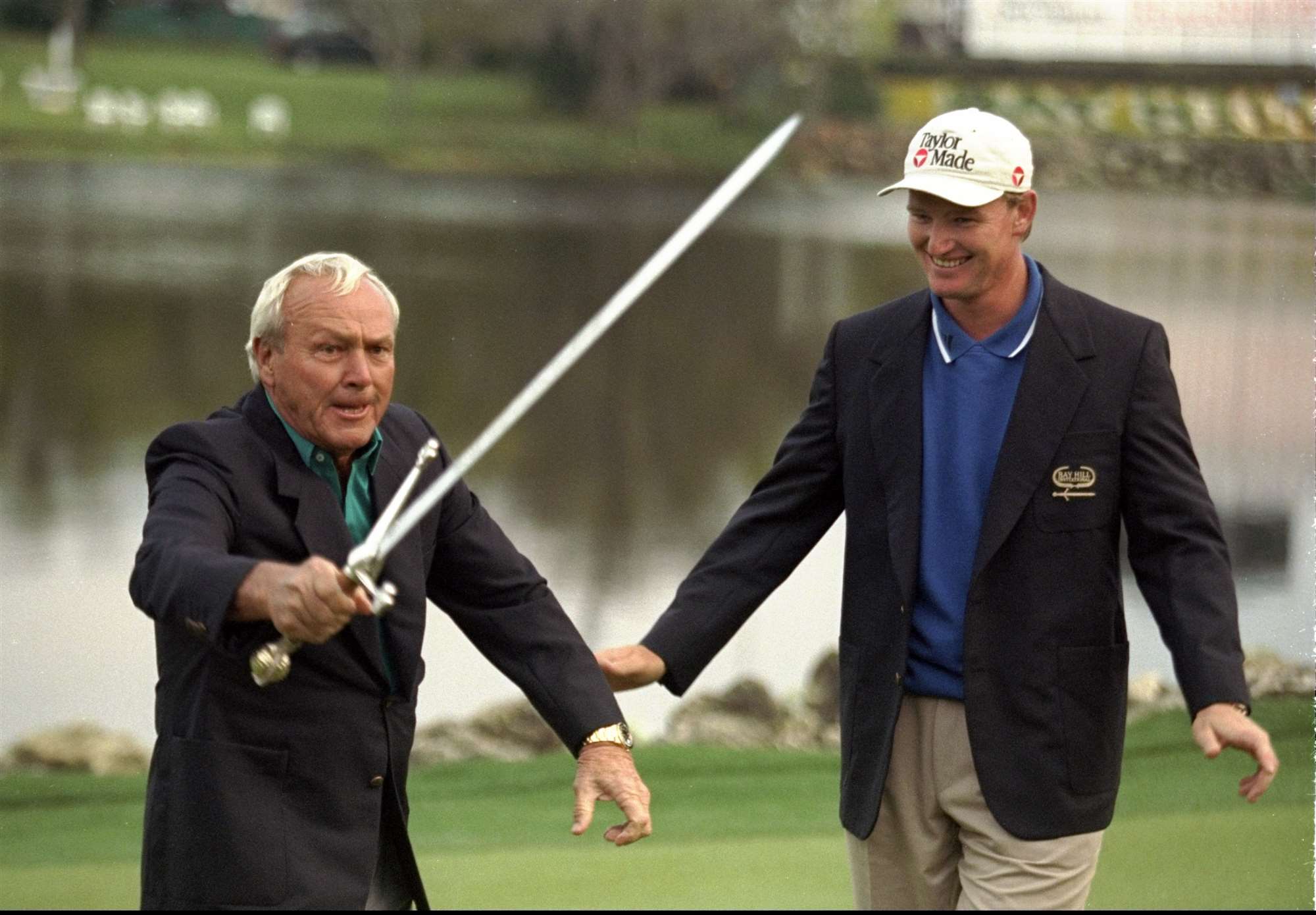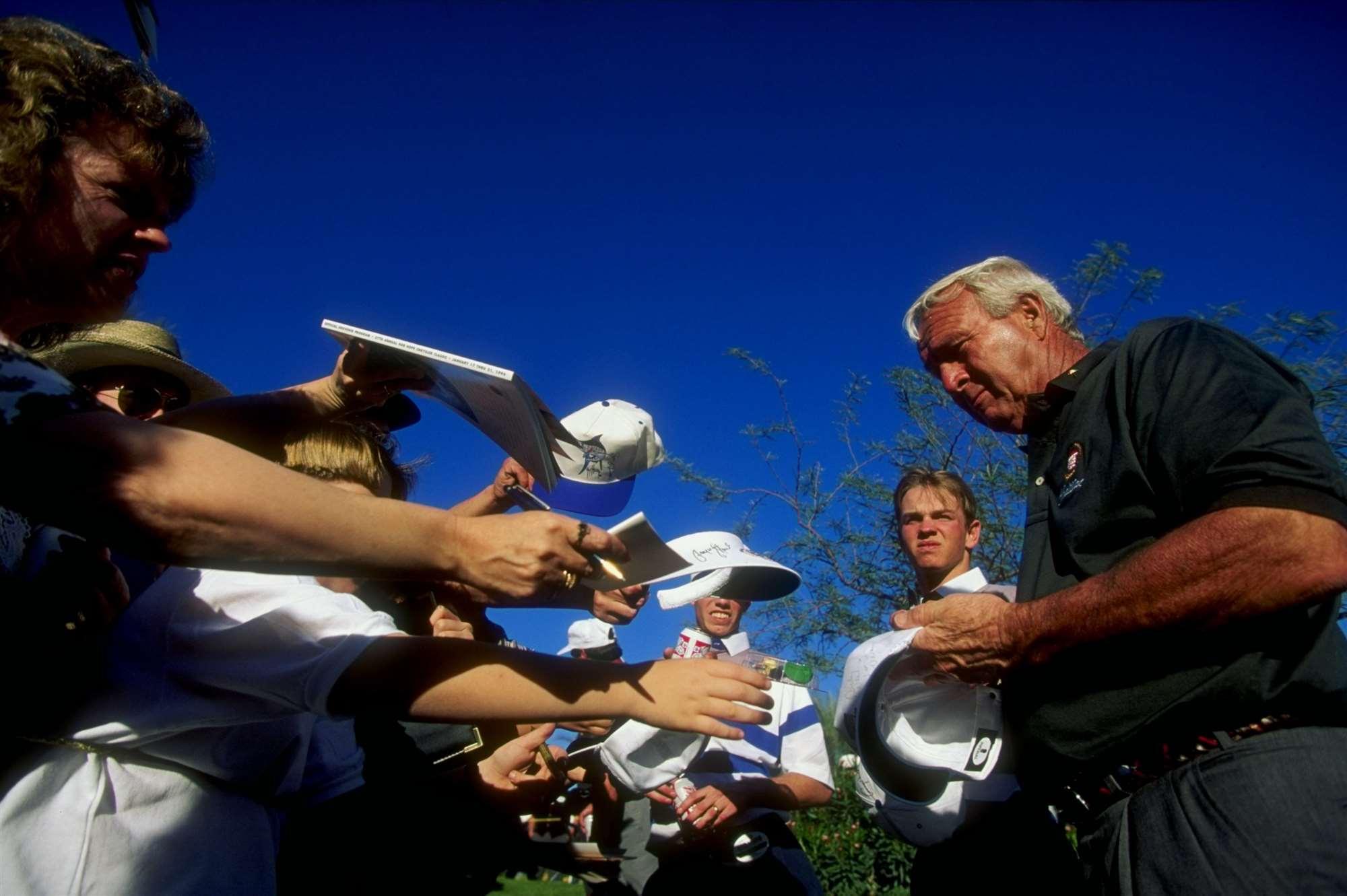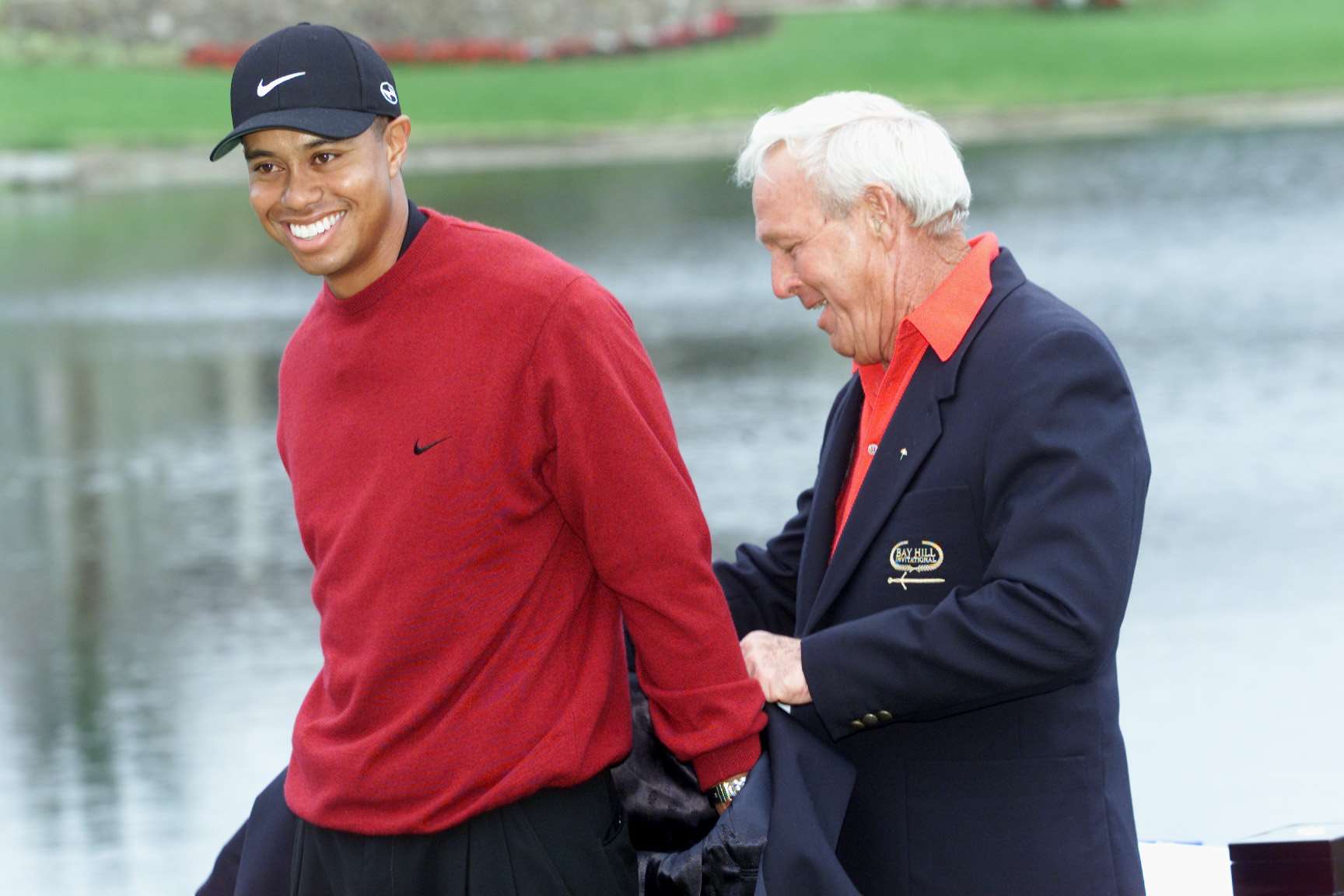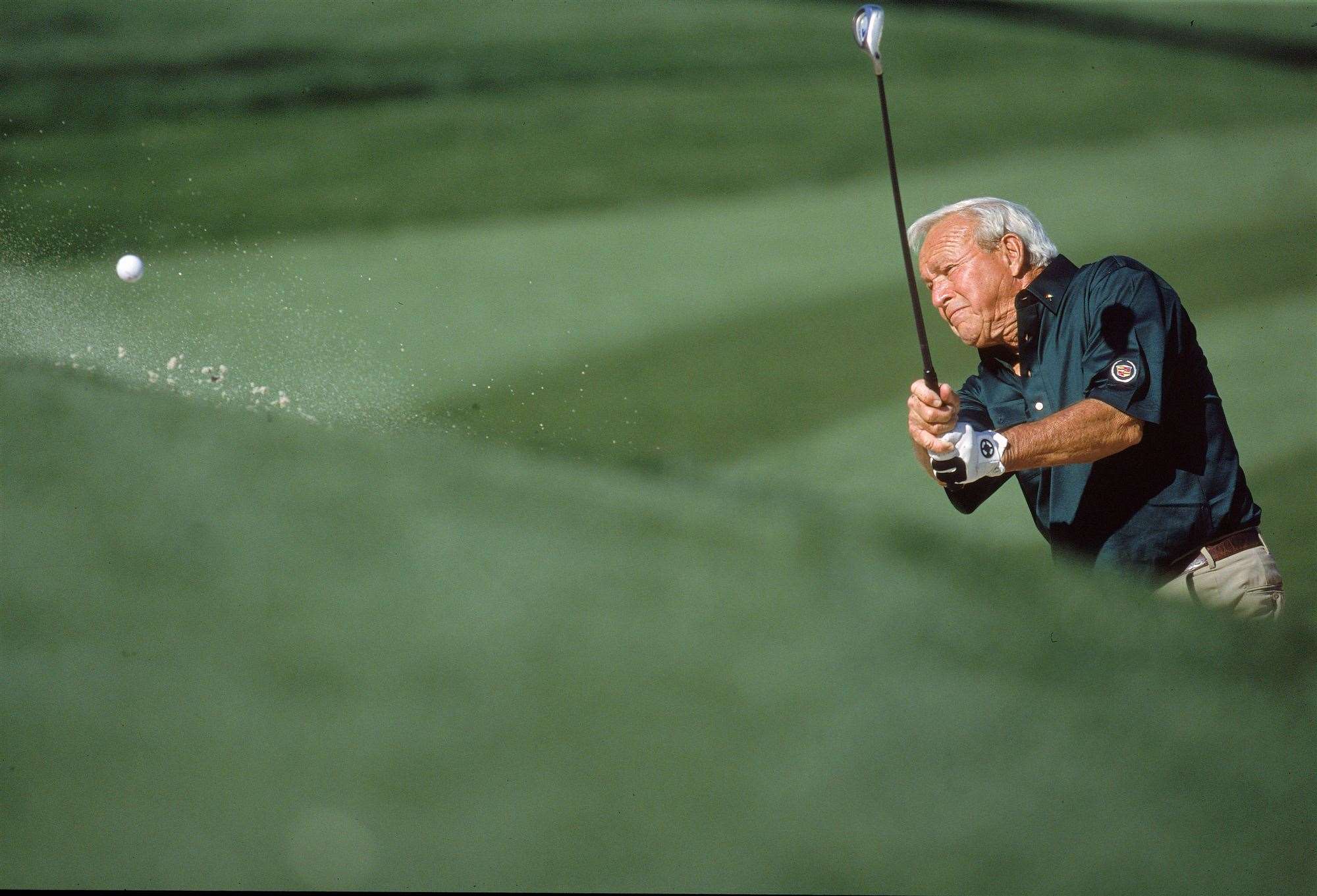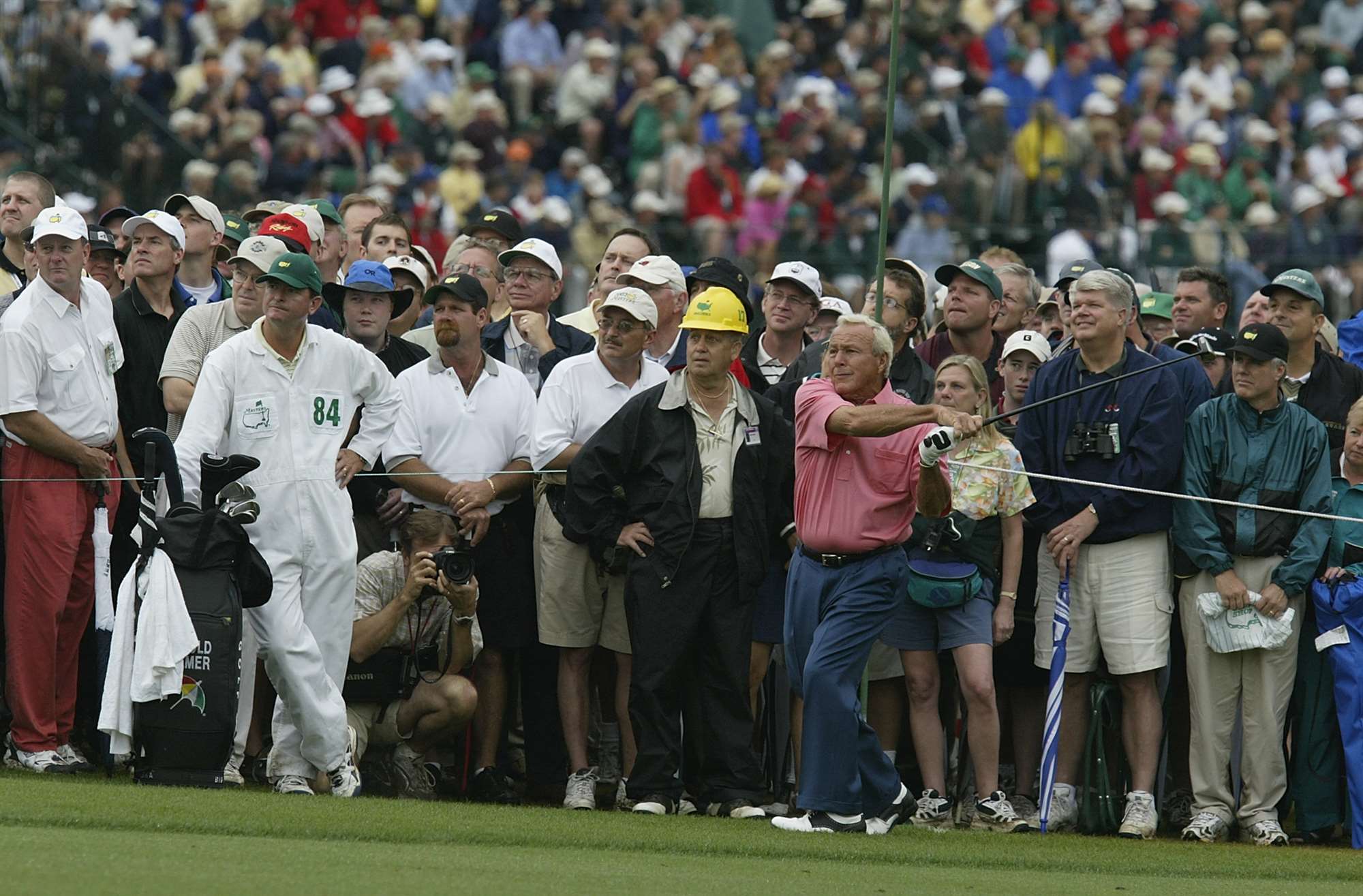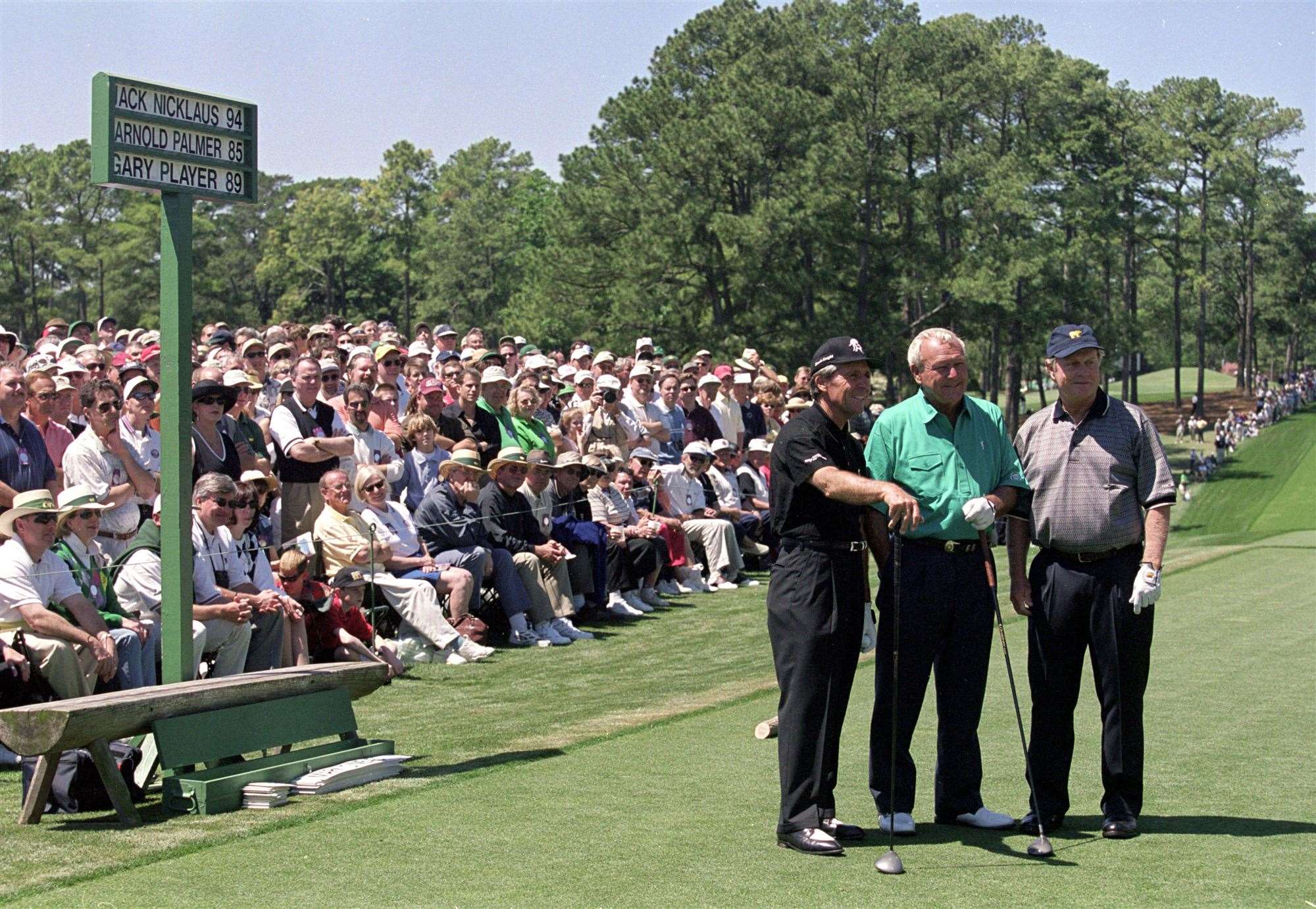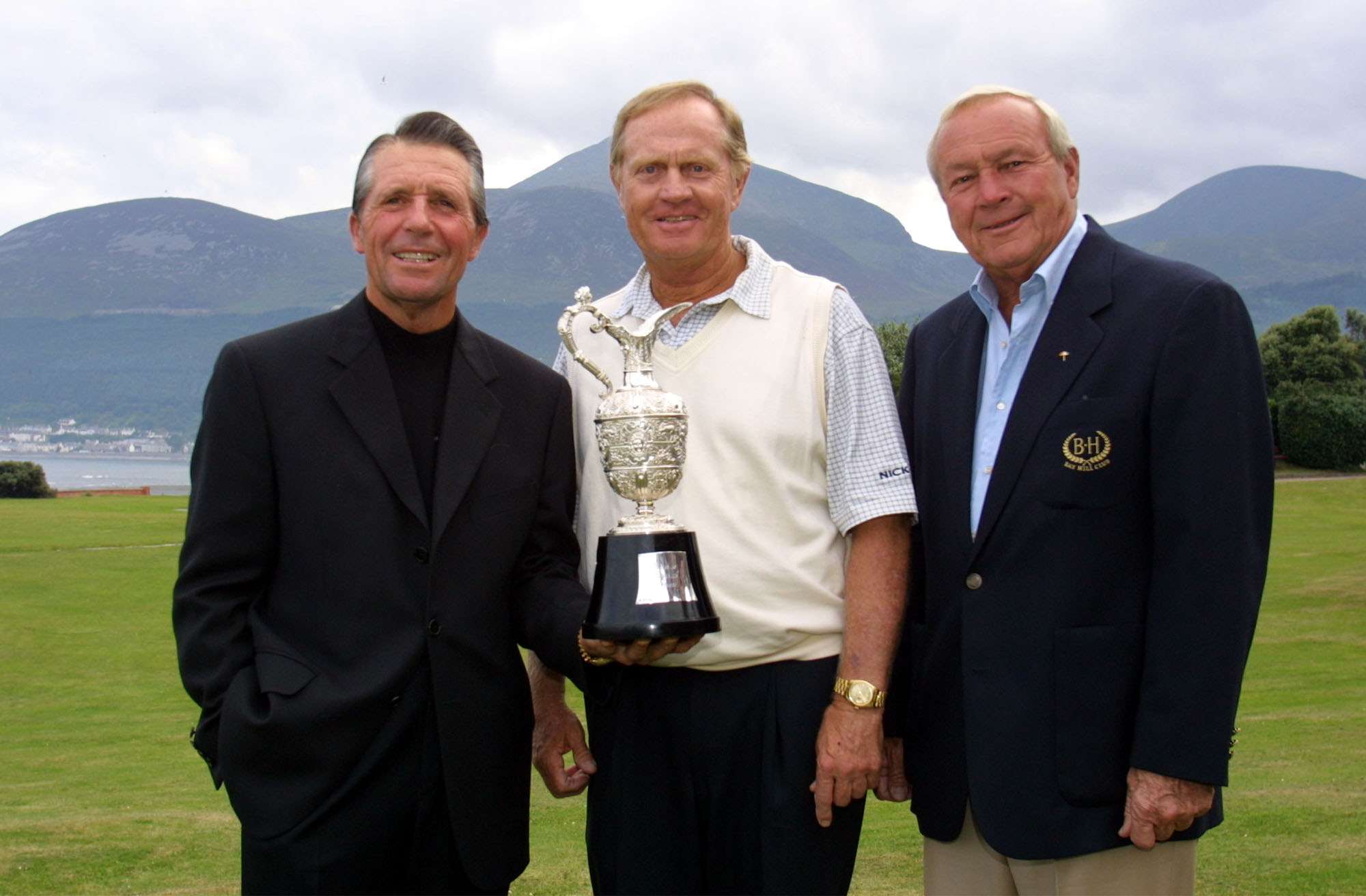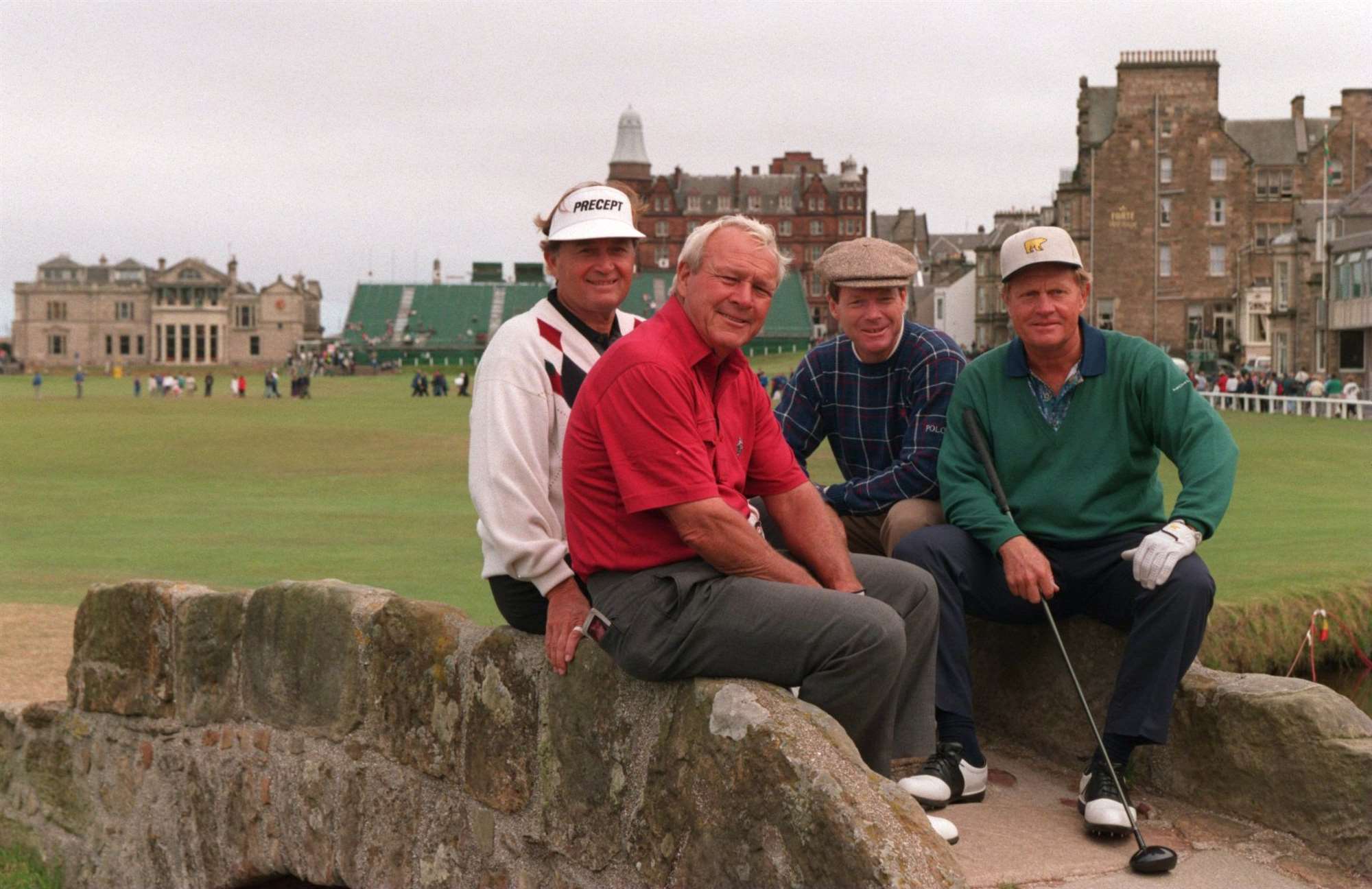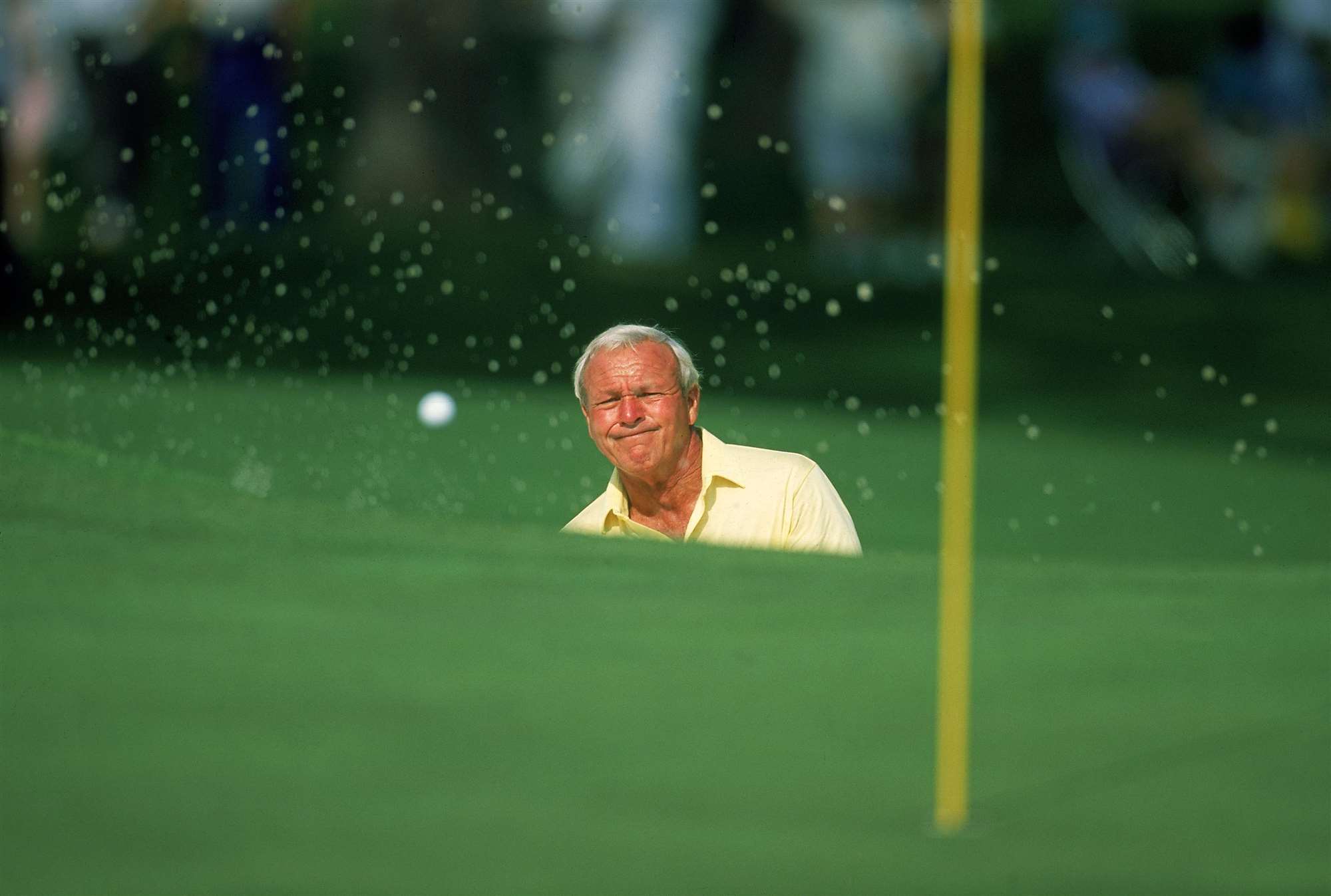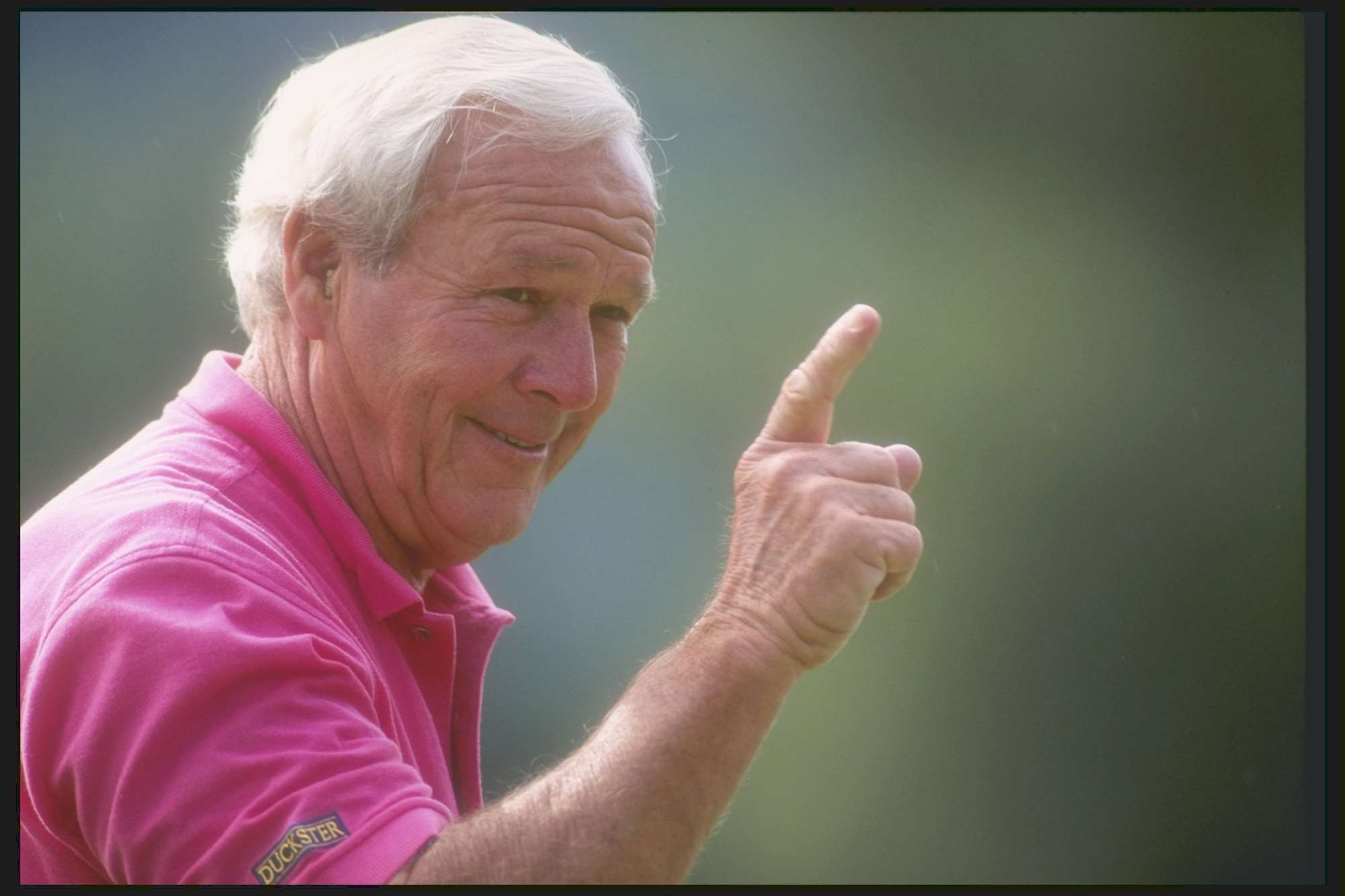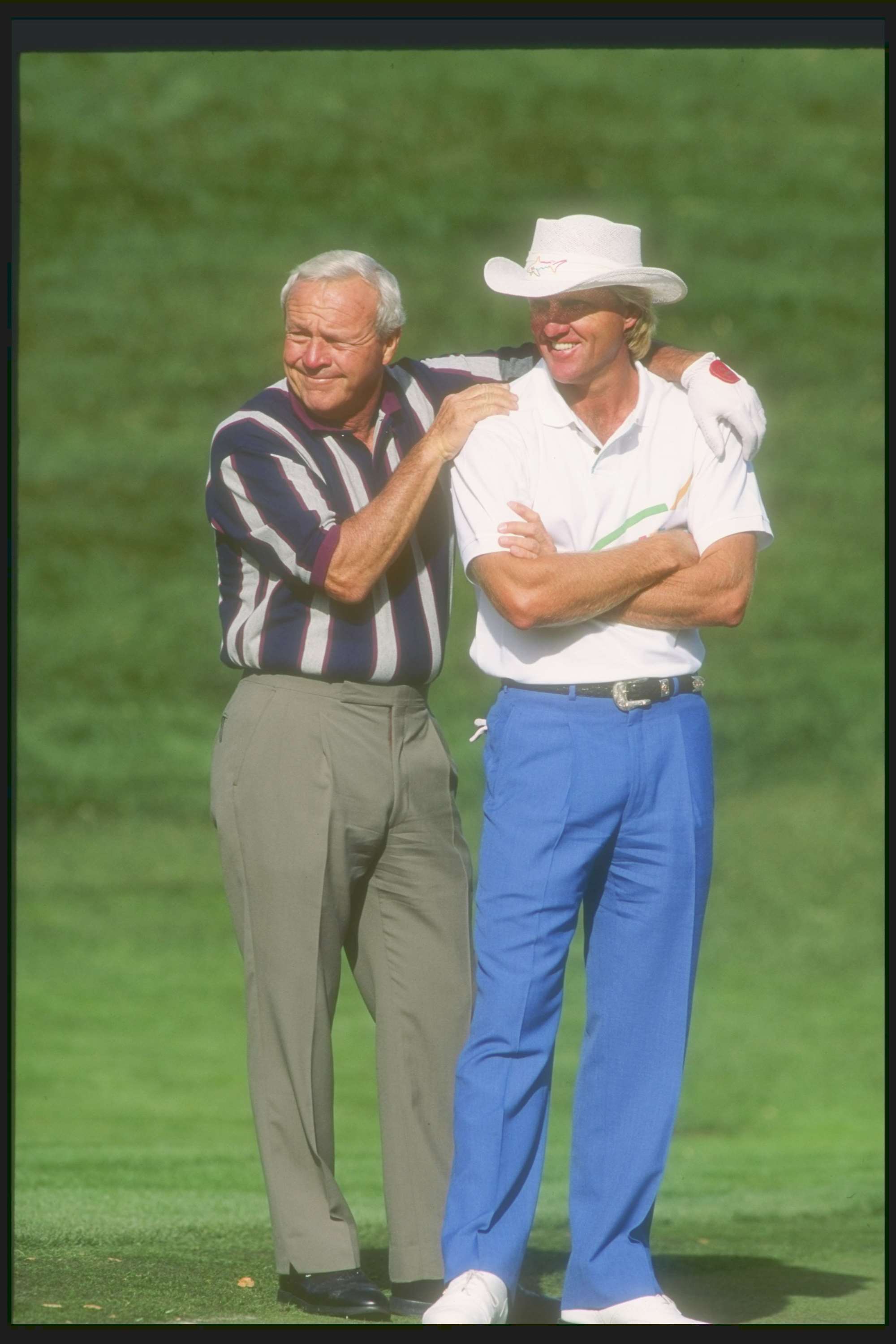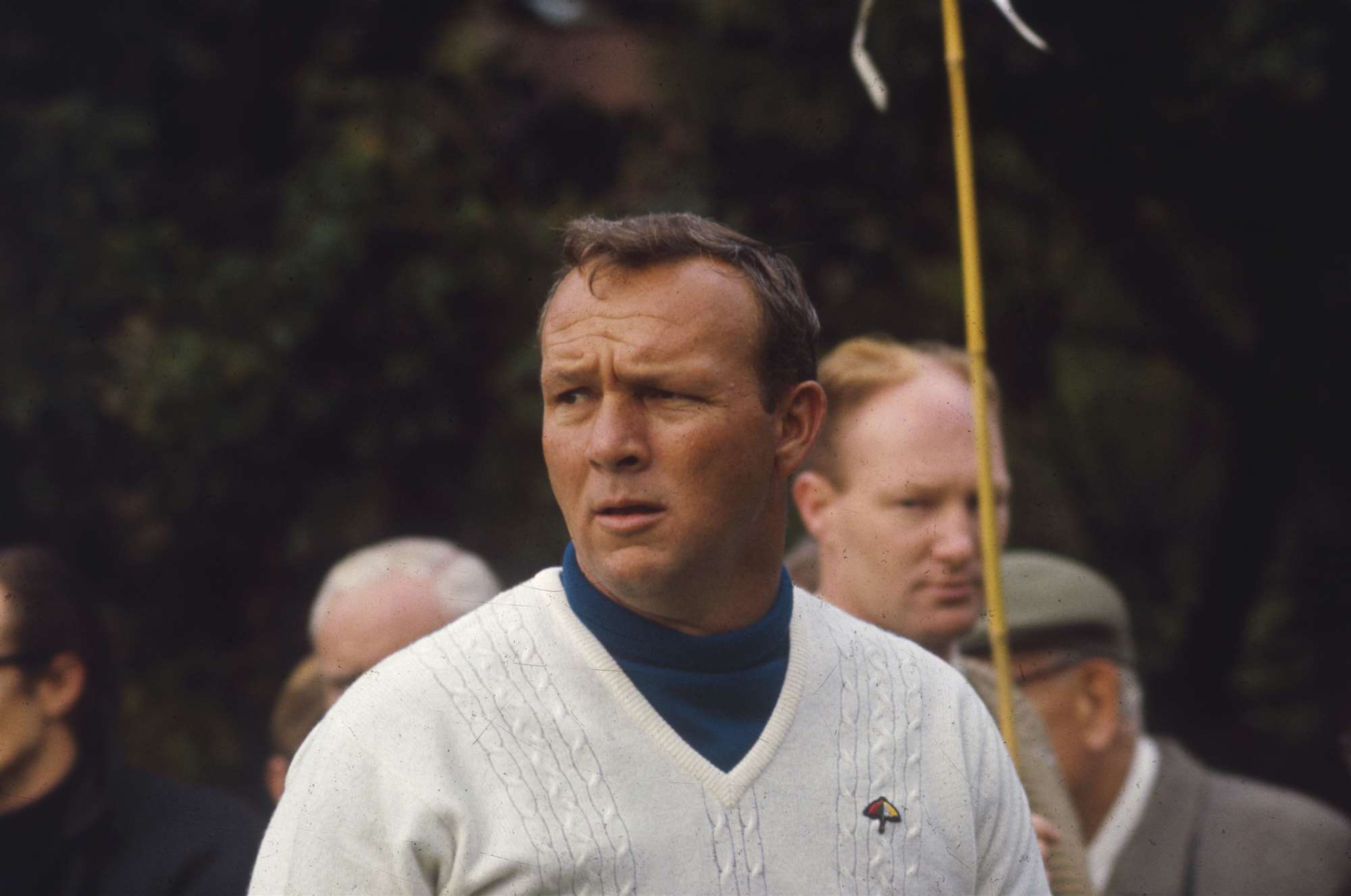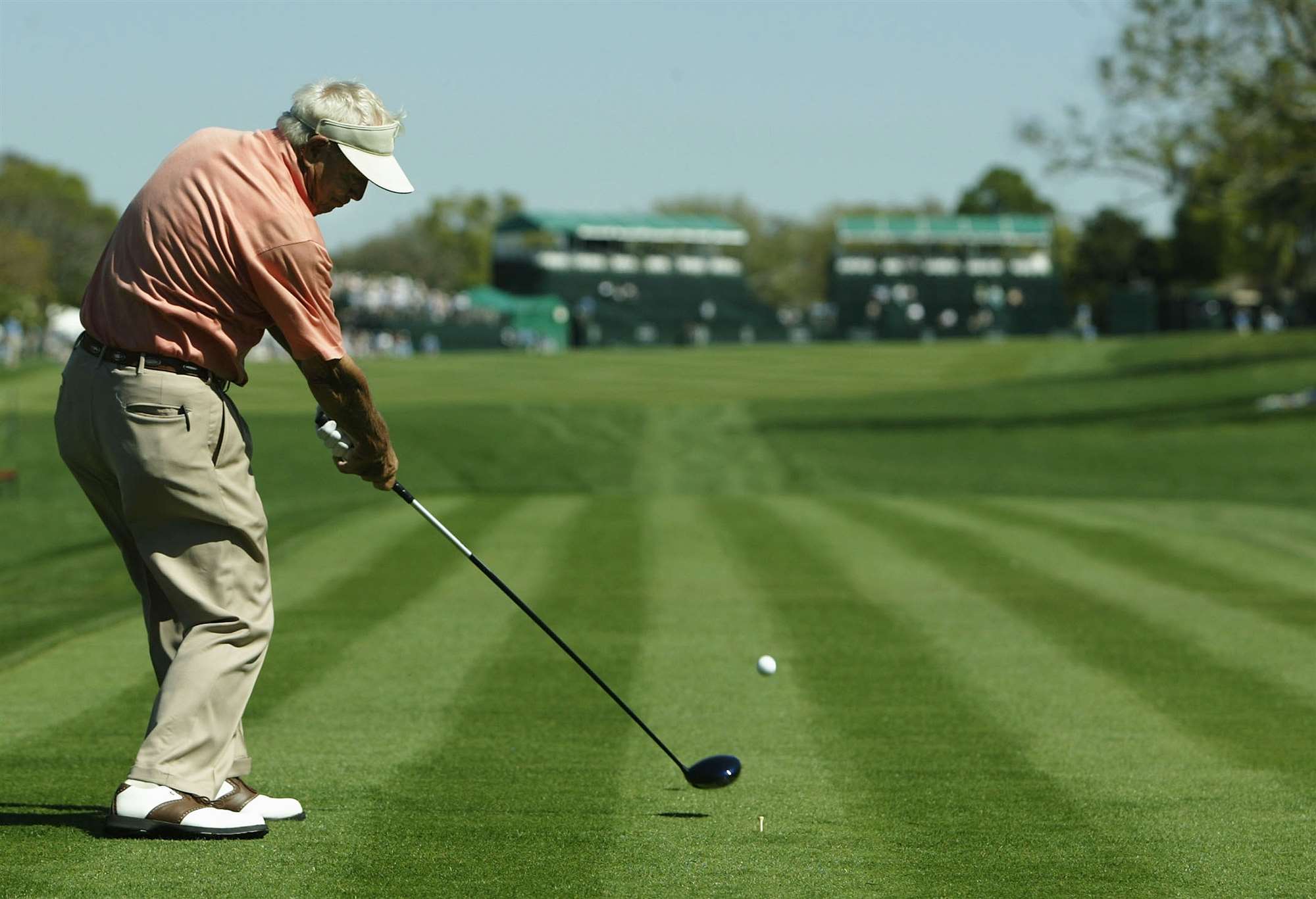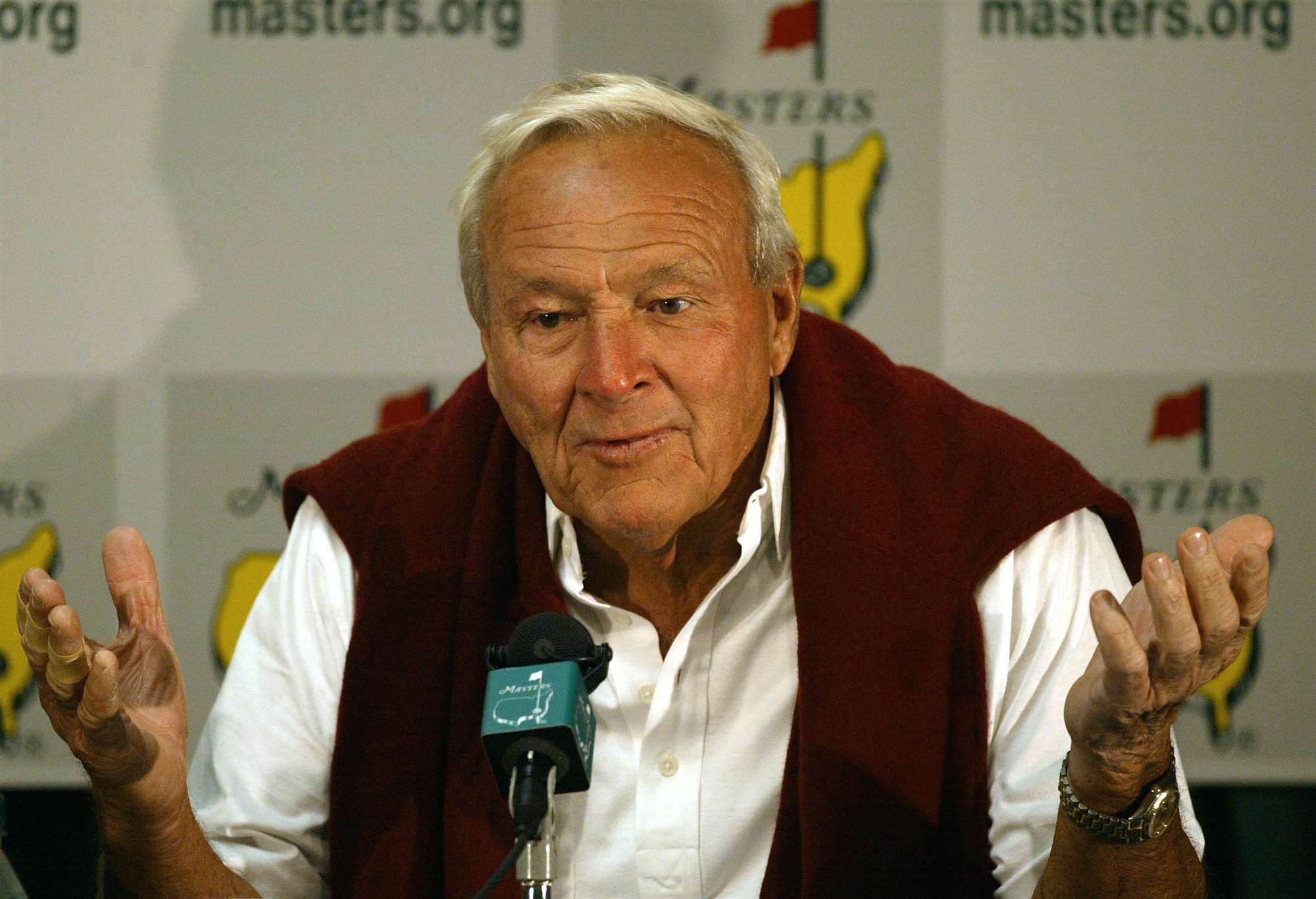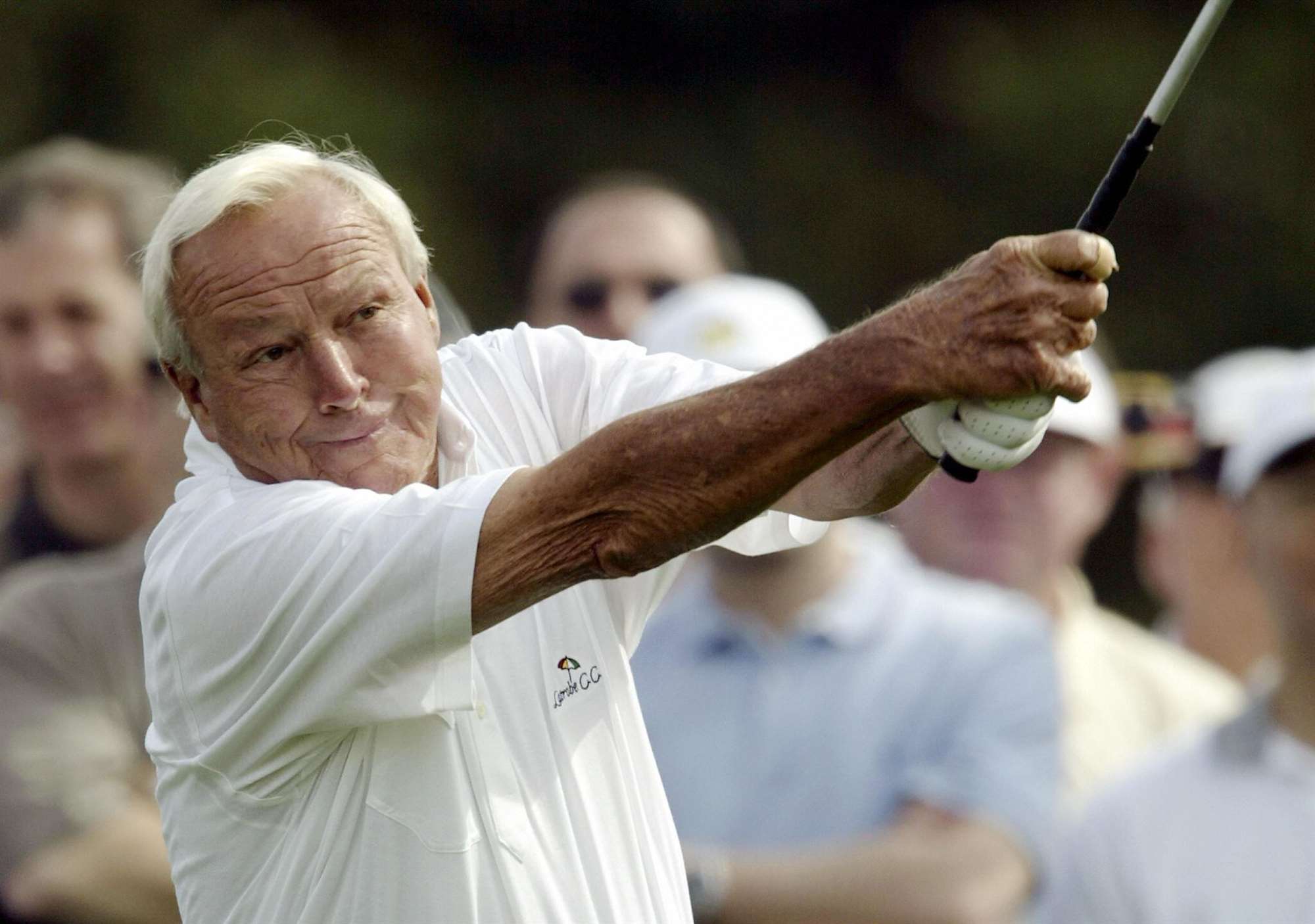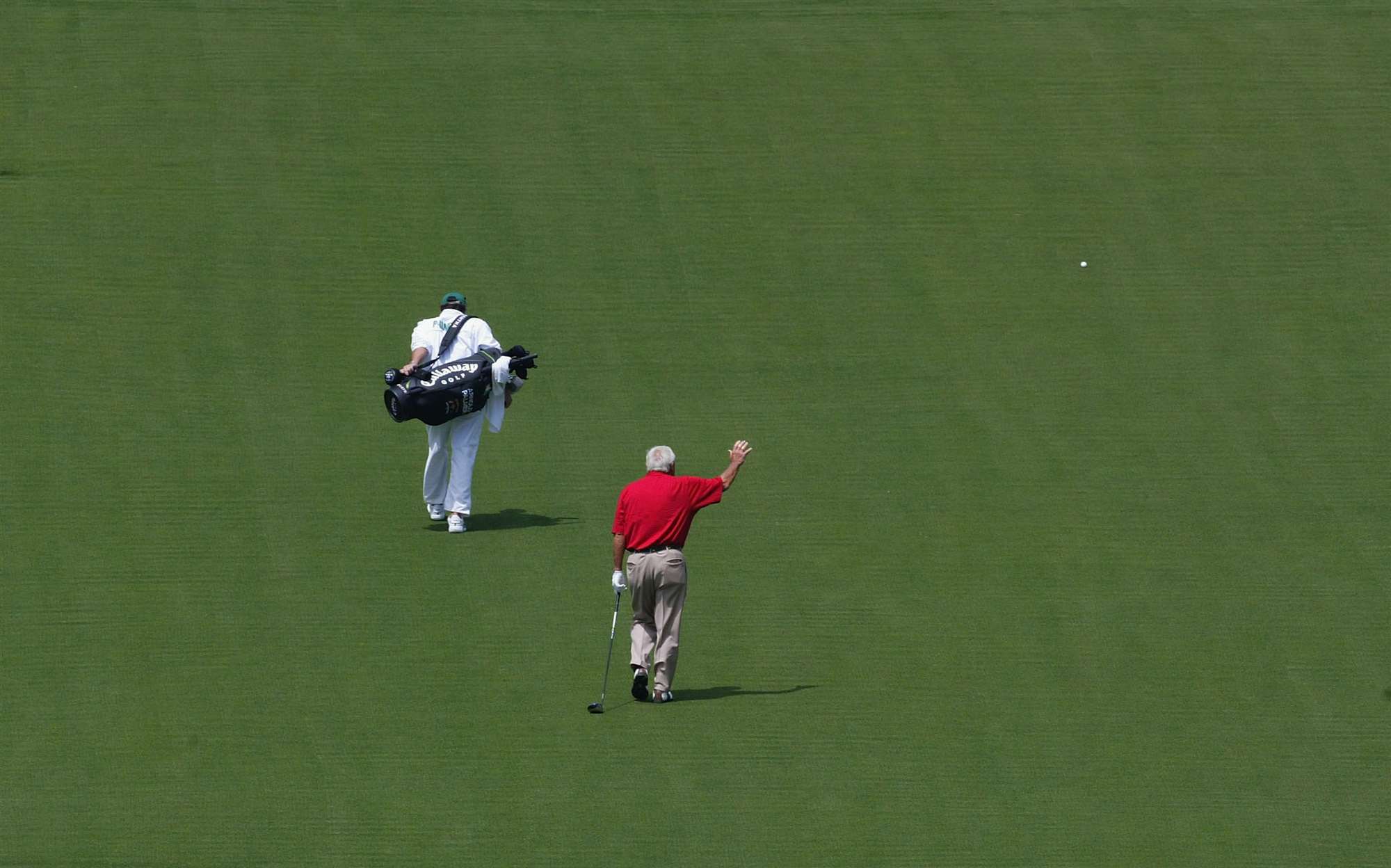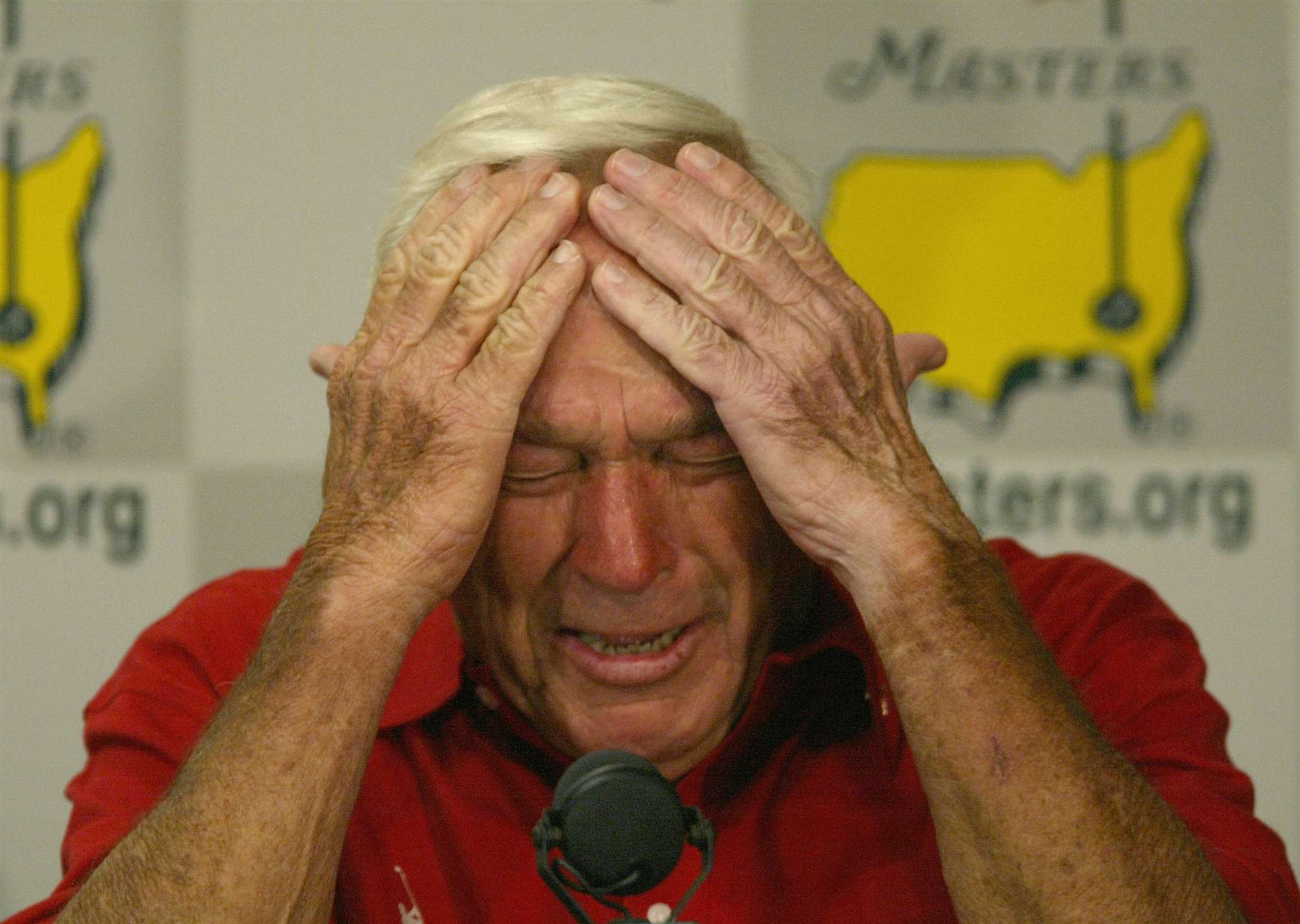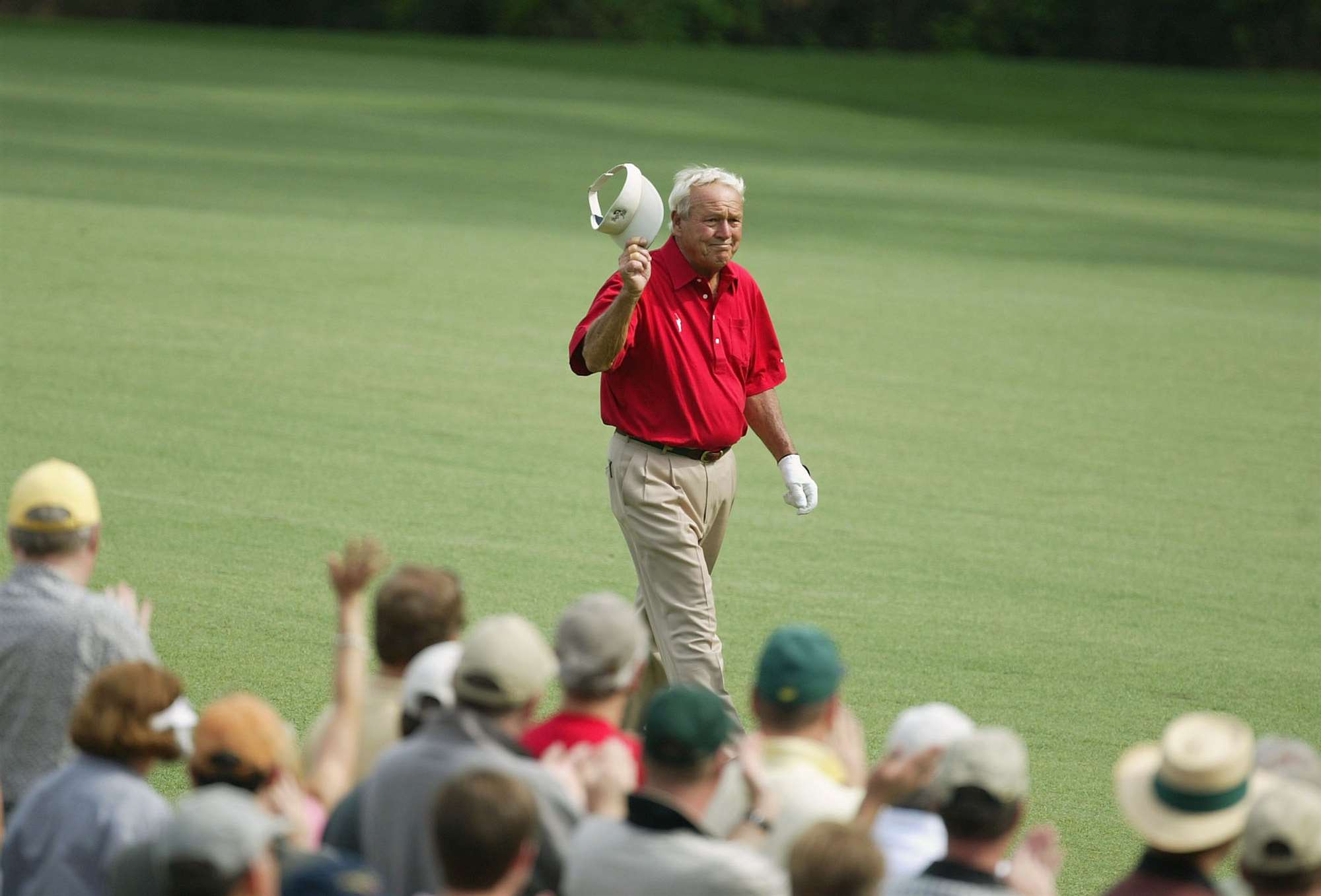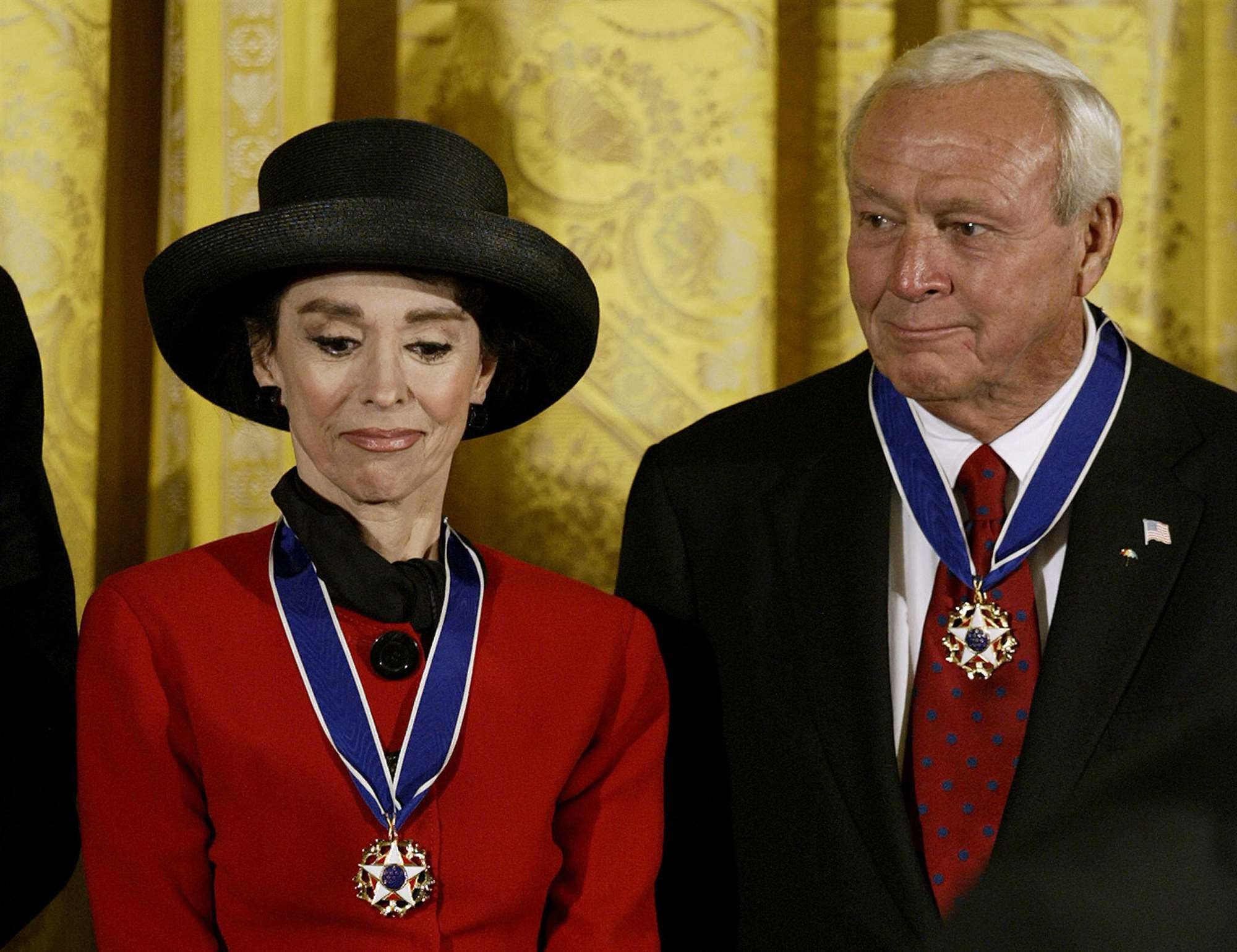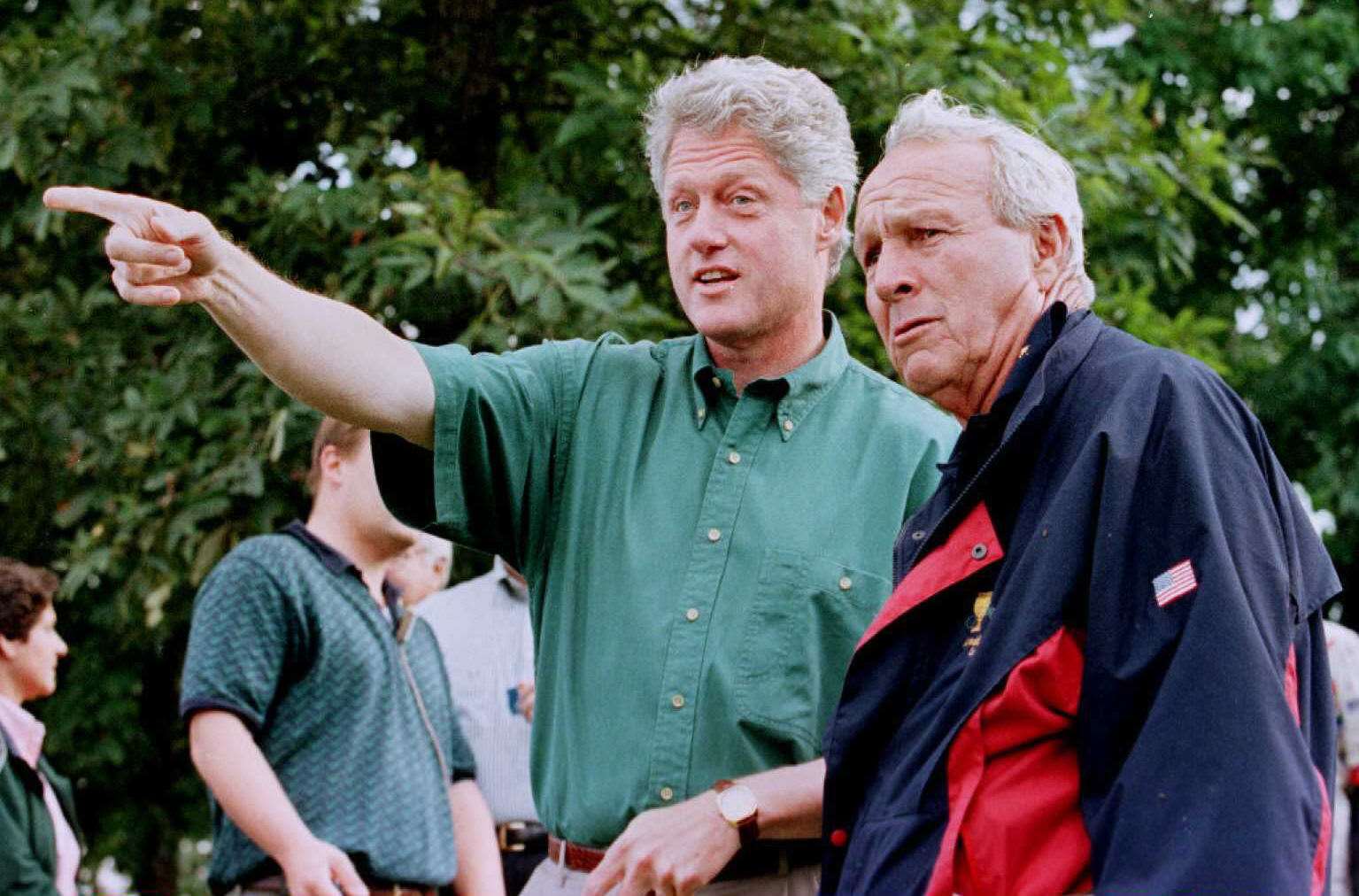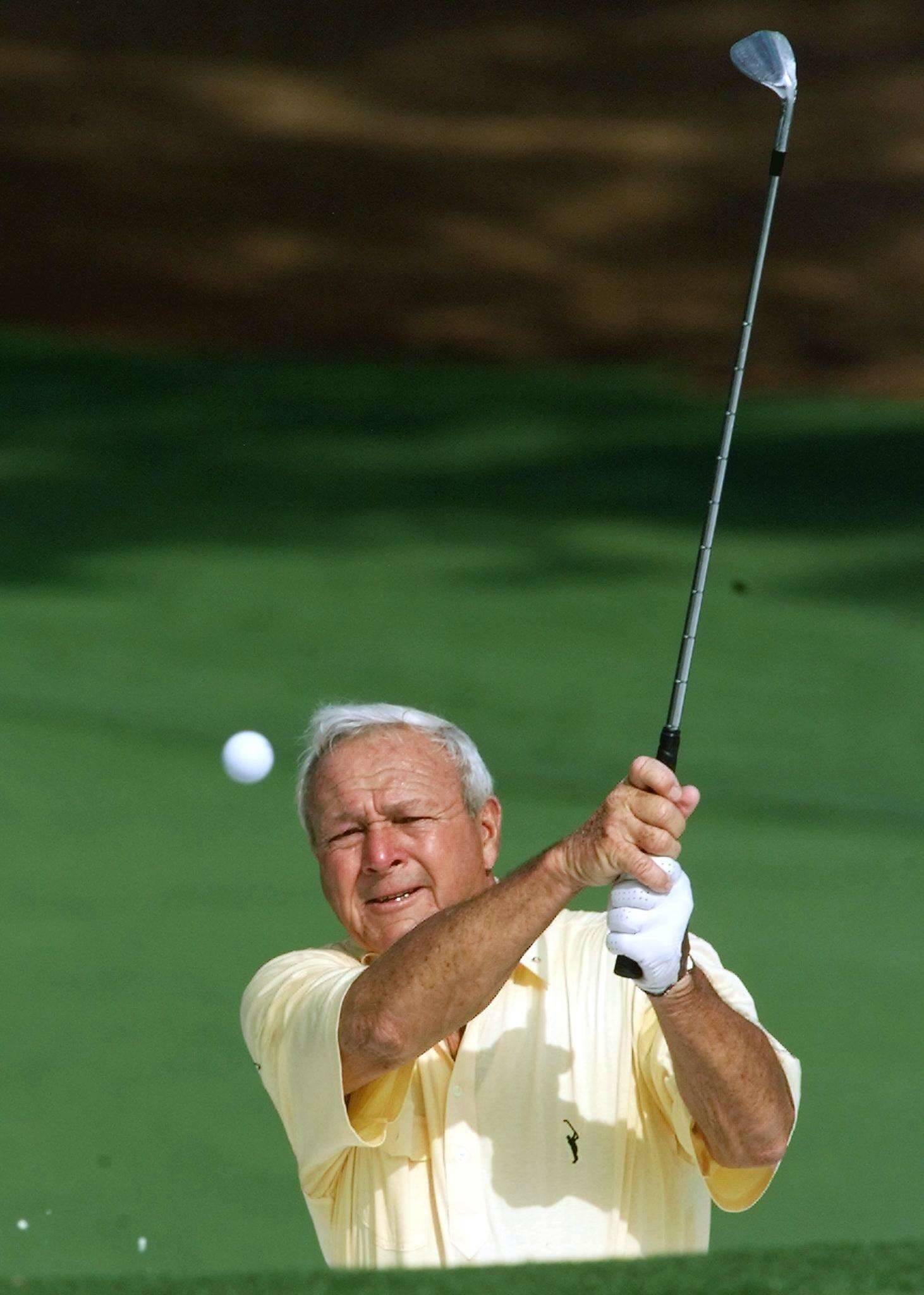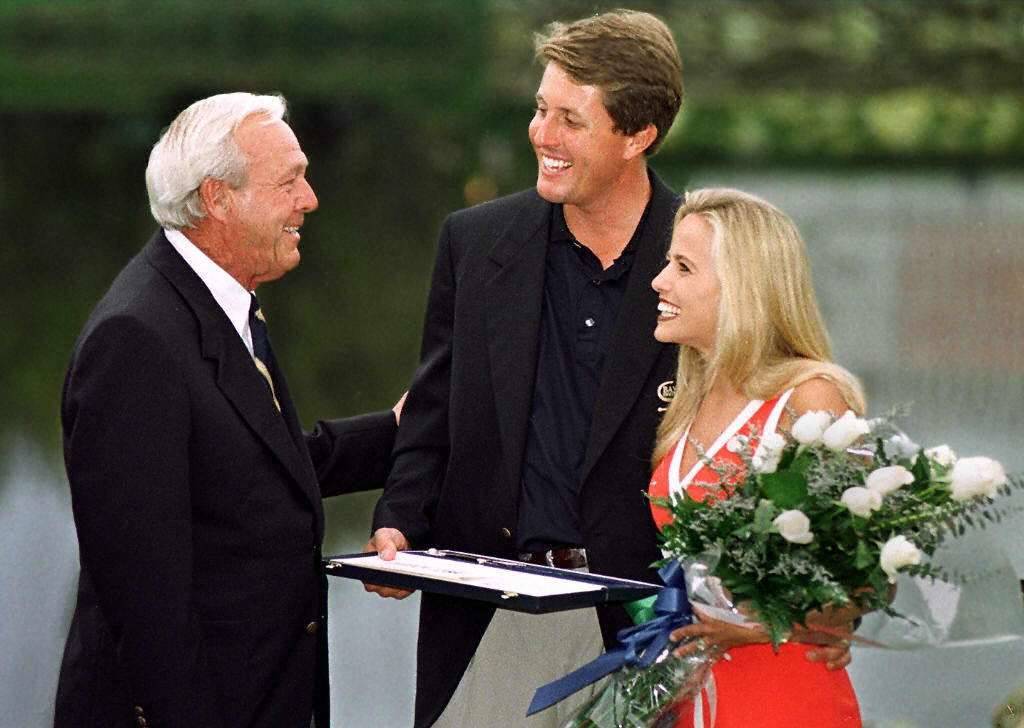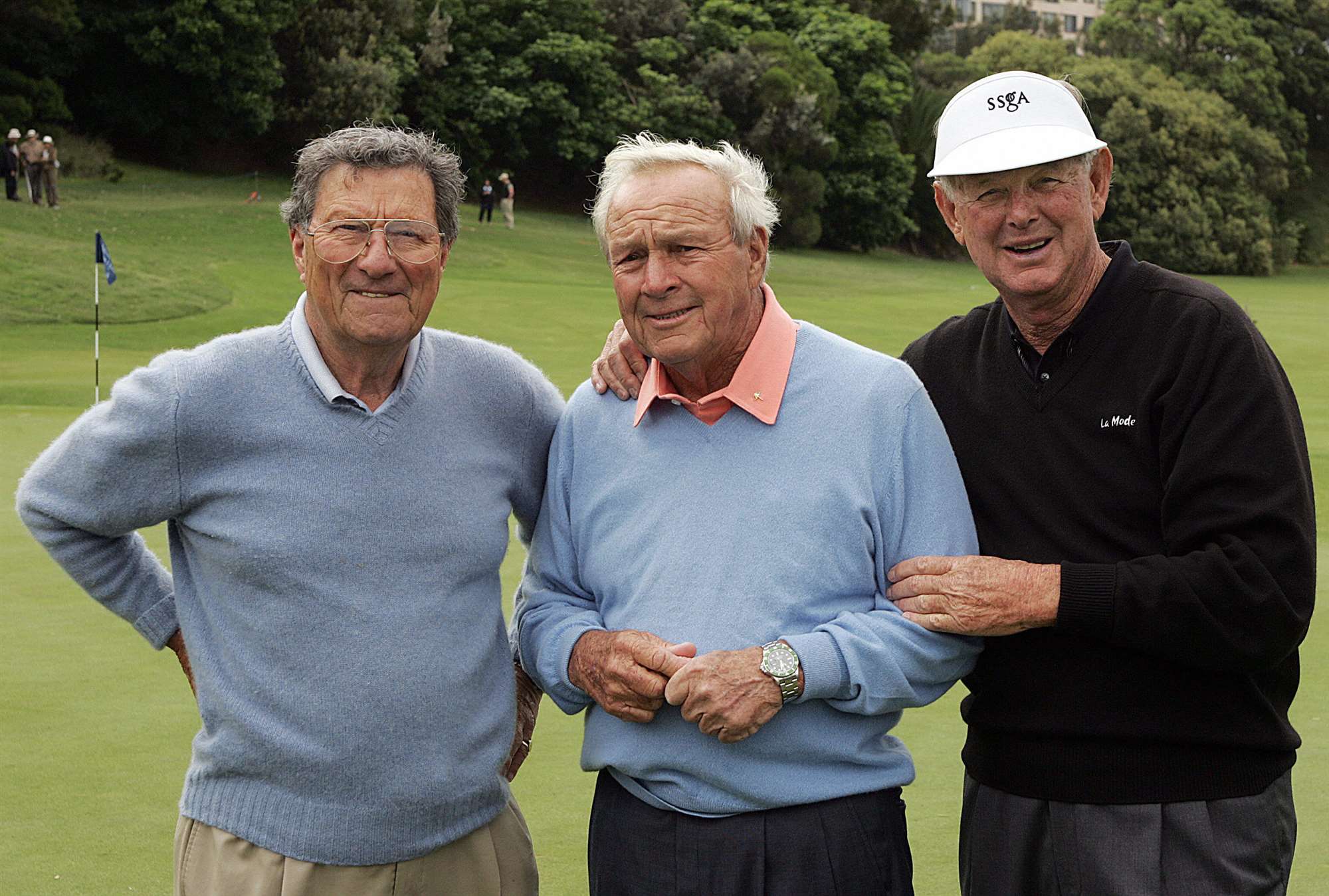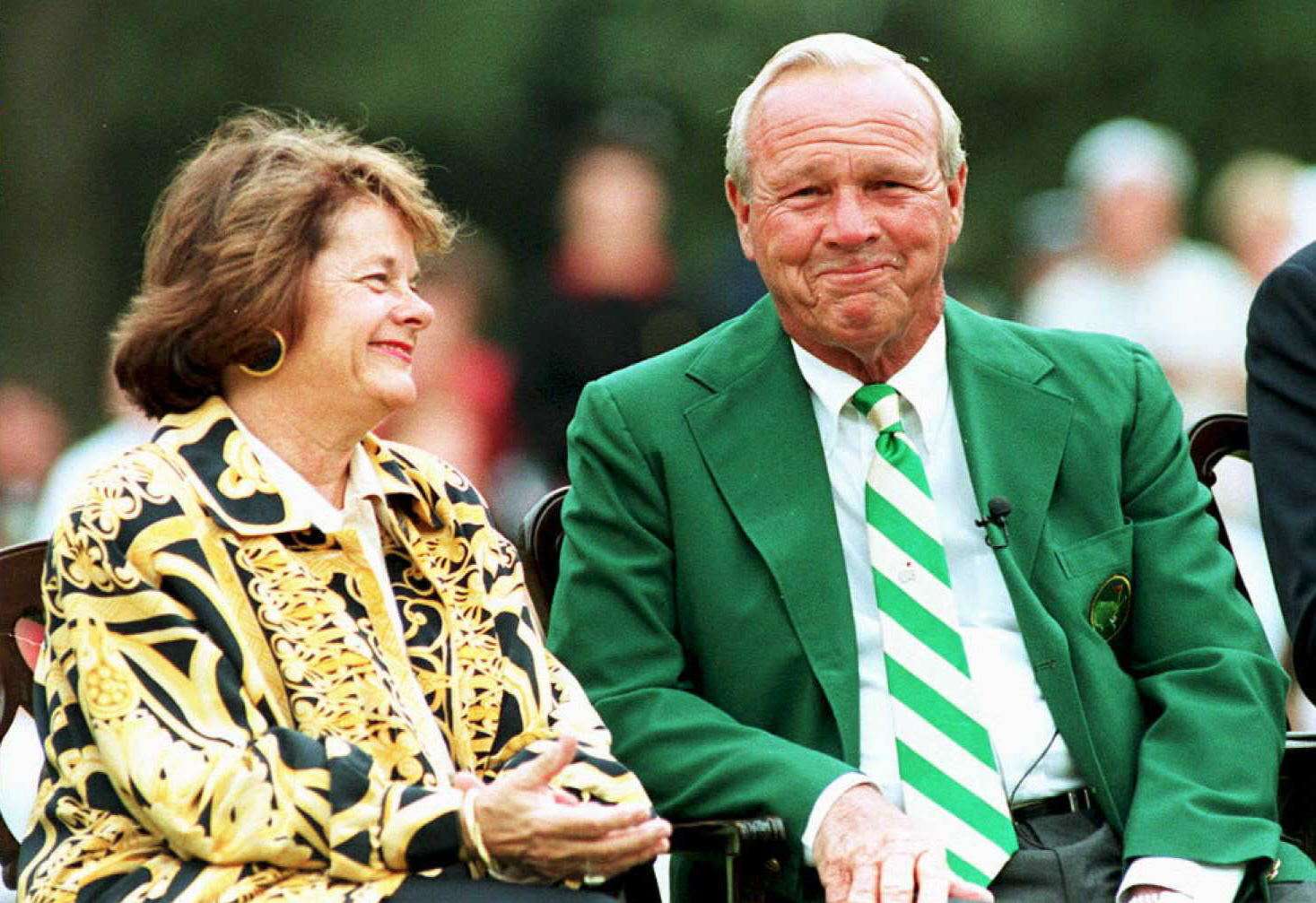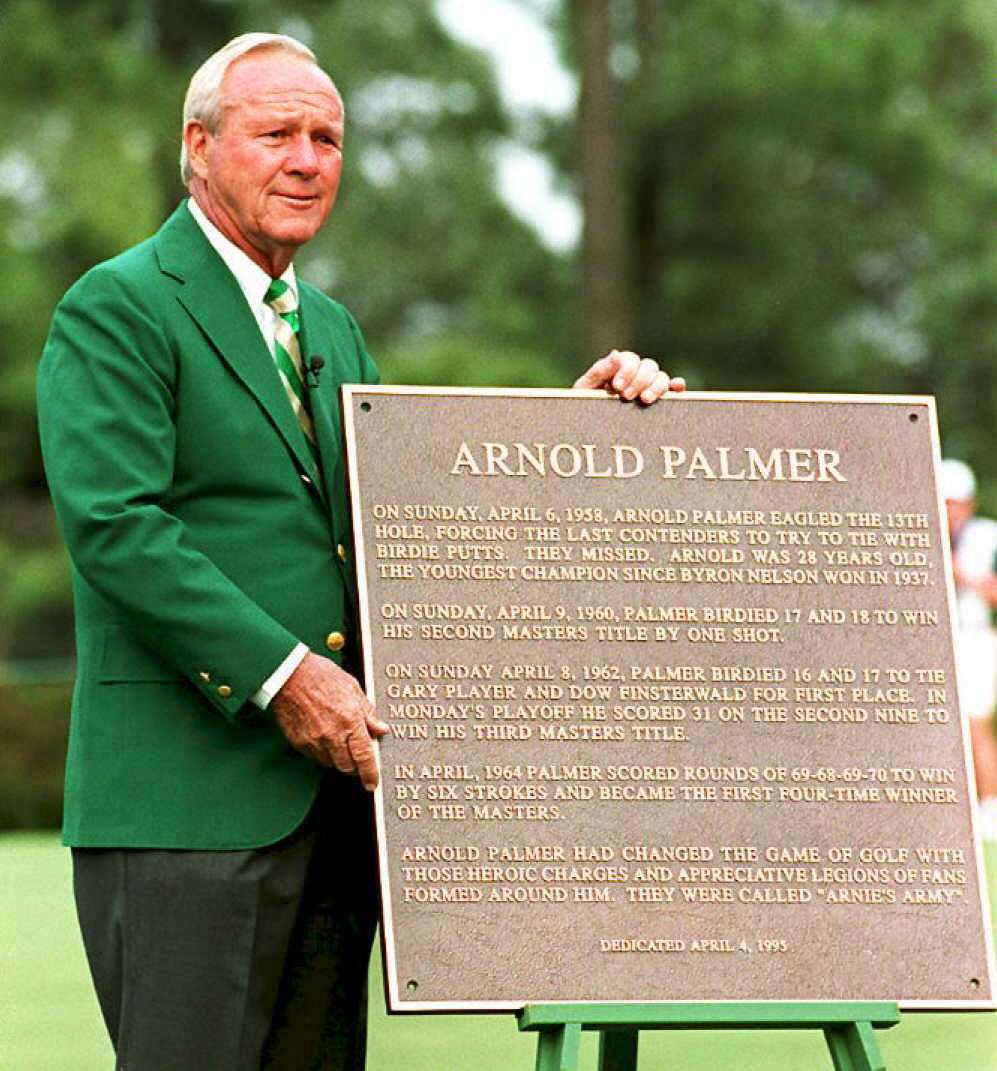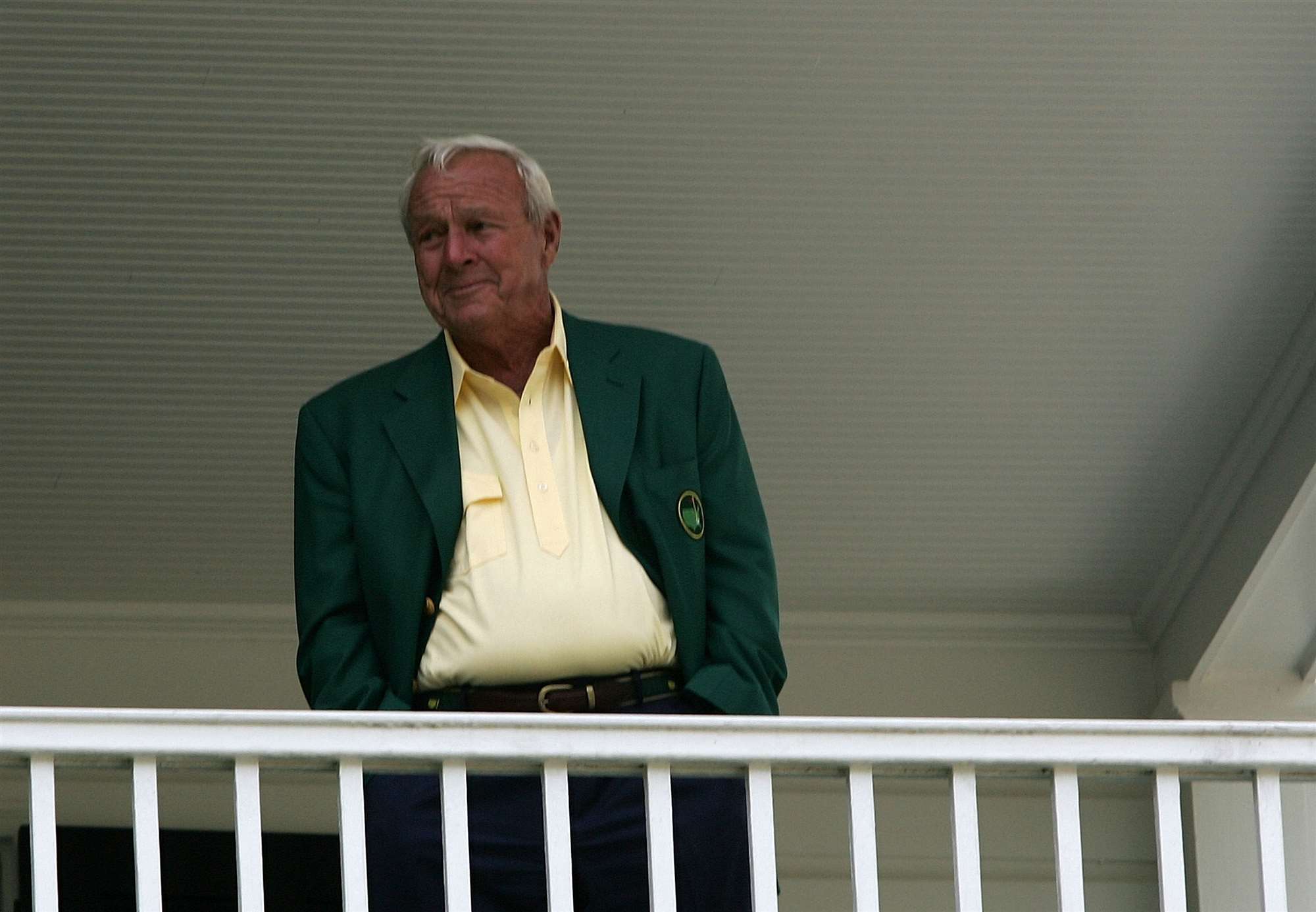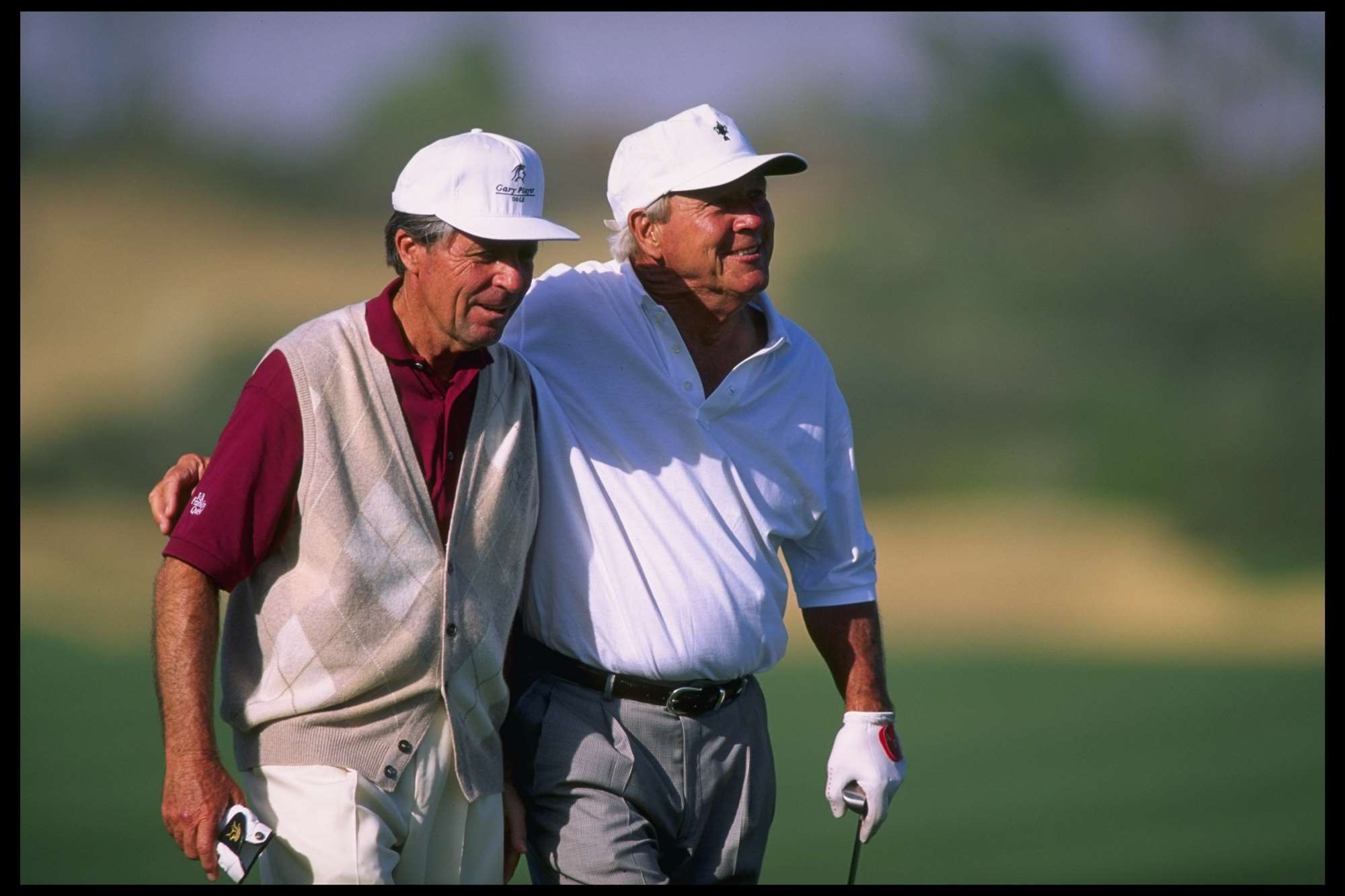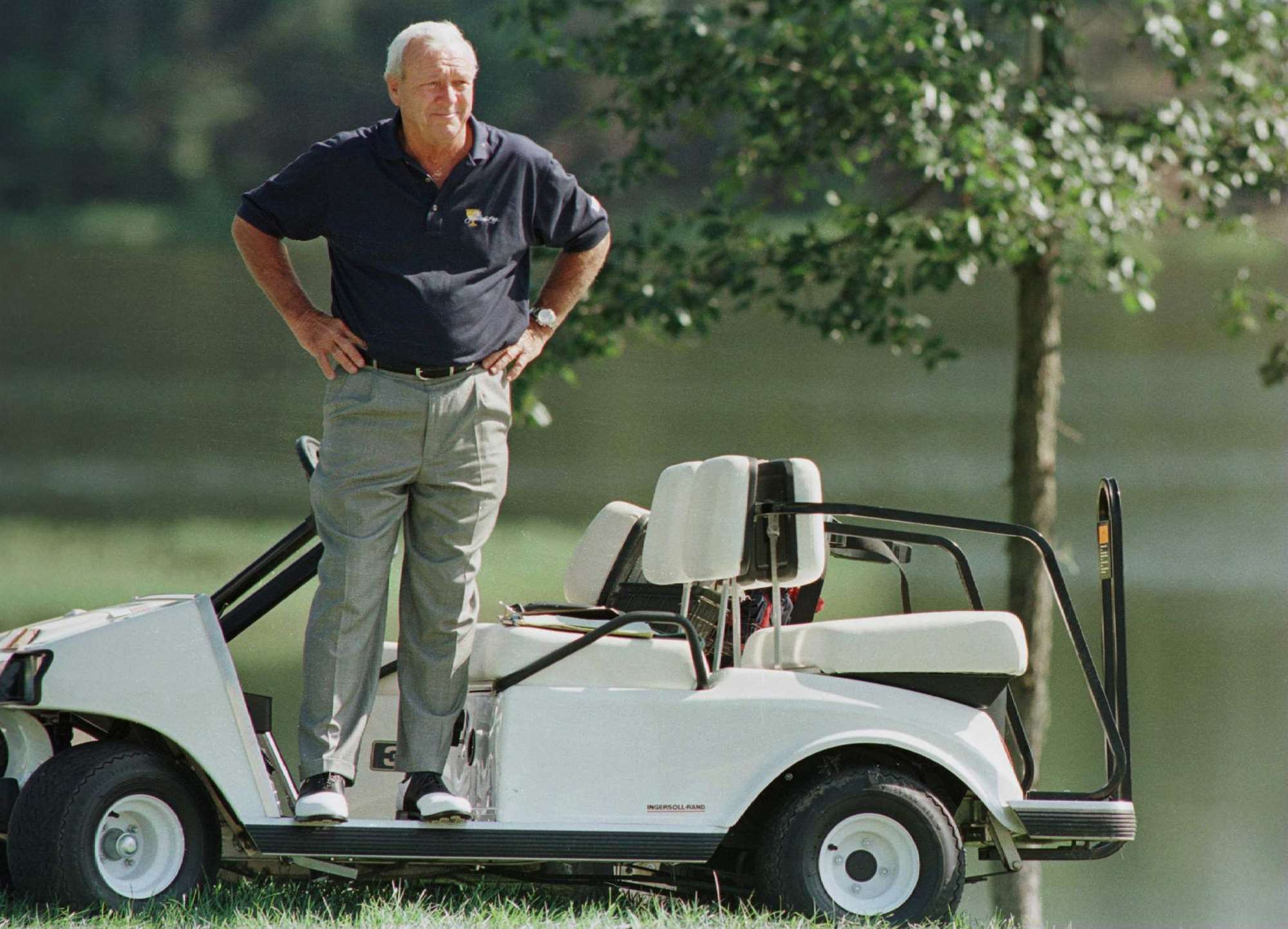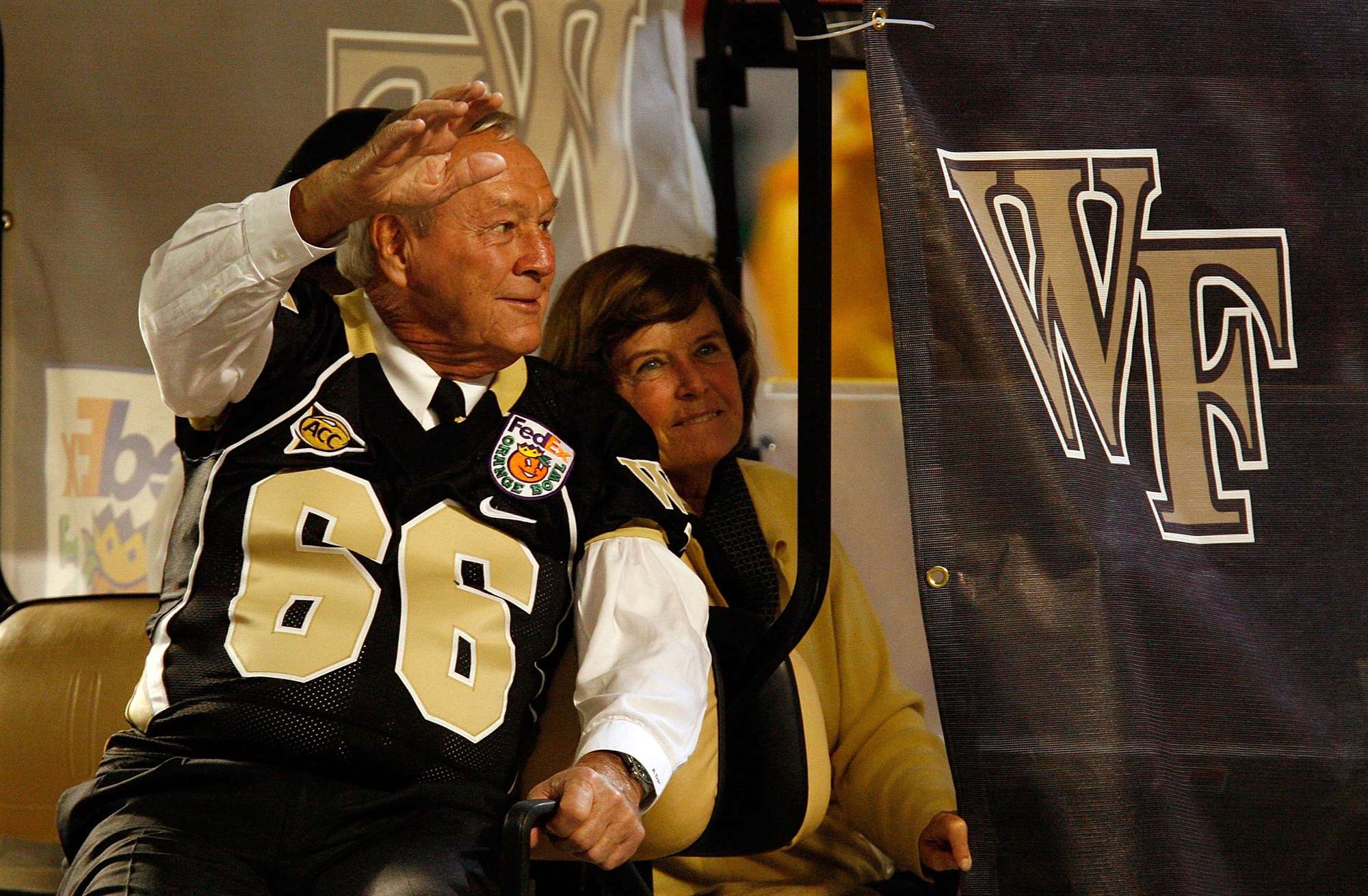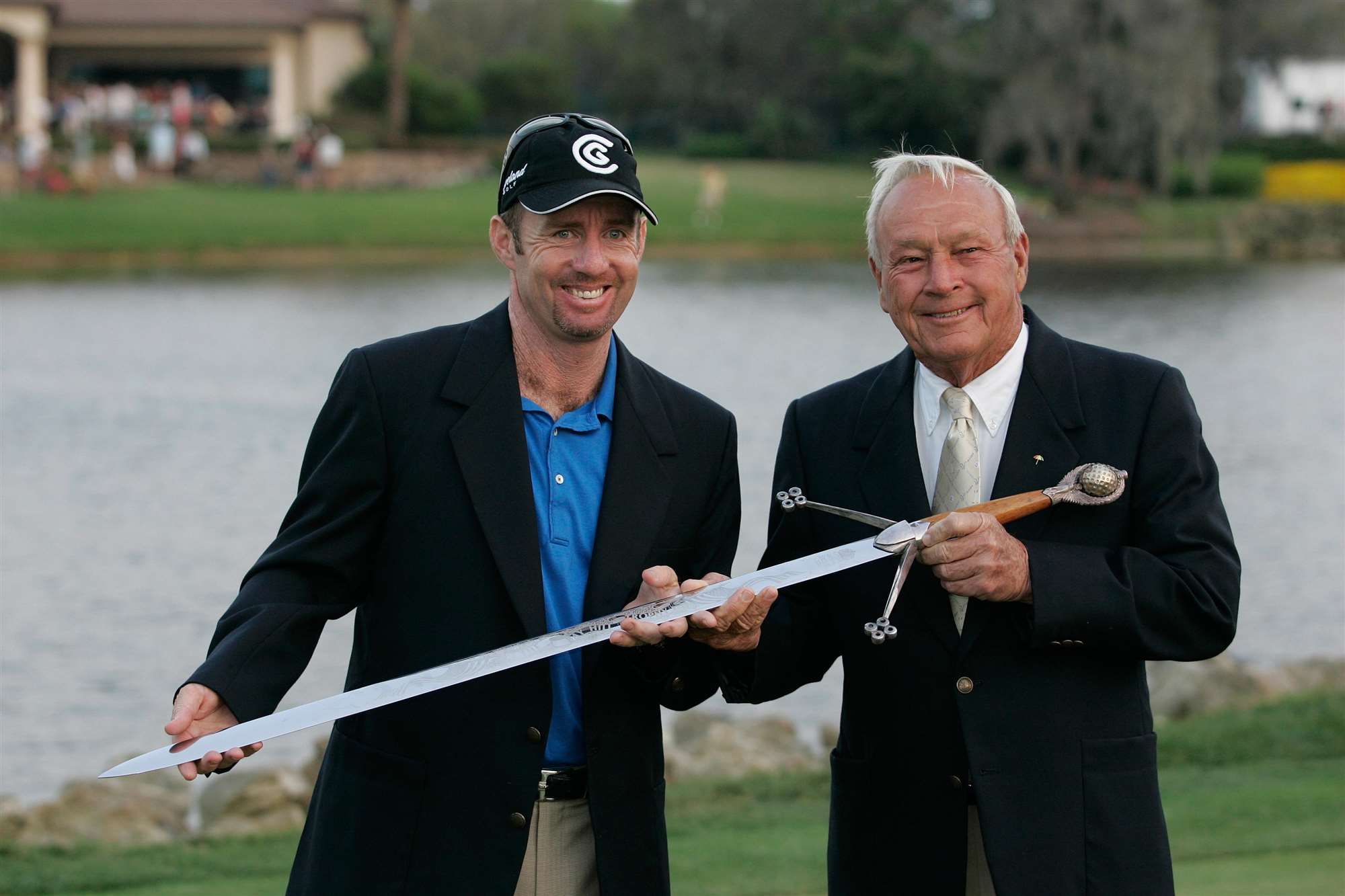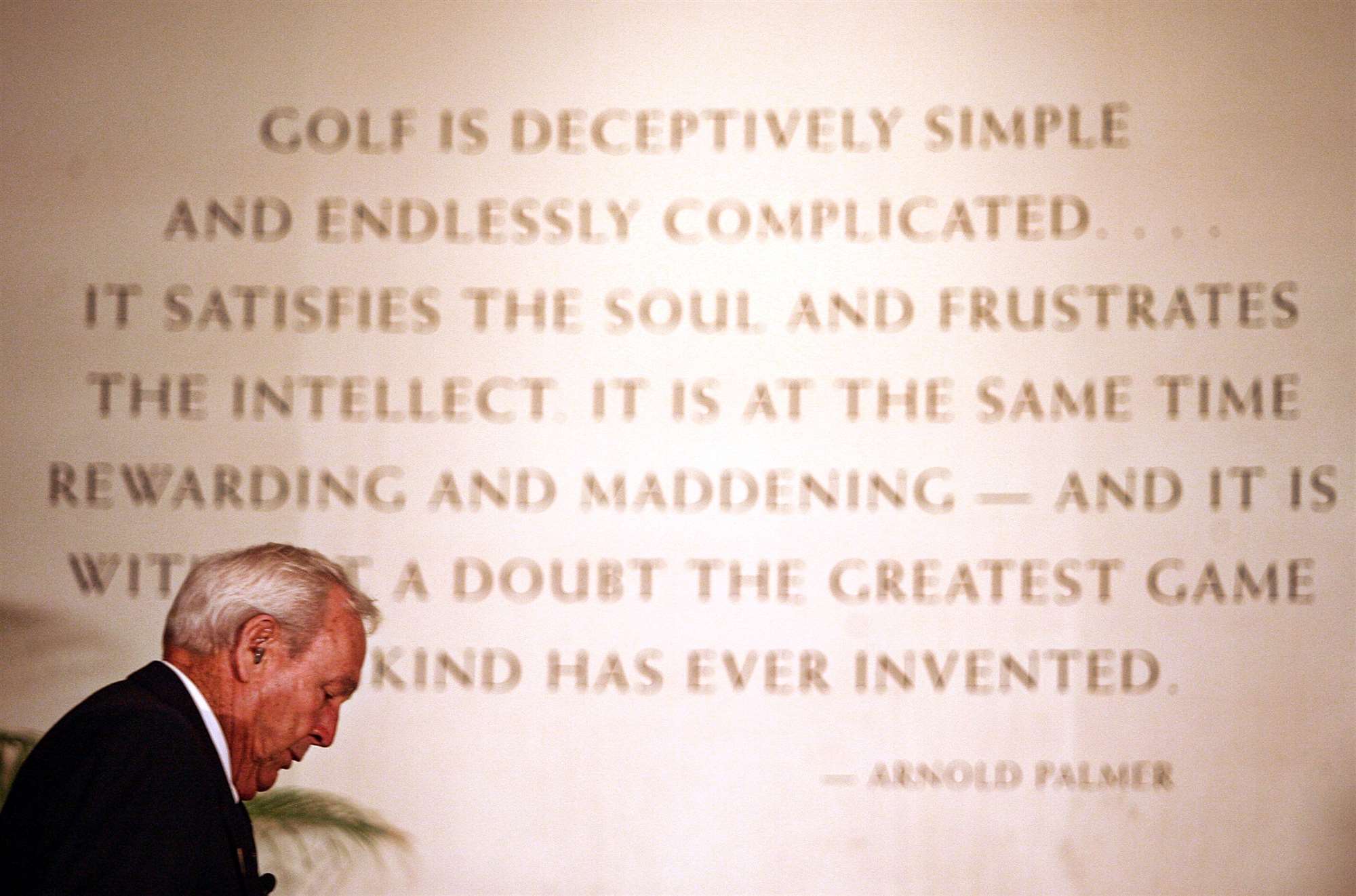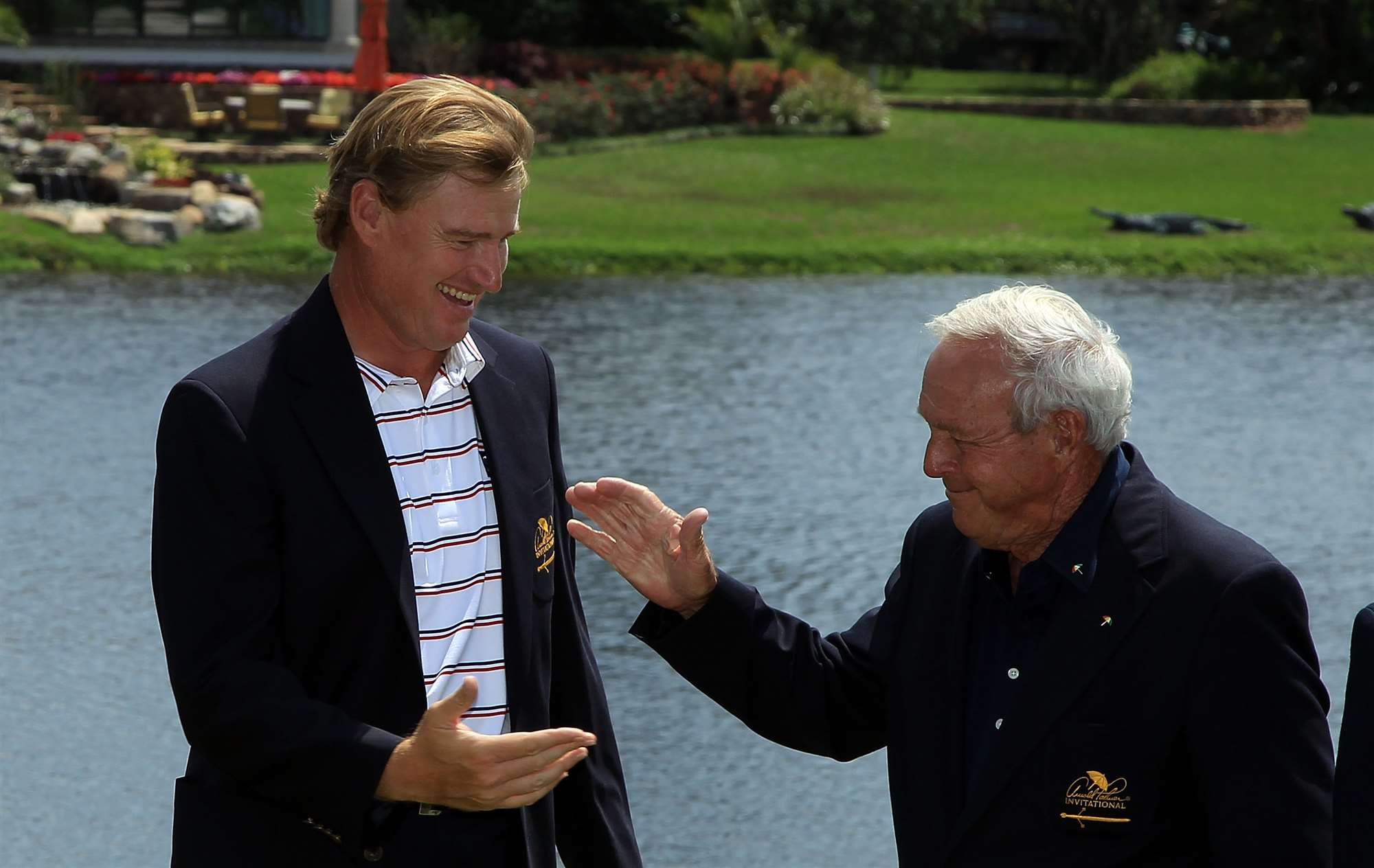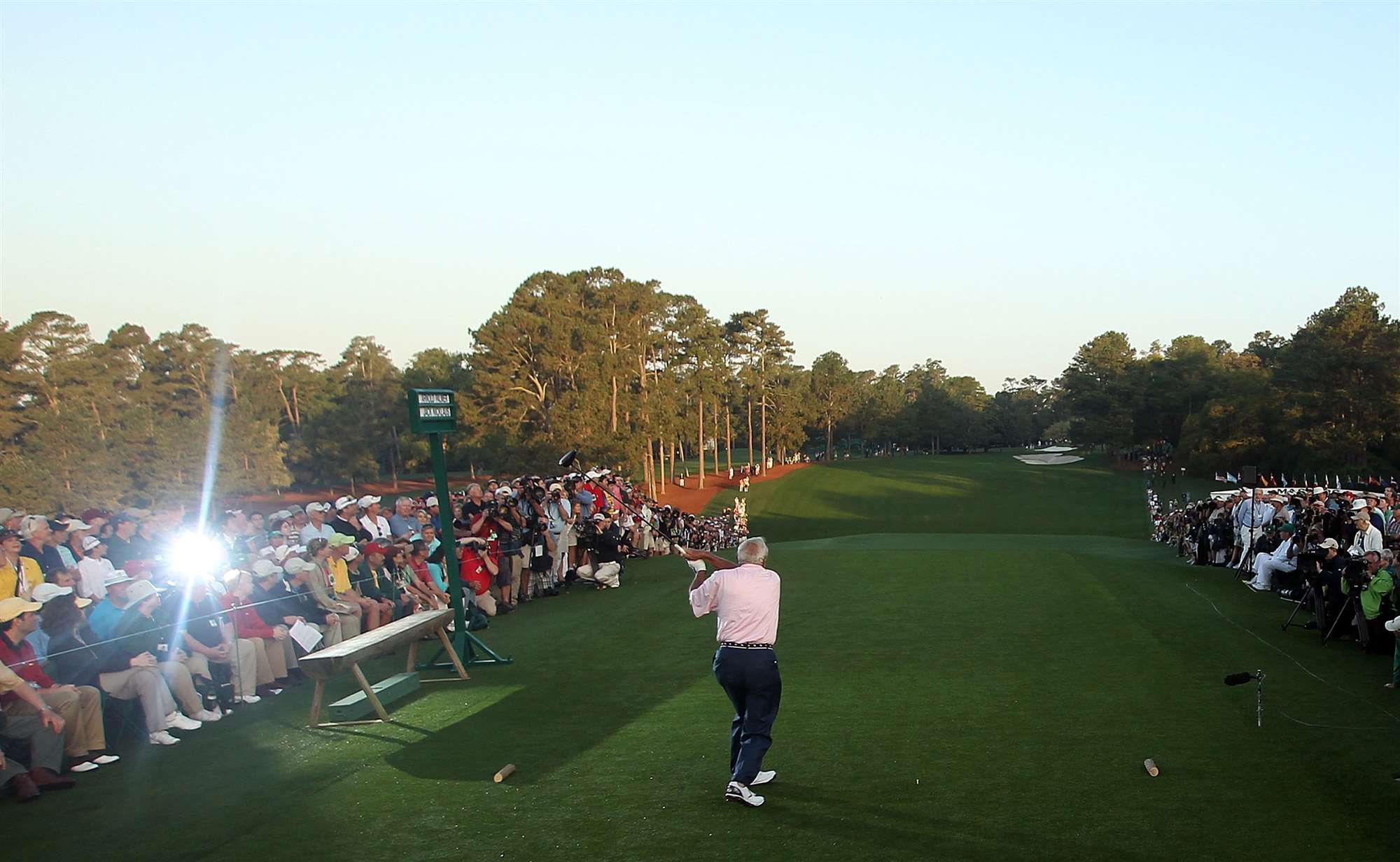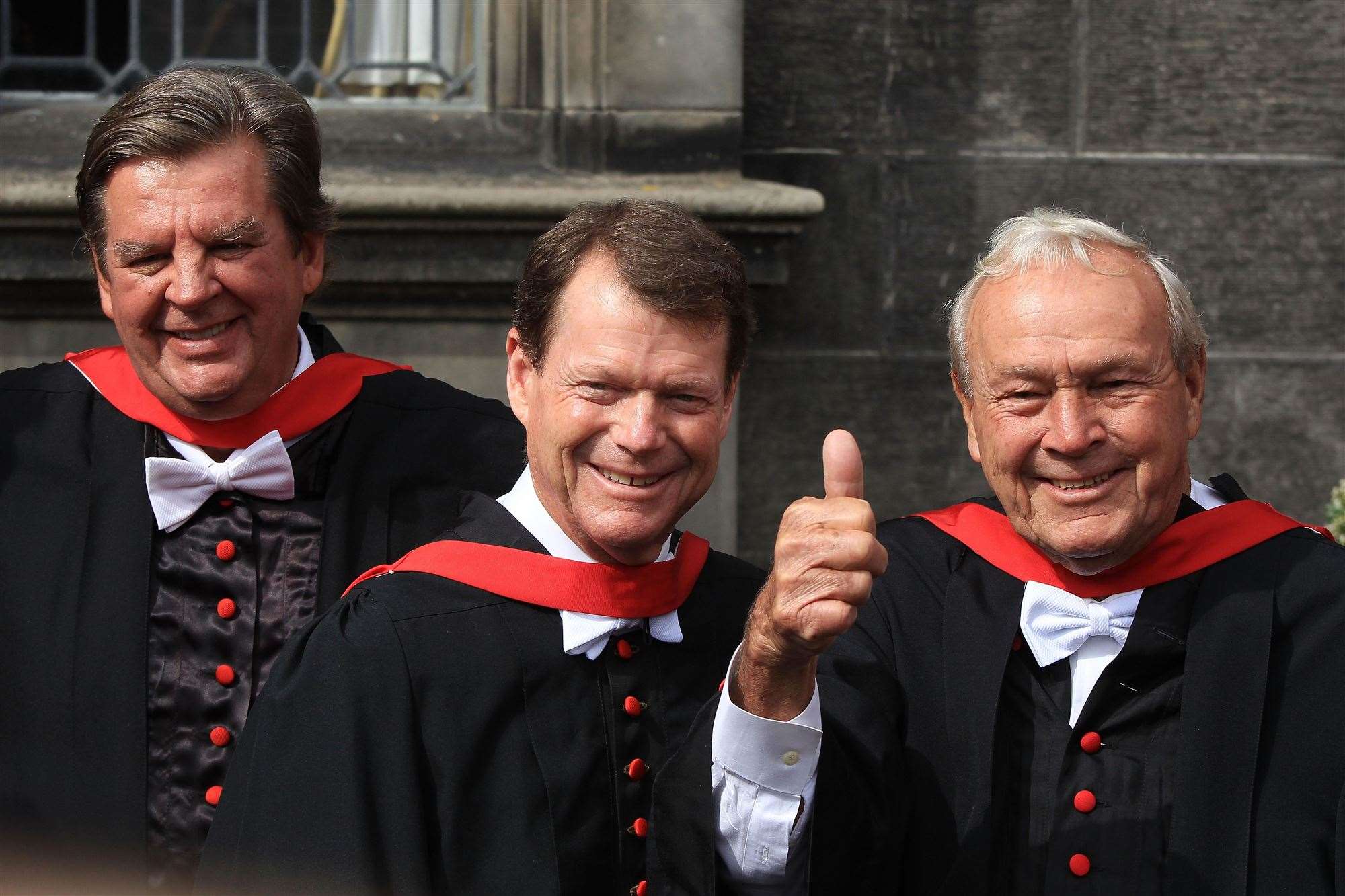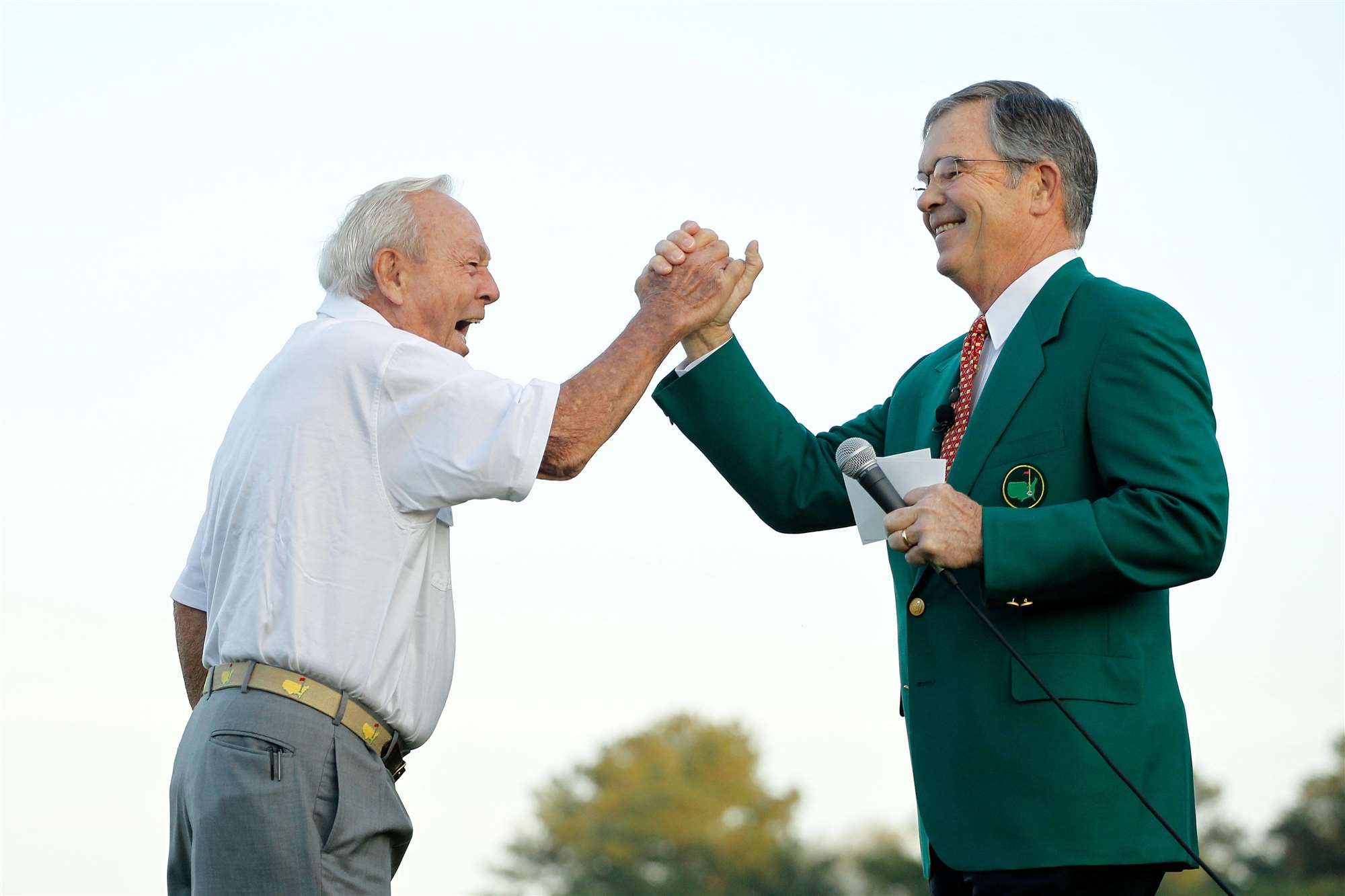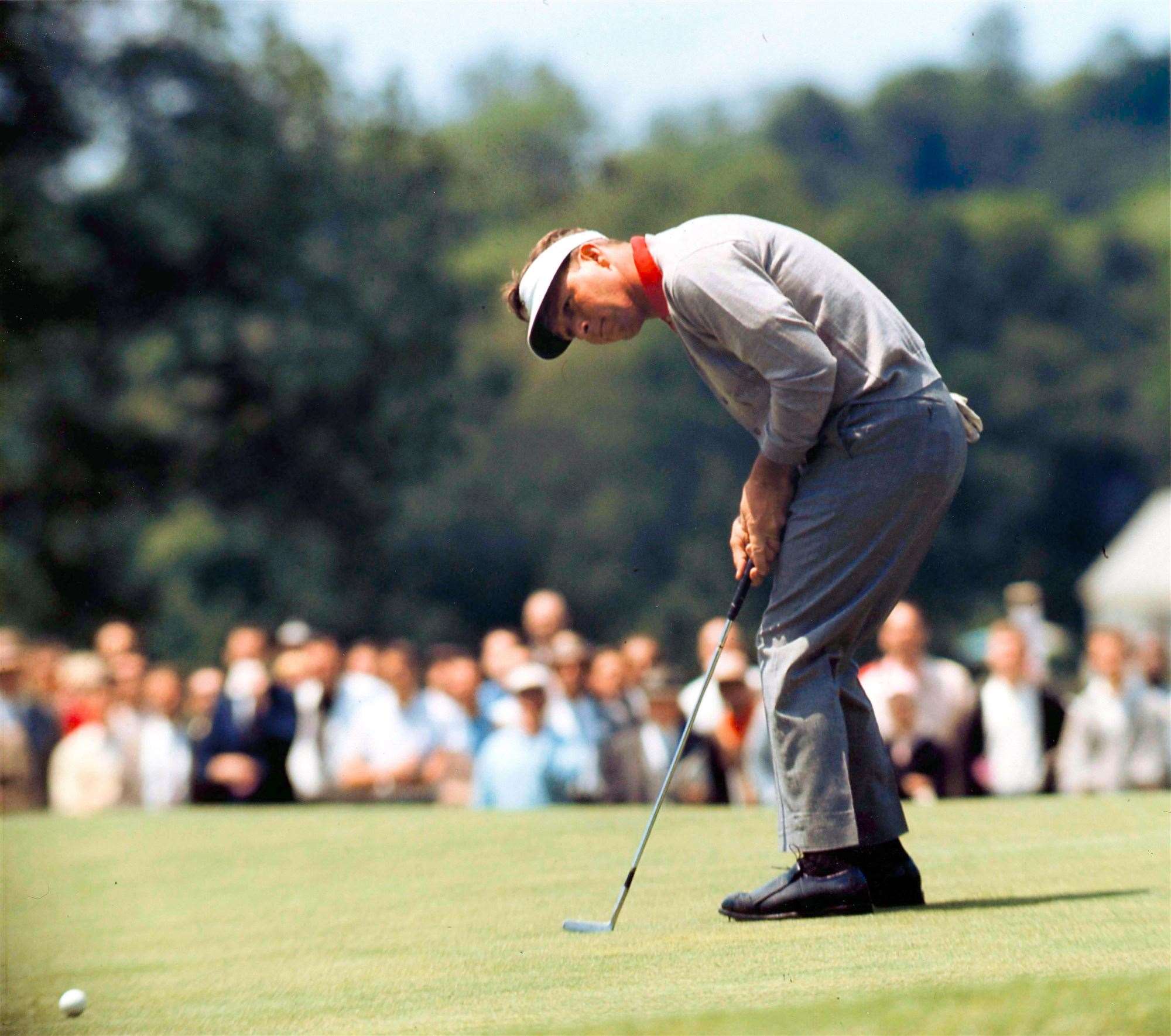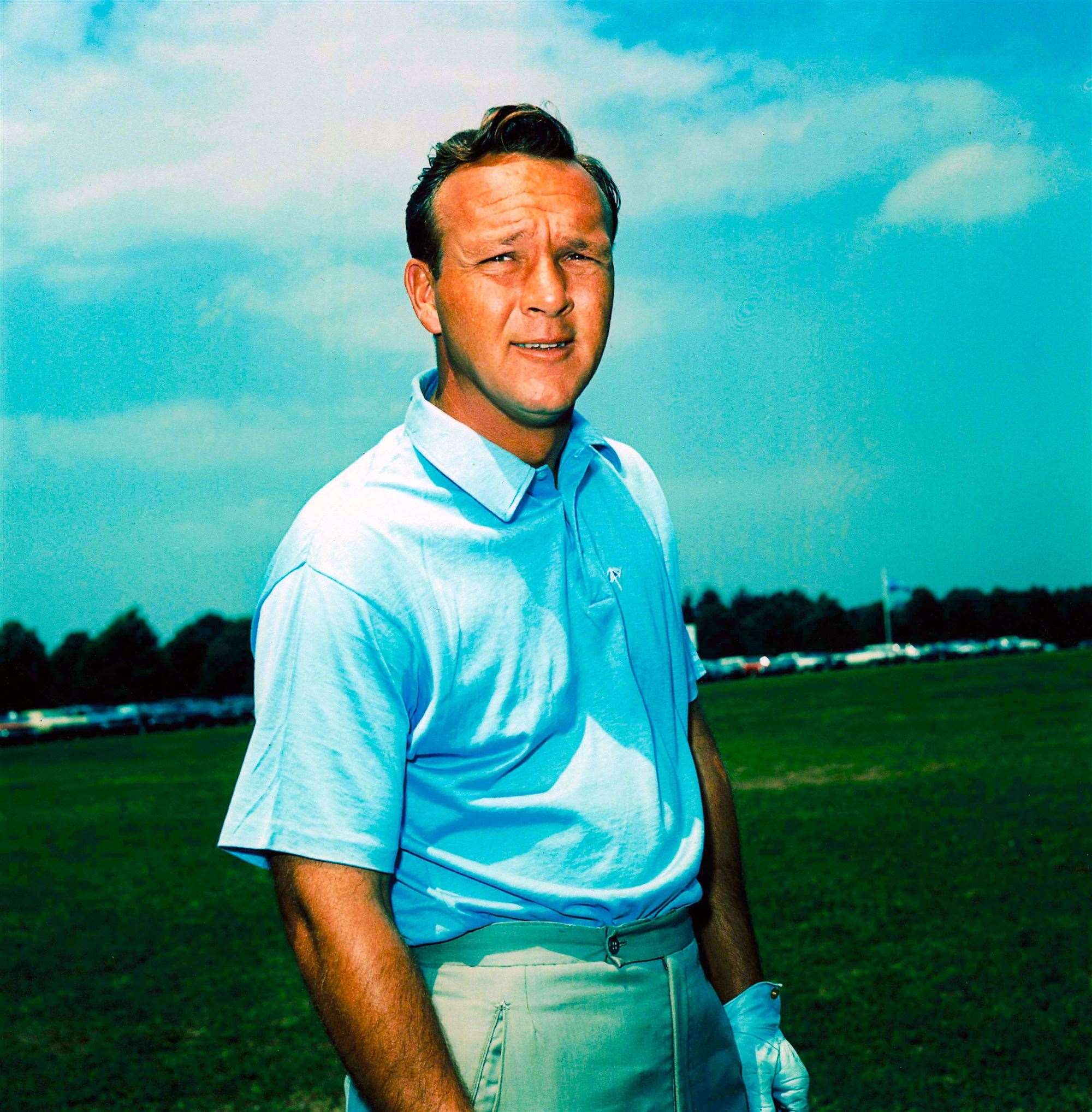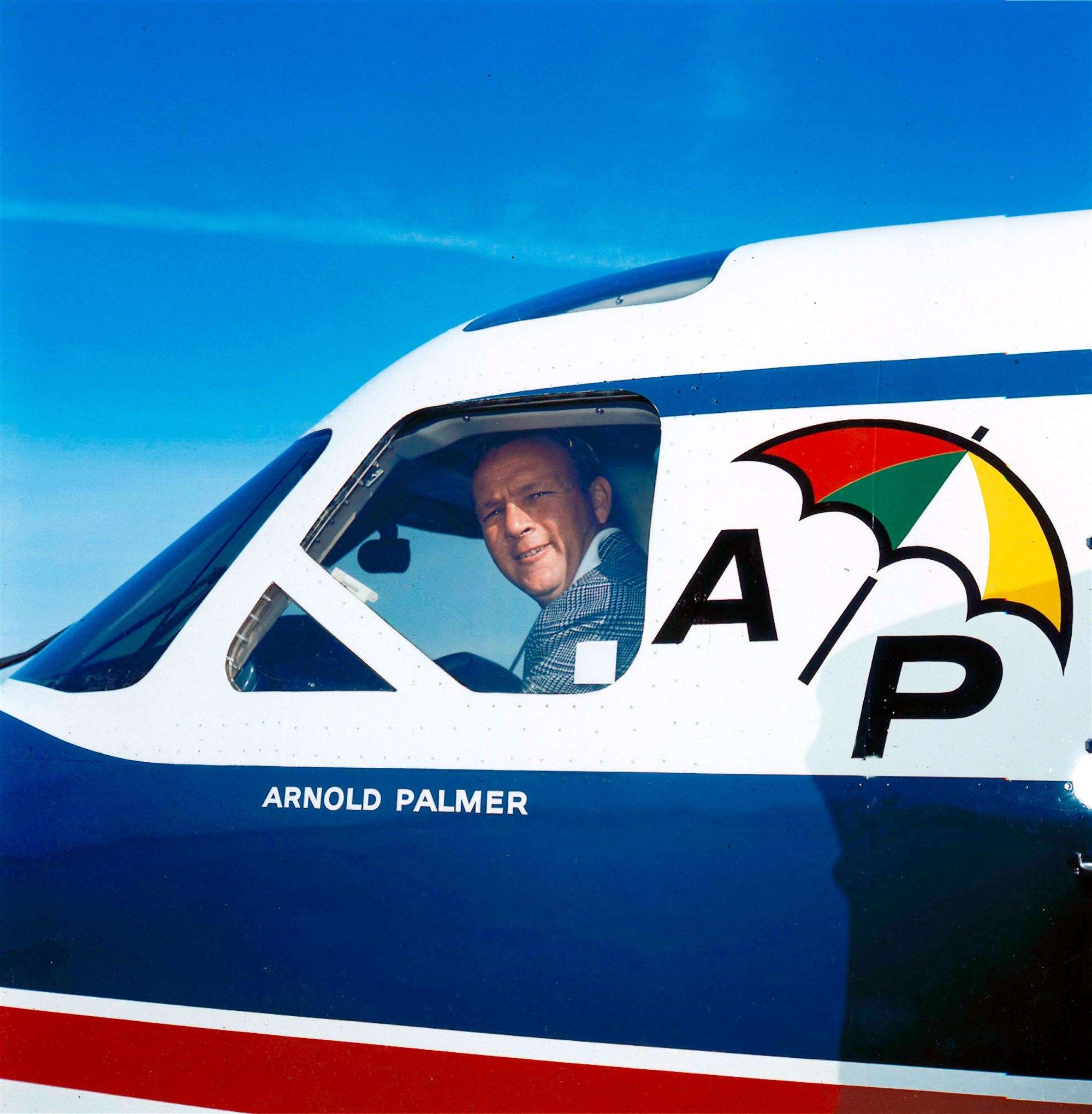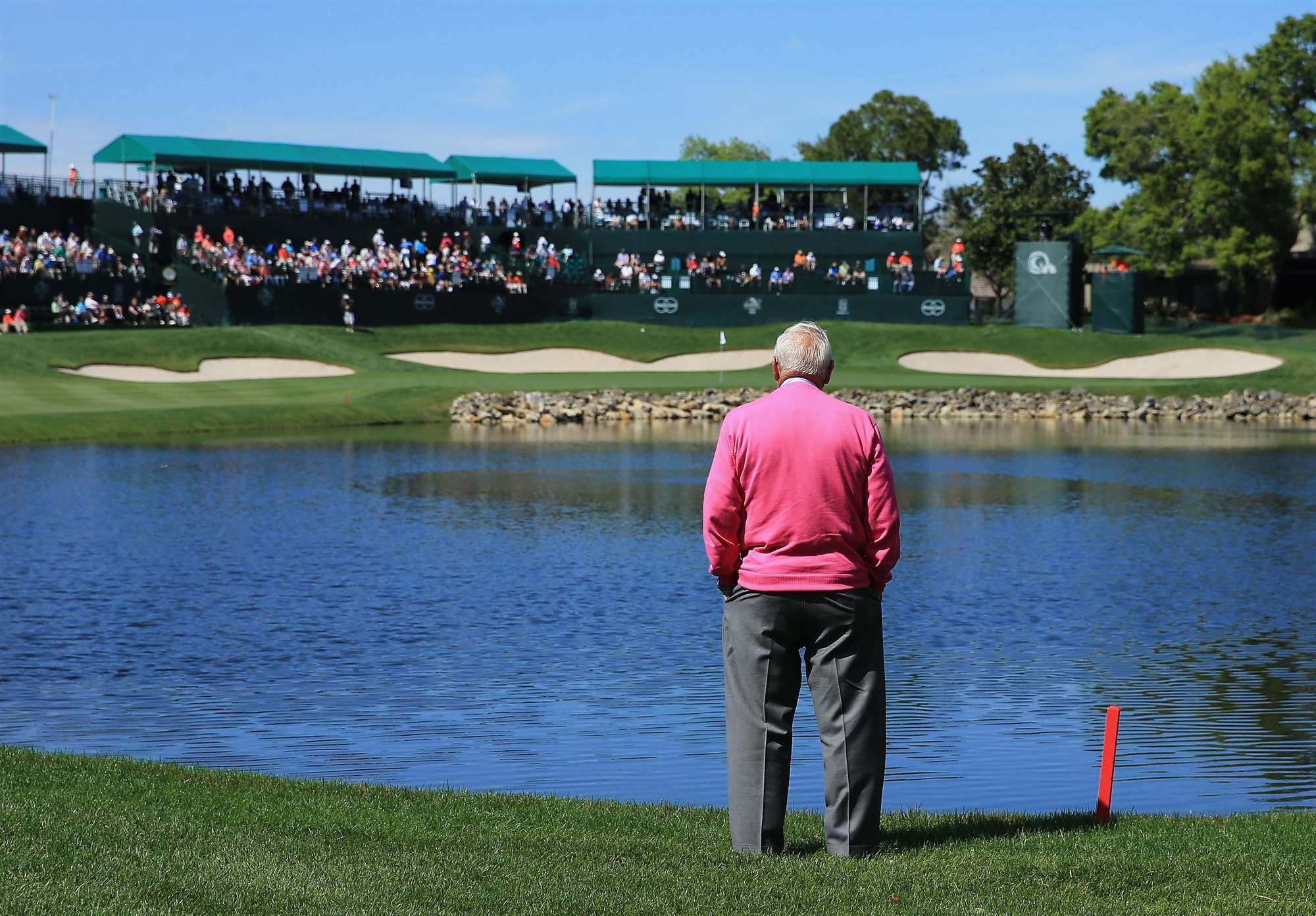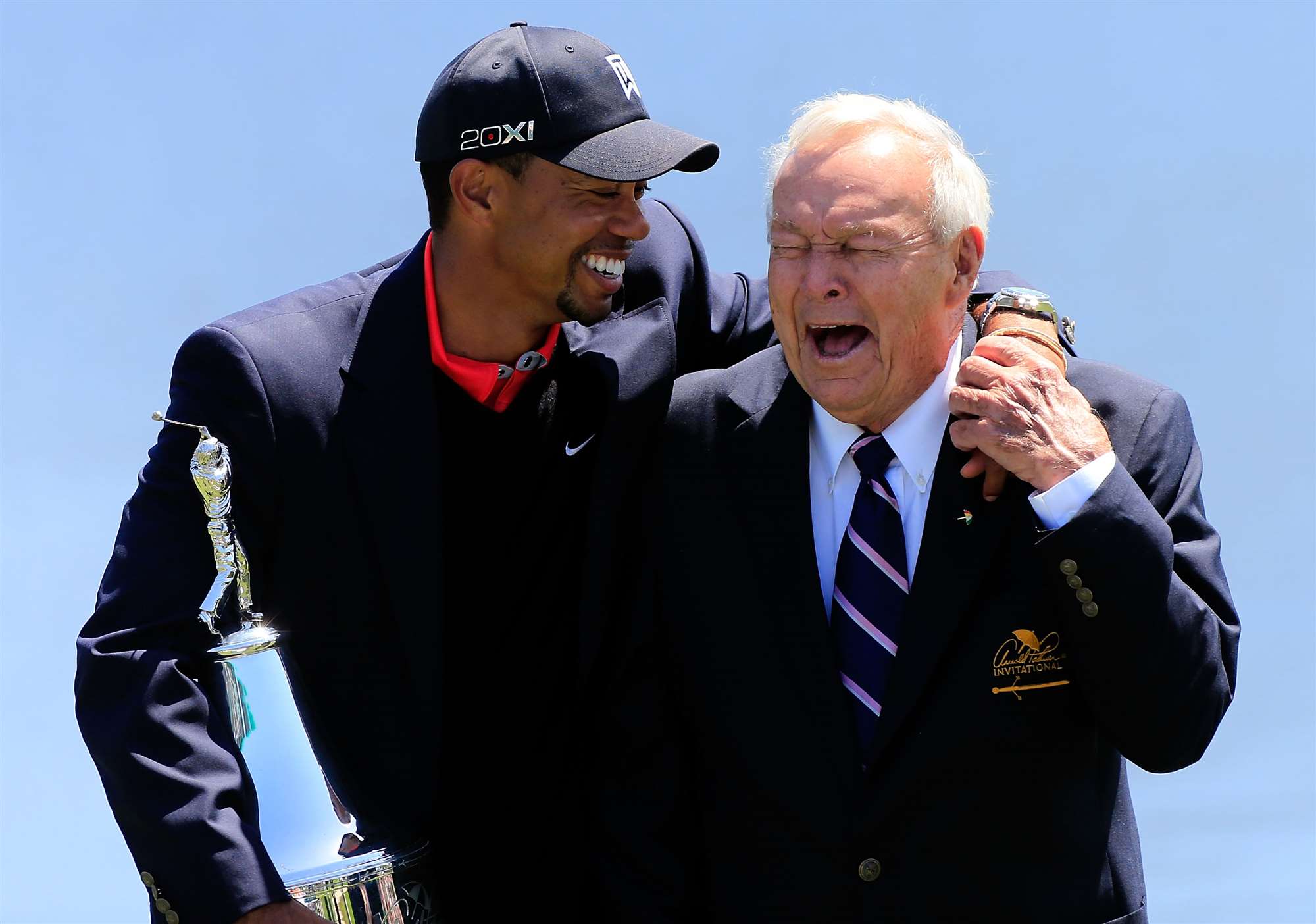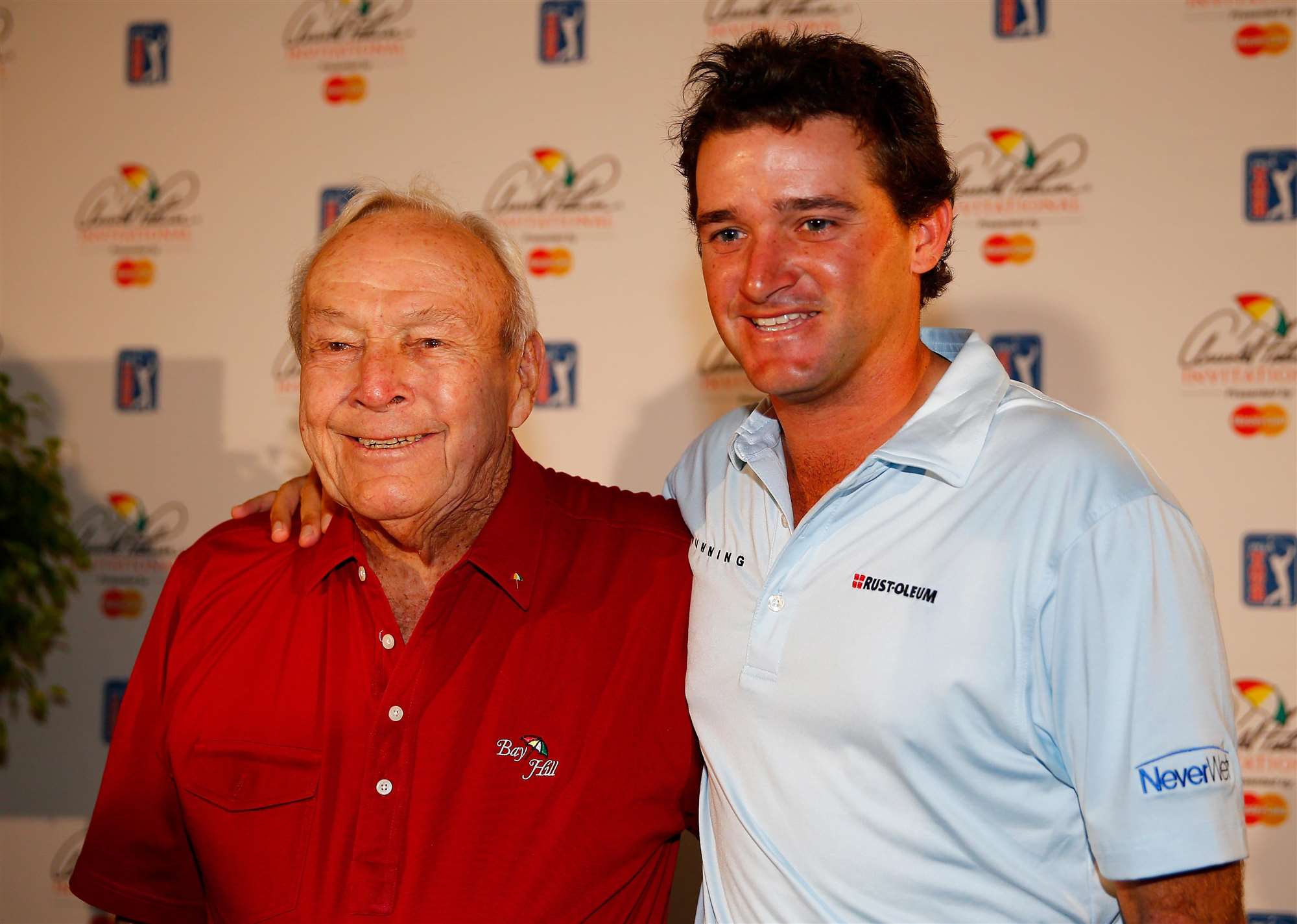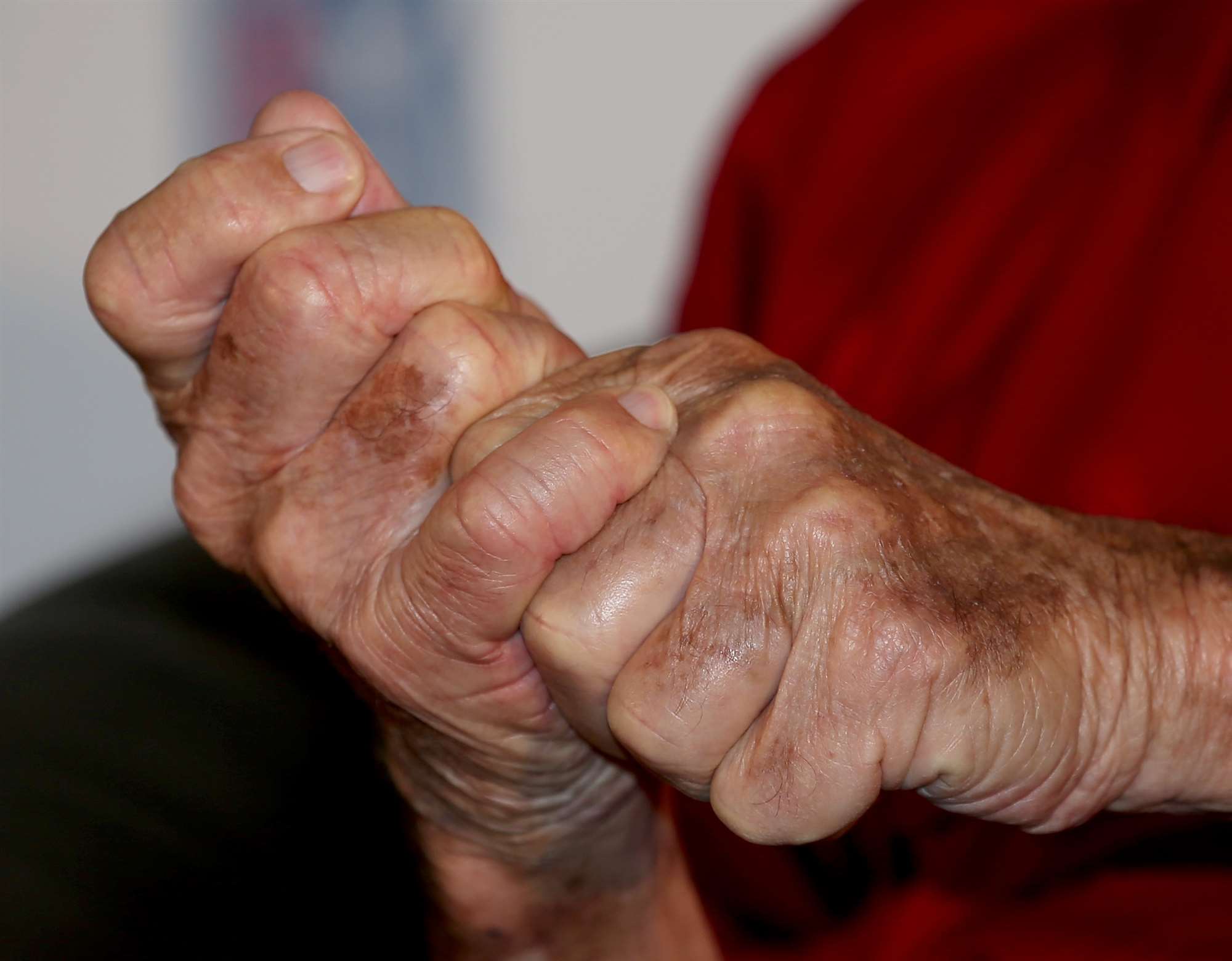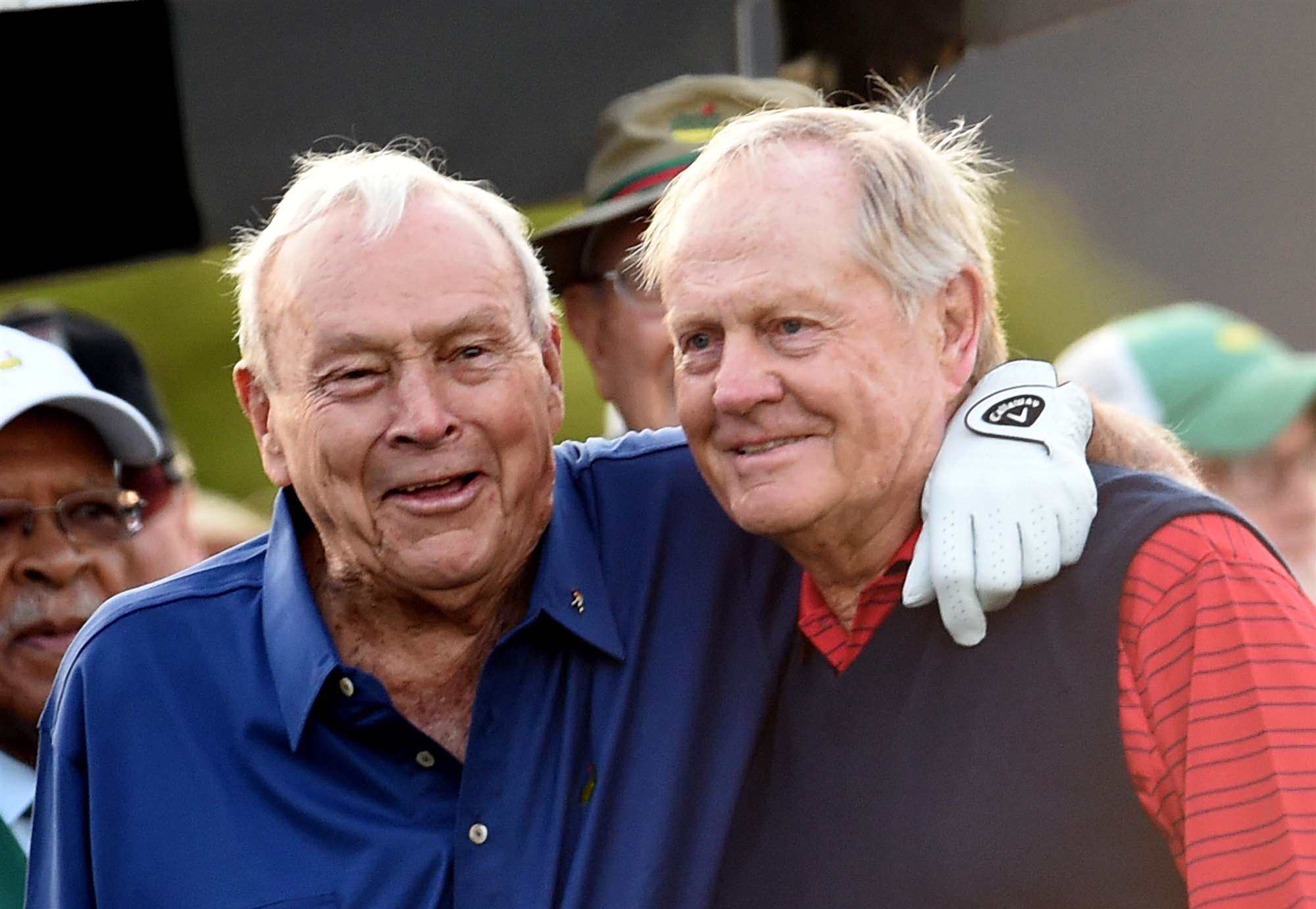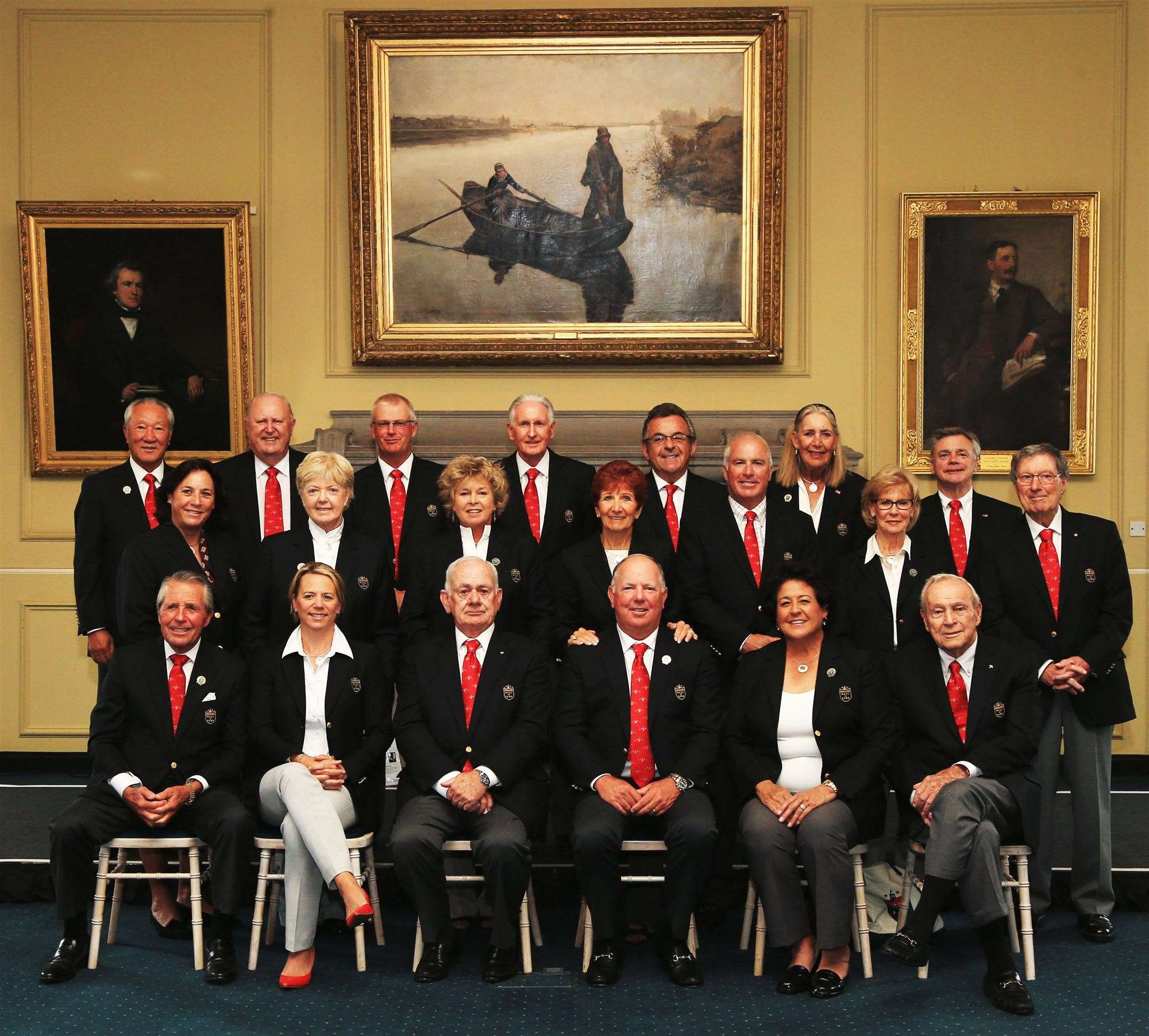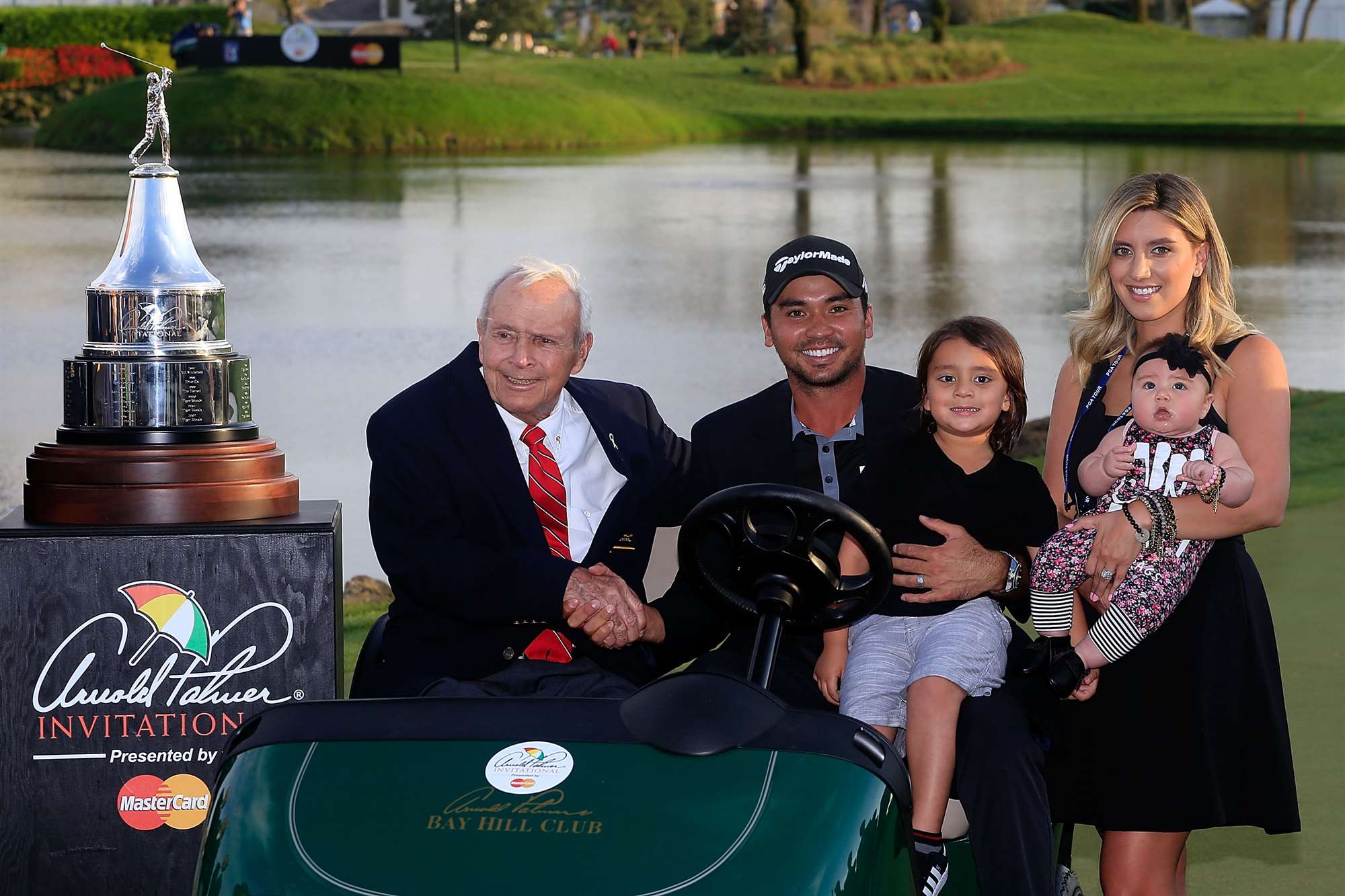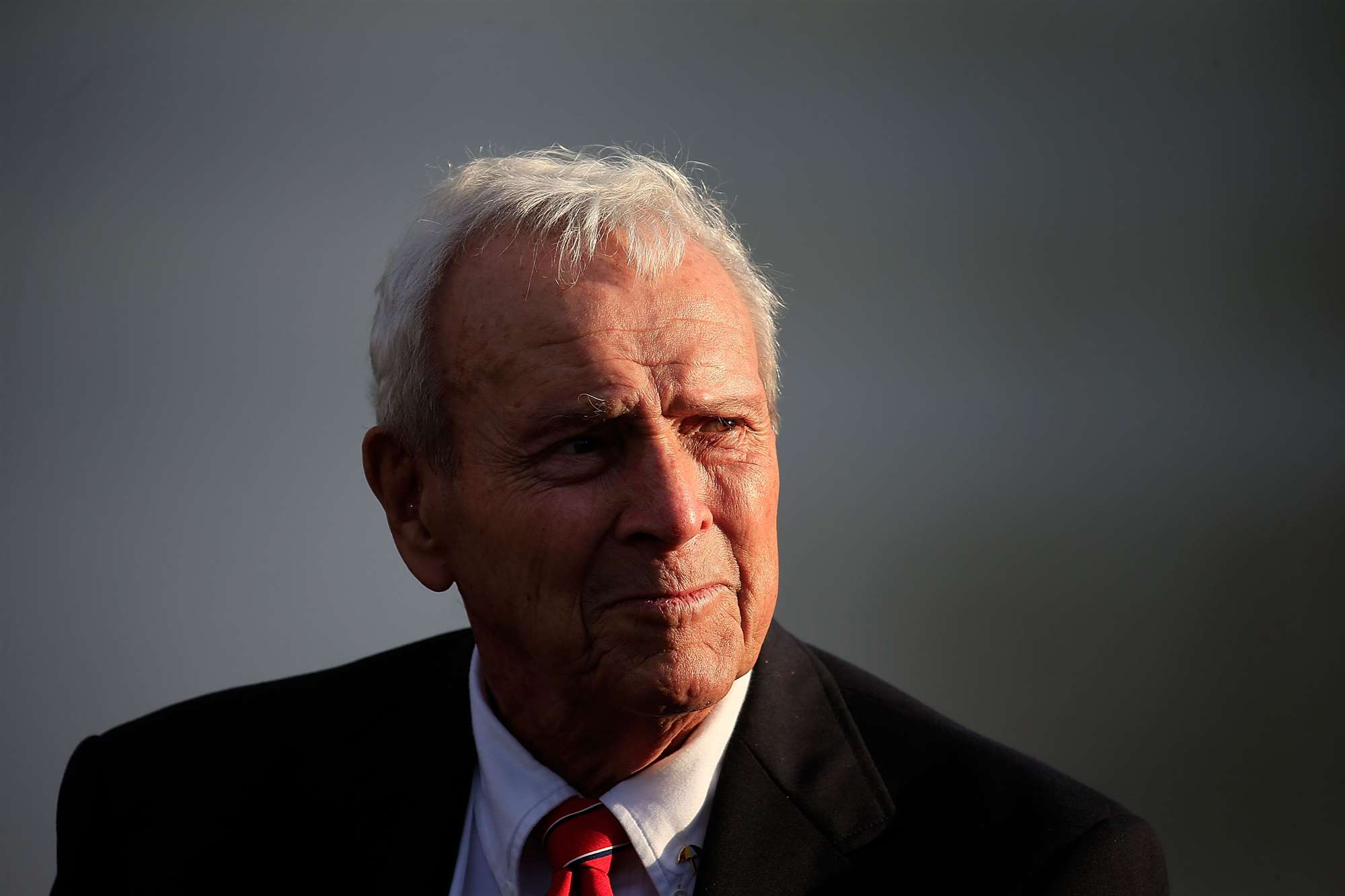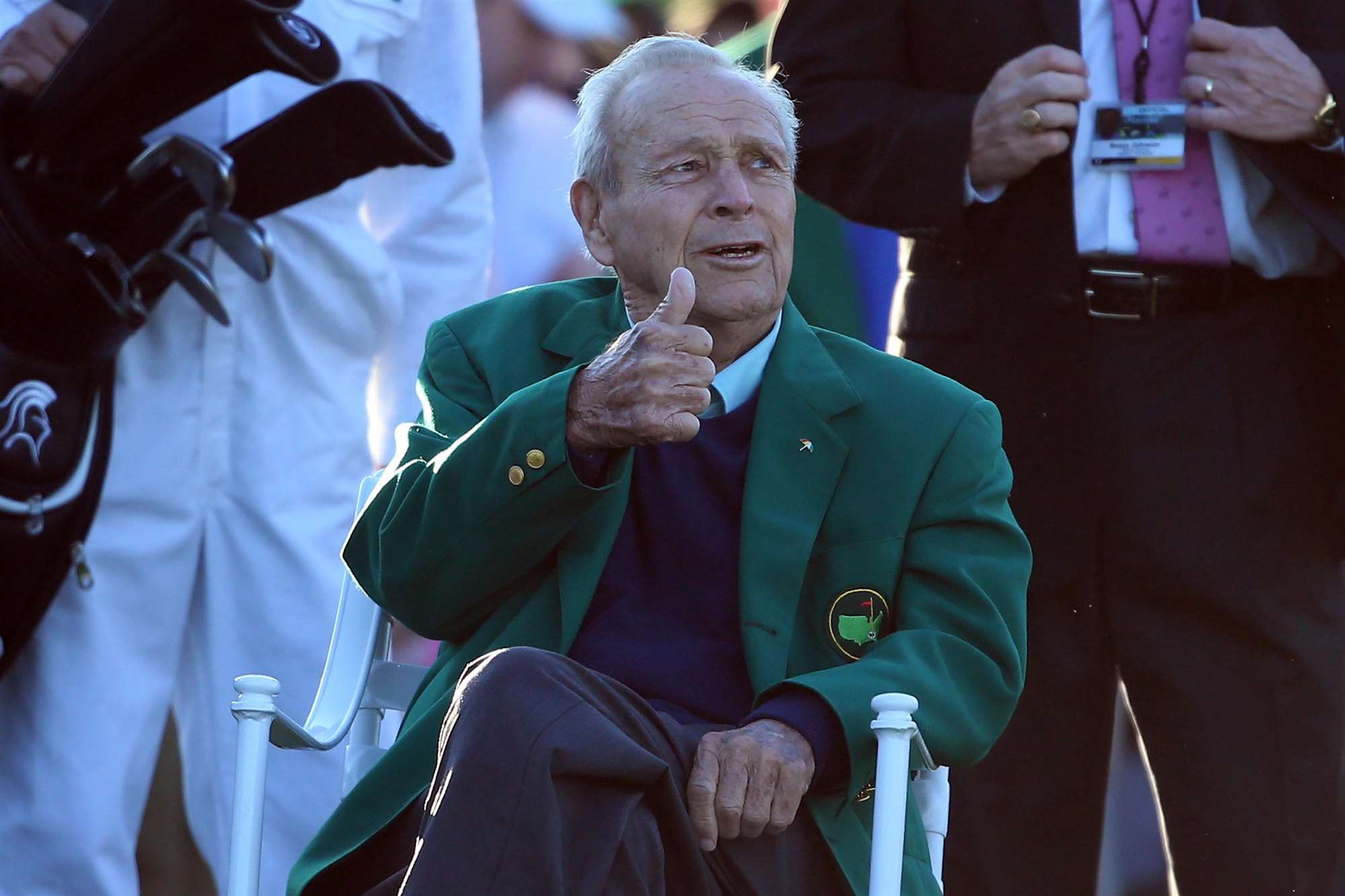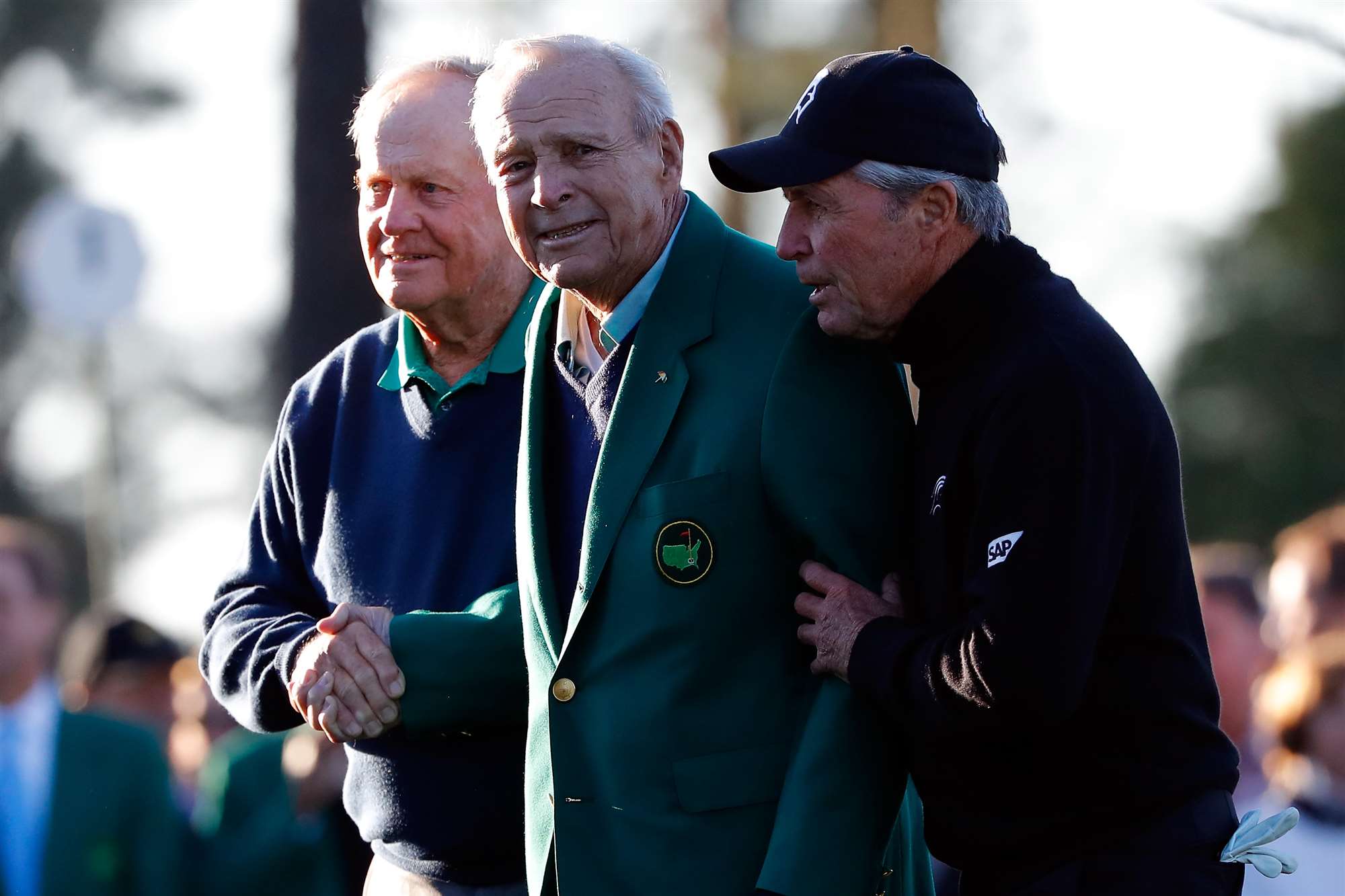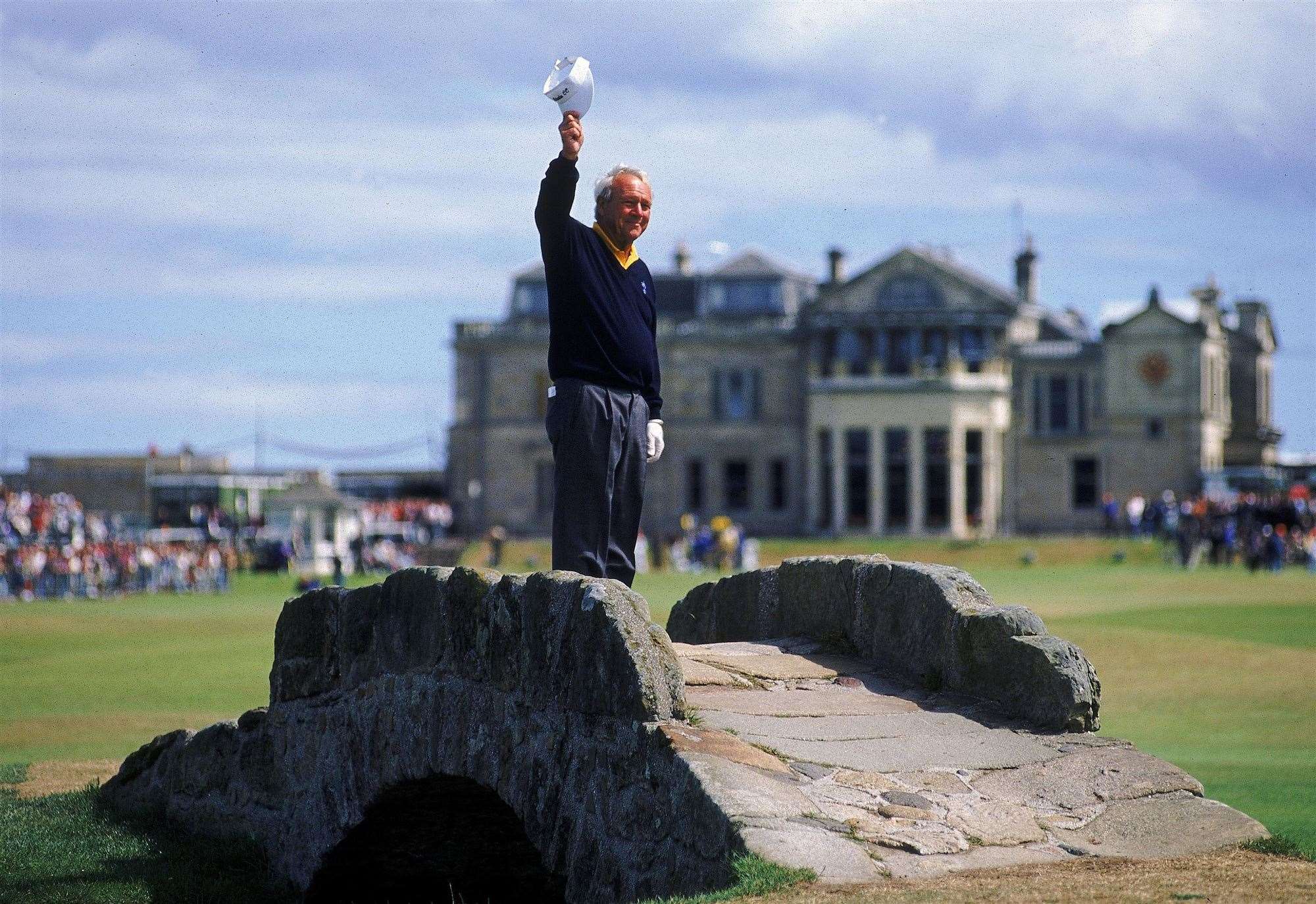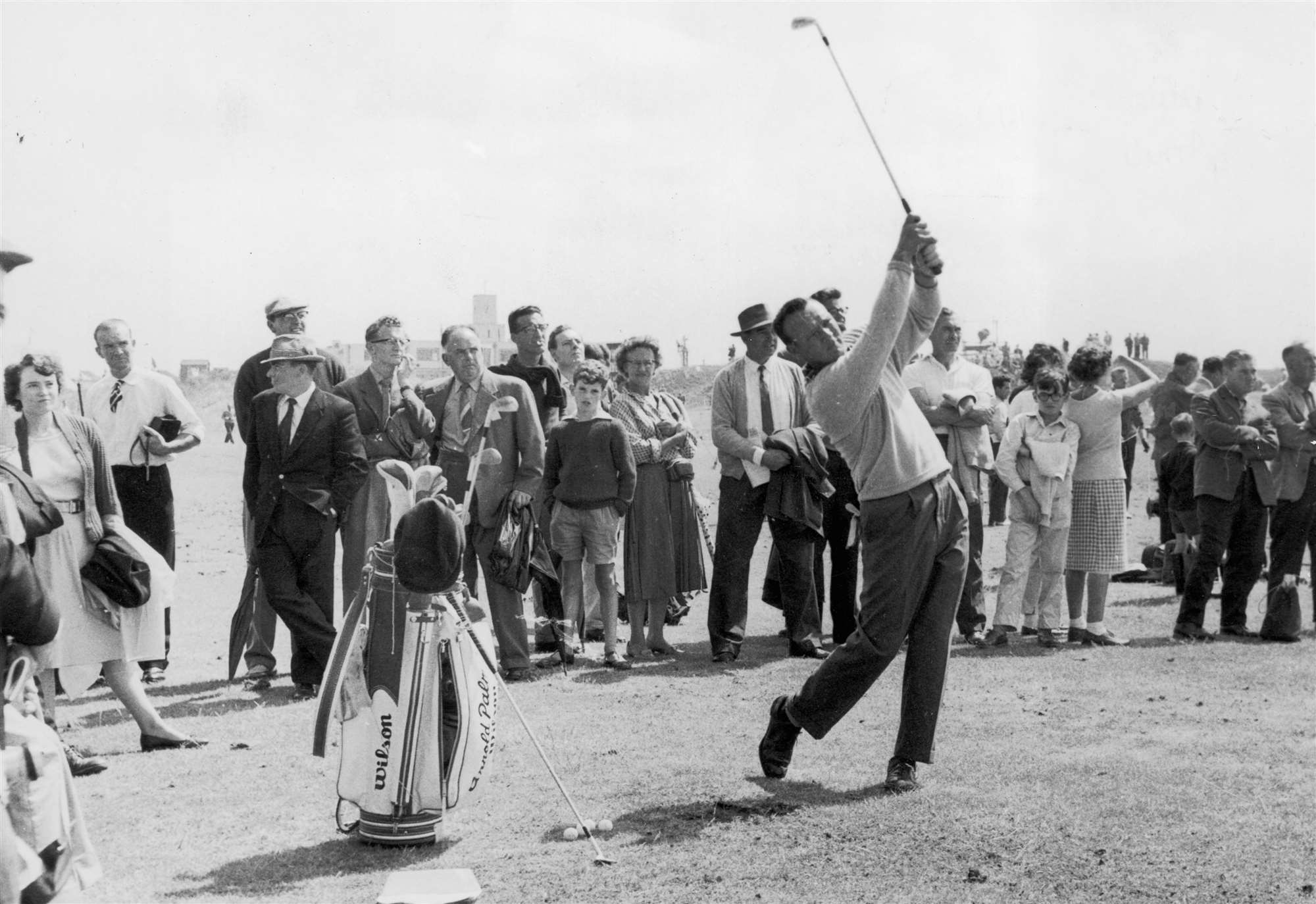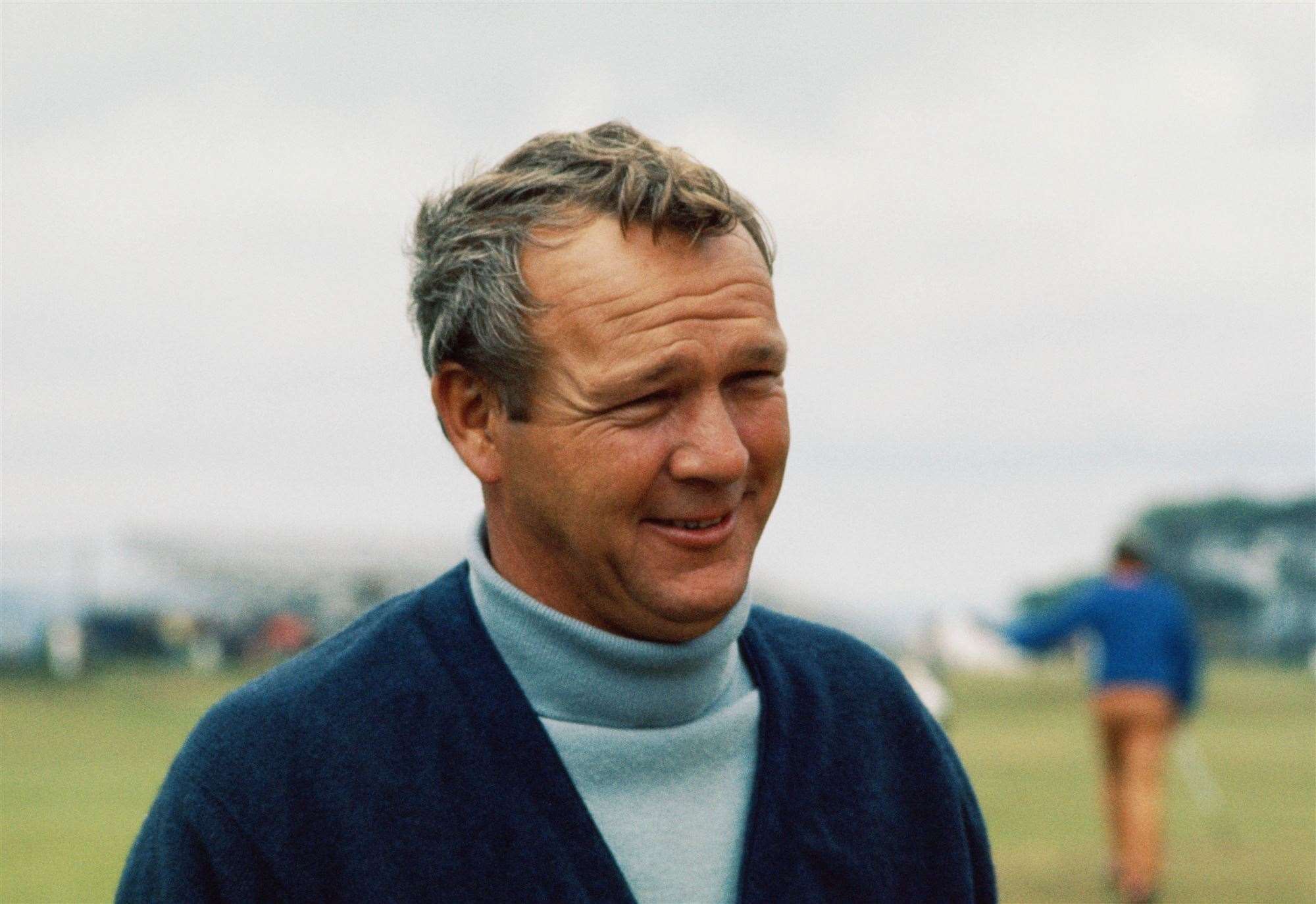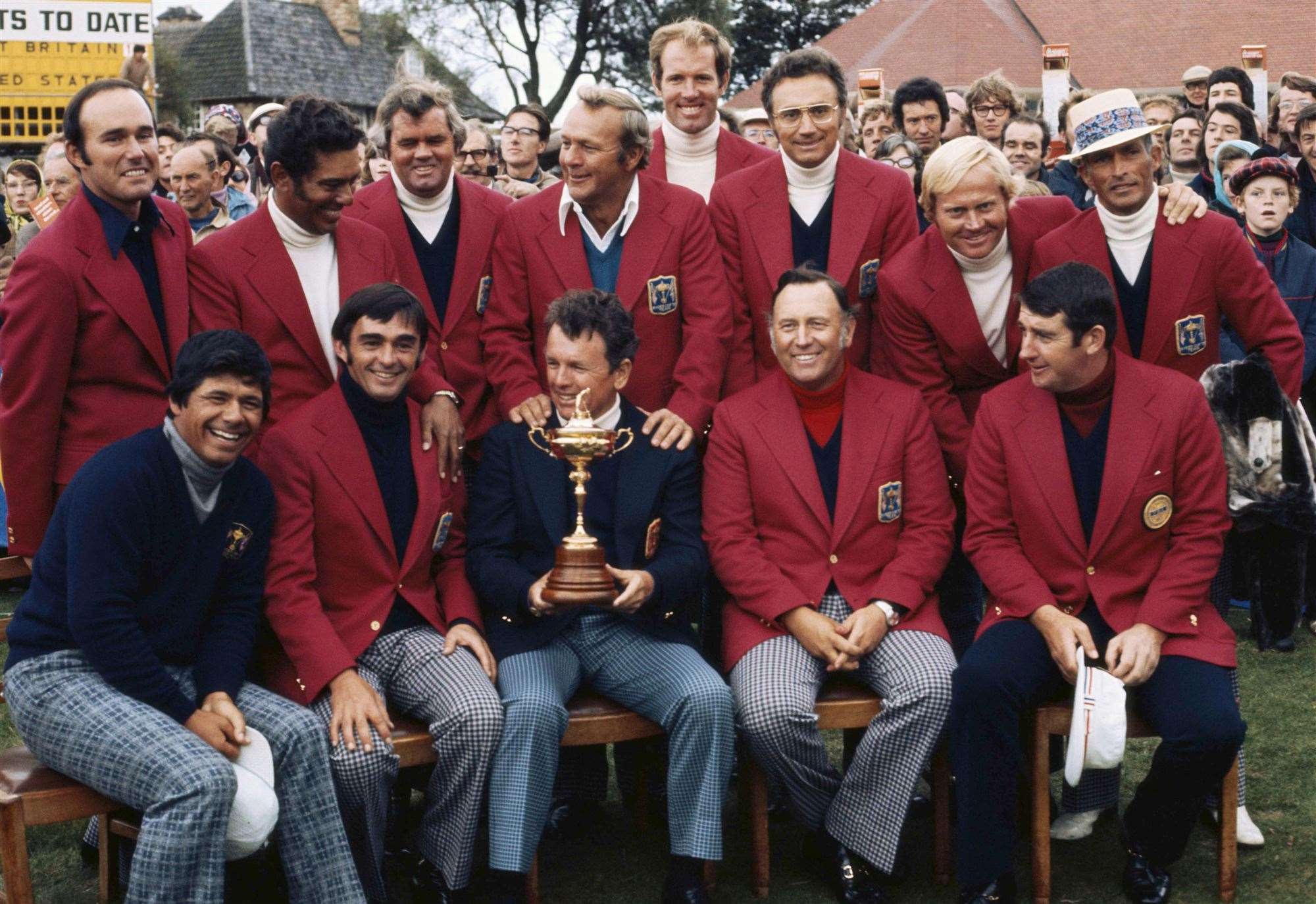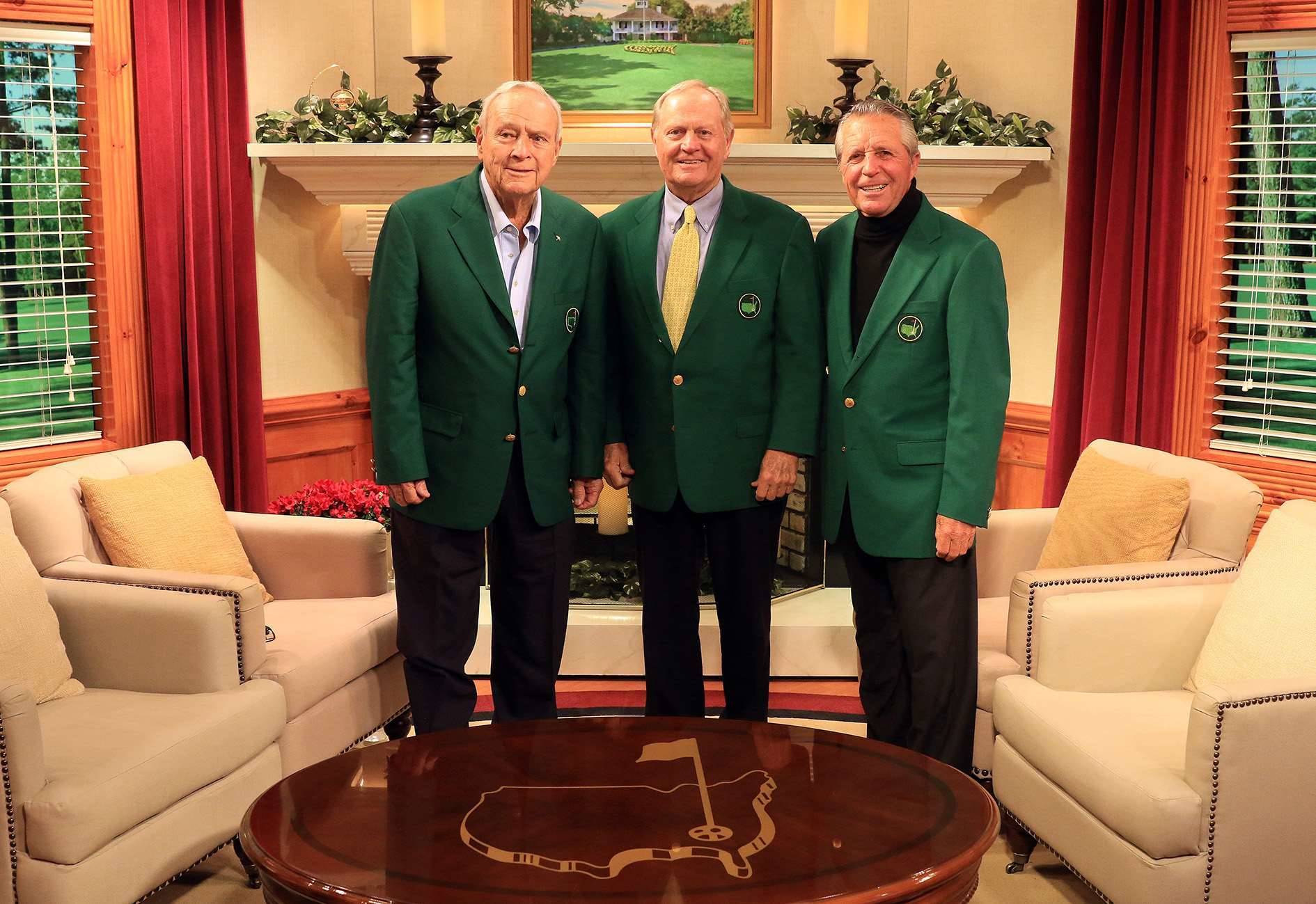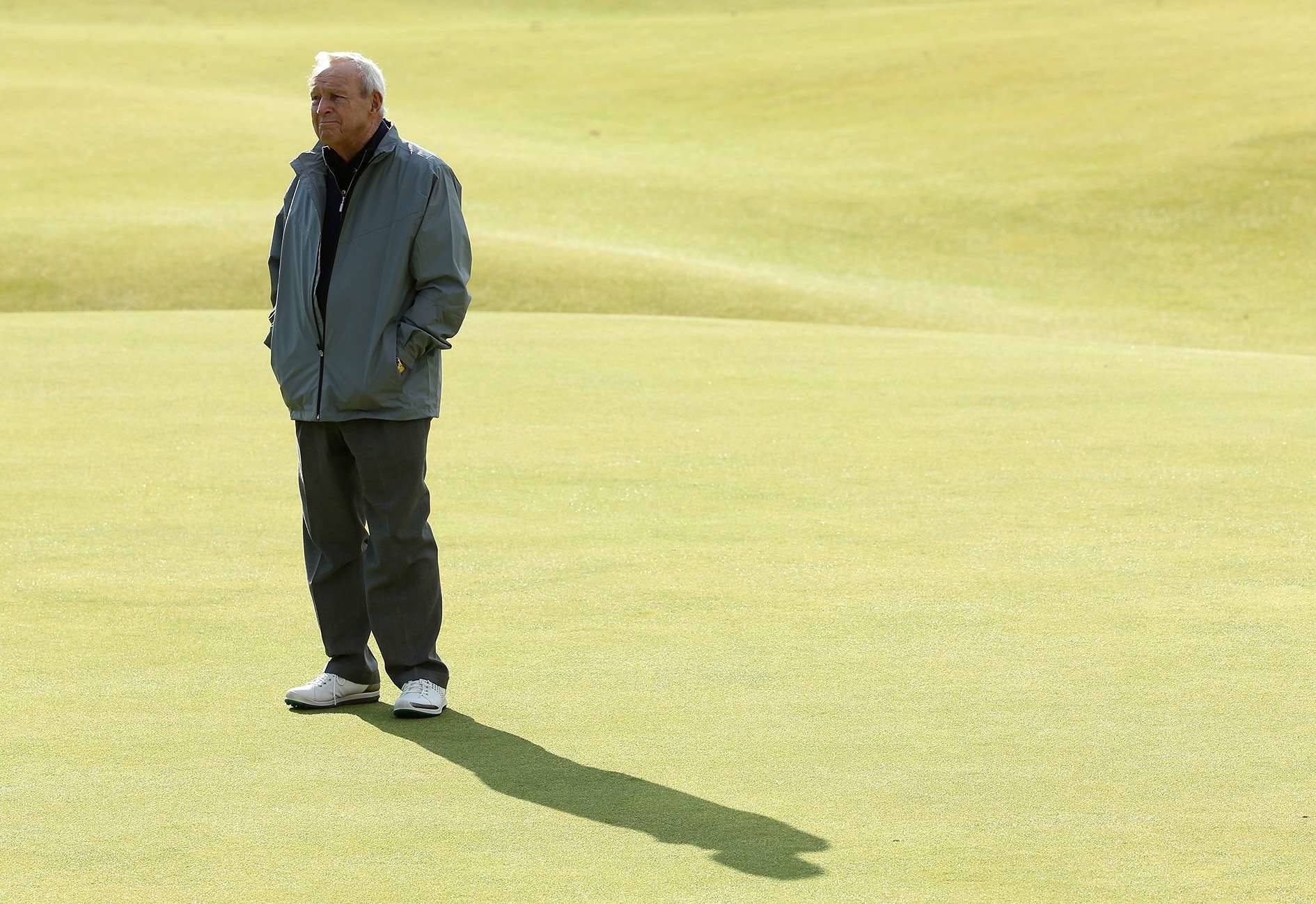The King is dead. All hail the King.
Arnold Palmer, a seven-time major champion who took golf to all corners of the globe and became the most beloved person in the game, has died. He was 87.
The United States Golf Association has confirmed Palmer, nicknamed ‘The King’, passed away on Sunday morning (US east coast time) at University of Pittsburgh Medical Centre Presbyterian Hospital in Pittsburgh where he was being prepared for heart surgery. The exact cause of death is not known.
Palmer was golf’s original swashbuckler. His off course modesty was in stark contrast to his on course go-for-broke style, which made him golf’s first superstar and won him a legion of fans best known as ‘Arnie’s Army’.
Back in March, Palmer looked quite frail as he served as the host at the Arnold Palmer Invitational at his Bay Hill course.
It was no surprise when he announced a few days later that he would not join Jack Nicklaus and Gary Player in hitting a ceremonial tee shot to open The Masters, something he had been doing every year since 2007.
The son of a Pennsylvania greenkeeper, Palmer never forgot his blue-collar upbringing even when the entire golf world referred to him as ‘The King’. He was equally at ease among Presidents, world famous celebrities and his fans beyond the ropes.
The charismatic Palmer won seven major tournaments during his career. He won The Masters four times (1958, 1960, 1962 and 1964), the Open Championship twice (1961 and 1962) and the US Open once (1960), where he made a remarkable Sunday charge at Cherry Hills to come seven strokes behind to surge past Ben Hogan and a young up-and-coming Nicklaus. He never won the PGA Championship, but finished runner-up three times.
Palmer won 62 PGA Tour titles, with 29 of those victories coming in a flurry between 1960 and 1963, coinciding with golf being broadcast to colour television sets throughout the United States. This served to not only help grow the game across America, but Palmer became the game’s first genuine superstar – a standing in the game that never wavered.

When Palmer wasn’t winning tournaments, he was endorsing a wide range of products. Palmer was the first client of Mark McCormack's legendary sports management firm IMG, in what was a simple handshake deal that earned both men millions of dollars.
In Palmer's first few years with McCormack, his endorsement earnings grew from $6,000 a year to more than $500,000. He became a global traveller and one of the first sportsmen to be considered a ‘brand.’ He endorsed everything from Penzoil motor oil, RayBan sunglasses, tractors, Cadillac cars and even Qantas airlines.
And, of course, there was the Arnold Palmer drink – made of iced tea and lemonade – that he used to mix in his kitchen for years but was popularised during the 60s and today can be found across the United States.
"He was the perfect figure for television, because of his athleticism, his good looks, the way he played the game," his biographer, Jim Dodson (A Golfer's Life), said. "He created the excitement that TV symbolised. It was immediate, it was fresh. It could take people right to the scene in ways media had never done."
When Palmer was golf in the 1960s, the number of golfers in America more than doubled to 10 million and the wave of interest in the game extended globally.

With his victory in the 1962 Open at Royal Troon – his second in as many years – renewed interest in the game’s oldest championship, especially in the United States. Without Palmer, The Open may never have reached its current standing as one of the world’s great sporting events.
The same could be said for The Masters, where he was indeed golfing royalty. He played the Masters 50 times and his four Green Jackets won in a six-year span remain among the most memorable played at Augusta National.
After his regular Tour playing days were done, he played a major role in establishing, and the success of, the Senior PGA Tour (known now as the Champions Tour) for players aged over 50. He won 10 times on the Tour before retiring from tournament golf in October 2006.
Away from playing, he was a co-founder of The Golf Channel and designed more than 300 golf courses around the world. He was a great philanthropist and was instrumental with his late wife, Winnie, in establishing a hospital for children devoted to paediatric heart care and heart surgery,
Palmer was one of the 13 original inductees into the World Golf Hall of Fame back in 1974 and in more recent times he received the Presidential Medal of Freedom (2004) and the Congressional Gold Medal (2009).
Related Articles
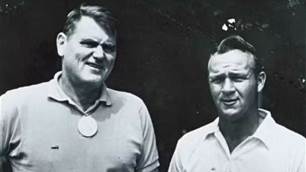
When a gin-slinging journo pal of Arnold Palmer's created golf's grand slam
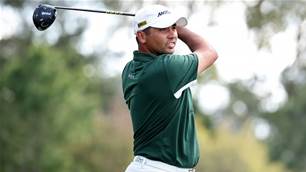
Jason Day pulls out of Players Championship with illness
.jpg&h=172&w=306&c=1&s=1)
